




















Tony Barwick REAL ESTATE LAW
Marc Bishop BUSINESS LAW
Our thanks to professional colleagues who named 34 of our lawyers “Legal Elite.”
Libby Brewington BUSINESS LAW
Eric David LITIGATION
Kearns Davis LITIGATION
Alex Elkan ENVIRONMENTAL LAW
Sam Ervin IV APPELLATE LAW
Shana Fulton CRIMINAL LAW
Jimmy Haynes REAL ESTATE LAW
Jonathan Jenkins BUSINESS LAW
Bob King ENVIRONMENTAL LAW
Beth Langley EMPLOYMENT LAW
Jamey Lowdermilk BANKRUPTCY LAW
Charles Baldwin BUSINESS LAW
Arty Bolick CONSTRUCTION LAW
John Cross BUSINESS LAW CORPORATE LAW
Mark Davidson BUSINESS LAW
Kearns Davis CRIMINAL LAW
George House ENVIRONMENTAL LAW
Agustin Martinez YOUNG GUNS
Brian McMillan EMPLOYMENT LAW
Clint Morse BANKRUPTCY LAW
Jeff Oleynik LITIGATION
Jim Phillips LITIGATION
Clint Pinyan ANTITRUST LAW
Joey Ponzi
ENVIRONMENTAL LAW
Jonathan Jenkins CORPORATE LAW
Jeff Oleynik BANKRUPTCY LAW
Gary Parsons LITIGATION
Collins Saint YOUNG GUNS
Adam Tarleton
TAX AND ESTATE PLANNING
Jessi Thaller-Moran
EMPLOYMENT LAW
Anna Tison
REAL ESTATE LAW
Jennifer Van Zant LITIGATION
Ed West CRIMINAL LAW
*For information about Business North Carolina’s Legal Elite and selection criteria, please visit: https://businessnc.com/special-sections/legal-elite/ LEGAL ELITE HALL OF FAME MEMBERS
David Sar INTELLECTUAL PROPERTY
Jennifer Van Zant ANTITRUST LAW
Katie Wong YOUNG GUNS
These lawyers have been recognized for excellence by Business North Carolina as among the state’s Legal Elite*. This includes new inductee David Sar to the Legal Elite Hall of Fame. To our professional colleagues, we offer our thanks—to the honorees, our congratulations.














Eastern North Carolina is on the rise! In 2024, there were over 4,500 new jobs and an incredible $5 billion in investments announced in the 29-county NC East region. We are thrilled to celebrate and support this success as eastern NC continues to gain momentum.
From cu ing-edge industries like aviation and aerospace, advanced manufacturing, and life sciences to the expansion of small businesses and startups, eastern NC is leading the charge in growth and opportunity. ese achievements refl ect the collective regional strength of our communities, workforce, and strategic partnerships.
Eastern North Carolina isn’t just growing — it’s thriving. ese investments are more than numbers; they represent opportunities for our people, vibrant local economies, and a prosperous future for generations to come.
Join the momentum. Experience why businesses and talent are choosing Eastern North Carolina as the place to grow and succeed.

















5 UP FRONT

8 POWER LIST INTERVIEW
NC Chamber CEO Gary Salamido discusses helping the state succeed in business and the steps needed to stay on top.
10 NC TREND
Potential successors for three high-profile CEOs; Eye-popping rate increases in home insurance; Why CS21 favored Morehead City over Boston; Experts’ favorite stocks for the new year.
100 PROJECT PLANS
The annual economic well-being ranking of N.C. counties causes some head scratching.

24
Recognizing those who help build and manage thriving workforces. 32
A panel of experts discuss the teamwork required to solve problems and push forward agendas.
38
Braswell Family Farms is a fourthgeneration egg producer where everyone considers themselves a farmer.
90
The mostly rural Piedmont county is close enoughto take advantage of Charlotte amenities while not losing its small-town touch.





When disaster strikes, Boone-based Samaritan’s Purse moves with an evangelical purpose and a mission for relief work.
BY SHANNON CUTHRELL




It’s our annual list of top North Carolina lawyers as selected by their peers.
BY KEVIN ELLIS




After a long stretch of stability, the state’s political leadership gains some new faces this year.
BY RAY GRONBERG

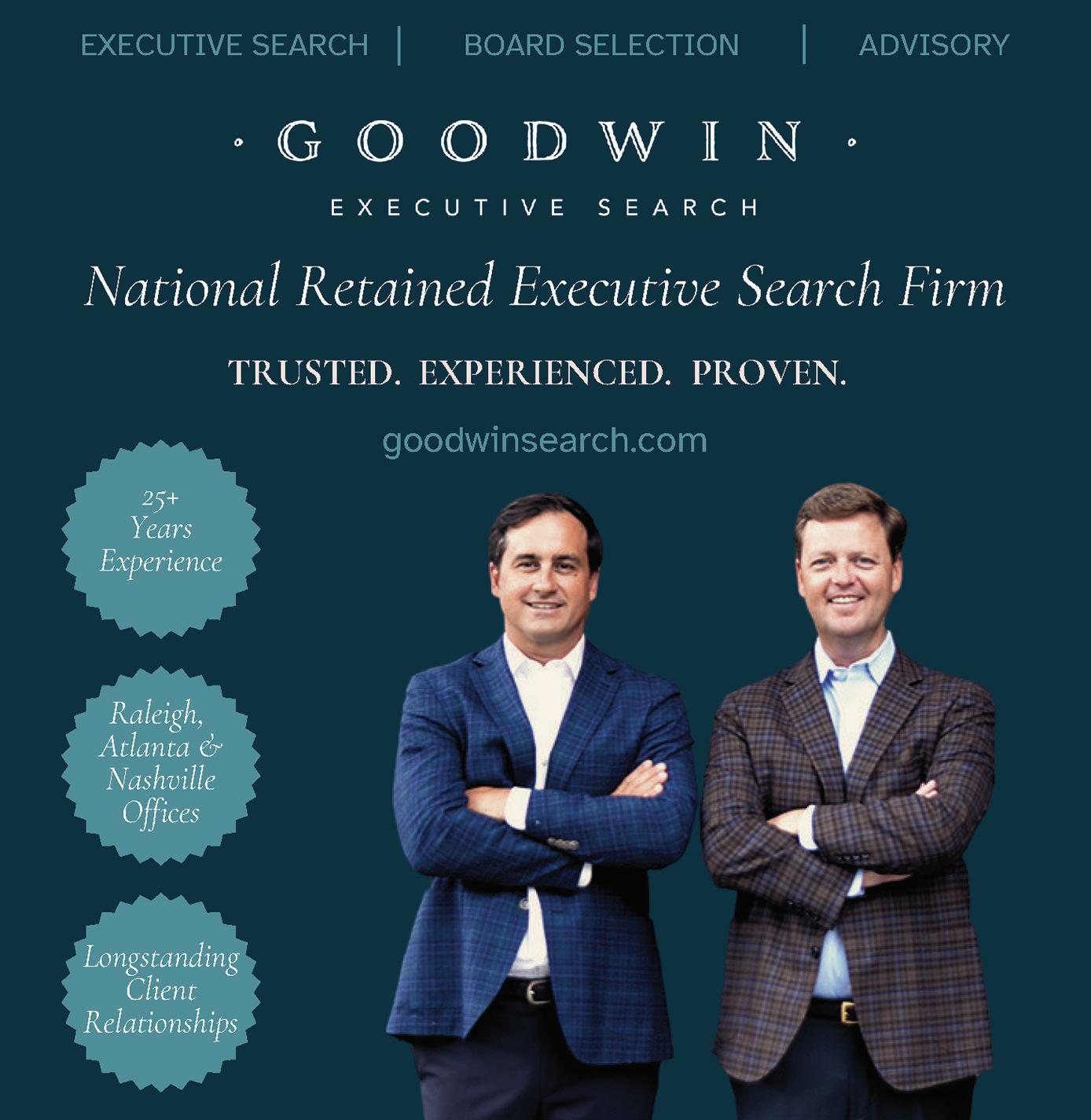
We were just talking about that...
Business North Carolina’s Chatter podcast serves up interviews with some of the Tar Heel State’s most interesting people. Each week, we discuss business with the top decision-makers in the state.

PUBLISHER Ben Kinney bkinney@businessnc.com
EDITOR David Mildenberg dmildenberg@businessnc.com
MANAGING EDITOR Kevin Ellis kellis@businessnc.com
ASSOCIATE EDITORS Ray Gronberg rgronberg@businessnc.com
Cathy Martin cmartin@businessnc.com
EDITORIAL INTERN Natalie Bradin
CONTRIBUTING WRITERS
Pete M. Anderson, Dan Barkin, Shannon Cuthrell, Noelle Norene Harff, Bill Horner, Brad King
CREATIVE DIRECTOR Cathy Swaney cswaney@businessnc.com
GRAPHIC DESIGNER Lauren Ellis
MARKETING COORDINATOR Jennifer Ware jware@businessnc.com
ADVERTISING SALES
ACCOUNT DIRECTOR Melanie Weaver Lynch, eastern N.C. 919-855-9380 mweaver@businessnc.com
ACCOUNT MANAGER AND AUDIENCE DEVELOPMENT SPECIALIST Scott Leonard, western N.C. 704-996-6426 sleonard@businessnc.com
CIRCULATION: 818-286-3106
EDITORIAL: 704-523-6987
REPRINTS: circulation@businessnc.com

OWNERS
Jack Andrews, Frank Daniels III, David Woronoff, in memoriam Frank Daniels Jr.
PUBLISHED BY Old North State Magazines LLC
PRESIDENT David Woronoff




Dale Folwell, my vote for North Carolina’s most interesting politician over the past eight years, leaves o ce a disappointed man.
Our state has had shrewd, ambitious state treasurers, including scal hawk Harlan Boyles and successors Richard Moore, now a leading N.C. banker, and Janet Cowell, Raleigh’s mayor.
Folwell is equally ambitious. e former Forsyth County state representative hoped to parlay eight years overseeing the state’s $120 billion-plus pension assets and 750,000-member health plan for state workers into the governorship.
Instead, he got outmaneuvered by skilled, in uential political operators. He just calls them “cash.” Detractors say a know-it-all style and short term thinking on complex issues were also factors.
More than his predecessors, Folwell viewed the treasurer’s post as a bully pulpit on pressing issues in healthcare and nancial services. His list of pulpit topics was long: rising healthcare costs; stunning CEO pay; expensive money managers; private equity abuses; inequitable drug prices; soaring medical debt; “woke” investment strategies; nonpro t-hospital tax advantages; and hospital consolidation.
In short, Folwell attacked healthcare executives and “ nance bros” with a goal of xing problems and cutting costs. at approach might work politically for a Democrat in liberal-leaning states, but it bombed for a grassroots North Carolina Republican.
Folwell agrees that he failed. “You either break the hospital cartel or you don’t. We didn’t,” he says. For that, he blames “counterfeit conservatives” who kowtow to industry lobbyists and favored Mark Robinson for the Republican Party nomination for governor.
He wouldn’t name names, but he clearly means the state’s most in uential Republican leaders, Phil Berger, Tim Moore and former Republican Party Chairman Michael Whatley. ey watched as Robinson revved conservative support and secured Donald Trump’s endorsement before the March 2024 primary.
A personal opinion here: Virtually anyone who spent time with Robinson knew he would eventually bomb as a gubernatorial candidate. He was unprepared for a challenging job. Attorney General Josh Stein’s simple message — “I’m not Mark Robinson” — led to a 15 percentage point victory. at helped four Democrat candidates win
Council of State seats by much thinner margins.

e Republican leaders showed no interest in backing Folwell, who received 100,000 more votes than Stein in the 2020 elections. Moore focused on getting to Congress; Berger showed continued mastery over the state’s legislative policies; and Whatley led Trump’s successful campaign. ey all won.
Folwell was too hot to handle because of his unrelenting criticism of drugmakers, money managers and healthcare CEOs.
Did he ever really try to reach compromises with Moore and Berger? “I went when I was invited and I saw no result from that,” he says. “I worked really hard as a legislator to get Republicans into a majority, but my job was made harder because they didn’t do their job. I don’t tolerate counterfeit conservatives.”
e former treasurer says he never bent his ethical standards. “In 20 years of public service, I’ve never been in a black limousine or a private jet,” he says. “True public servants shouldn’t be in a position to pro t, but we have a counterfeit conservatism in our state.”
Now, it’s arguable that Folwell failed at perhaps his most important task, managing the pension system. Many N.C. local public o cials and nancial industry experts, and the candidates who sought to succeed Folwell, say his strategies cost the system billions of dollars in potential gains. A distrust of PE funds and alternative investment vehicles and excessive cash holdings meant the state system underperformed most peers in recent years.
Folwell disagrees. His priority was preserving capital and limiting risk, not seeking volatile gains, he says.
e new treasurer, Brad Briner, has solid Wall Street investment credentials. e state's returns should strengthen. On healthcare, he wants to lower the rhetoric and nd sustainable ways to cut spending, aiding state employees and taxpayers.
at message didn’t impress Folwell. He didn’t endorse his Republican successor. ■

Contact David Mildenberg at dmildenberg@businessnc.com.






TOWN OF SILER CITY + TALKING POINTS
8,043 POPULATION (2023)
DIVERSITY
51% HISPANIC;
25% CAUCASIAN, 19% BLACK
NAME
JOHN SILER WAS A PLANTATION OWNER IN EARLY 19TH CENTURY
1887 INCORPORATED
DONALD MATTHEWS MAYOR

JACK MEADOWS TOWN MANAGER

A lionized Piedmont town embraces transformational change while grasping to retain its charm.





▲Architectural rendering of the new Wolfspeed facility in Chatham County.



BY BILL HORNER III
My admittedly hazy recollection from TV’s make-believe Mayberry is that Siler City — where Barney would make the occasional foray, and where Andy was once ticketed for shing without a license — was a pretty robust place.
Today, in the real Siler City in western Chatham County, there’s still a sense of the homespun, such as jars of Mt. Olive pickles regularly le by fans who visit the gravesite of actress Frances Bavier, who’s interred at Oakwood Cemetery. Bavier portrayed Aunt Bee, to Sheri Andy Taylor and bumbling Deputy Barney Fife, on “ e Andy Gri th Show,” the ‘60s sitcom.
Idyllic Mayberry was indeed the stereotype — or for some, the epitome — of rural North Carolina. Siler City is, in many ways, a modern approximation: a relatively poor, formerly industrial-rich town ghting for traction, stability and identity.
With one caveat: Wolfspeed and Toyota are creating ground-shaking development to the tune of about $19 billion.
$20.7 MILLION
2024 FISCAL YEAR BUDGET (ALL FUNDS)
MAJOR EMPLOYERS
MOUNTAIRE FARMS, WALMART, CHATHAM COUNTY SCHOOLS
$272,500
MEDIAN HOME SALES PRICE (OCTOBER 2024)
Mayor Donald Matthews, who’s lived in Siler City for most of the last 60 years, is a bit ummoxed when other N.C. mayors lack a clear sense of what’s happening in his neck of the woods.
“We haven’t gotten to the point where we’re really on their radar,” Matthews told me.
A typical reaction?
“‘Oh, you’re from Siler City? Isn’t that where Aunt Bee lived?’ Something of that nature.”
Bavier, a New York City-bred stage actress, retired to, and died, in Siler City. Born near Central Park, it was her portrayal of a dowdy homemaker for a rural sheri and his precocious, tow-headed son that earned her fame. irty- ve years a er her death, “Andy Gri th” reruns stream nearly around the clock. At Oakwood Cemetery, Bavier’s TV character’s name is etched, just beneath her own, onto a towering granite tombstone — a kind of paean, along with the pickles, to what once was.
One only needs to leave her gravesite, turn le onto U.S. 64 and drive two minutes to see Wolfspeed’s bustling site, which puts Siler City in the shadow of two of the largest economic development projects in state history.
Durham-based Wolfspeed has pledged 1,800 jobs at its $5 billion silicon carbide plant. Less than 15 minutes further west on U.S. 64, in Randolph County, Toyota’s $13.9 billion battery manufacturing plant is expected to create an additional 1,500 jobs.
Not that there aren’t blustery headwinds. In mid-November, Wolfspeed dismissed CEO Gregg Lowe and is cutting 20% of its staff after reporting a $282 million quarterly loss. Toyota faces a sluggish electric vehicle market amid fears that President-elect Donald Trump will eliminate the $7,500 tax credit for EVs. And Siler City has its own issues, such as a water-related moratorium on construction and a new wastewater treatment plant that won’t be operating until 2027.
Still, we’re talking billions of dollars of investment. A tenth of that would be a game-changer for any small town or rural community.
The area around Siler City is one of the poorest in the state. Bucolic it’s not. U.S. 64 through town is a mishmash of fast food joints and convenience stores and small, slightly dilapidated strip shopping centers. The old downtown area has plenty of character, and some refurbished spaces, but also unkempt, vacant storefronts.
The town of 8,043 inhabitants isn’t technically rural, if you base it on the N.C. Rural Center’s qualification of fewer than 250 people per square mile. The U.S. Census Bureau, though, defines rural as “an area that is not urban,” and while Siler City has a rural feel and a distinct measure of charm, it simultaneously feels old and a bit run down.
So naturally there’s real enthusiasm that the Wolfspeed and Toyota tides will buoy the town. That’s particularly evident at The Chatham Rabbit, the town’s social hub and coffee shop, where Matthews, the mayor, holds court most Tuesday mornings.
The Rabbit shares space with an arts incubator and the workshop of boutique luthier Terry McInturff, who’s made guitars for rockers Eric Clapton and Jimmy Page. Shop co-owner Brooke Simmons remembers telling customers more than a decade ago that the day would come when Siler City wouldn’t be recognizable.
“People said, ‘That’s never gonna happen in our lifetime.’ And it’s just what’s happening here,” she says.
The COVID-19 pandemic represented the first shift. People wanted space, Simmons says, and while some were attracted to Pittsboro and the high-end neighborhoods closer to Chapel Hill, others flooded to western Chatham. Then came industry: VinFast announced its $4 billion EV plant in Moncure at Chatham’s eastern edge in March 2022, followed six months later by Wolfspeed. Both came after Toyota’s announcement of the Liberty site in 2021.
Nothing’s been the same since.
“Literally every single state in this country is represented in Siler City now,” Simmons says. “Whereas, before, if somebody came in who was trendy or young, I would seriously joke with them and say, ‘Have you been abducted? Are you OK? Like, how did you get here?’ Because it was so weird. I mean, you knew every single person who came in here. And now I still know 90%, but every day there are people here that I have never seen before.”
The affable Simmons says she still queries newbies who come to the Rabbit to order lattes and cold brews, but the changes in Siler City aren’t just in new faces and construction. Matthews, the mayor, is enthused about momentum and new initiatives, including a visitors center and the hiring of people to promote the community. The town has signed a service agreement to merge with Sanford’s TriRiver Water for water and sewer. Downtown-wide Wi-Fi is on the horizon.
In early 2023, Siler City business leaders, frustrated that so much of the focus in Chatham was on Pittsboro, took action. They hired Josh Harris, the former athletic director at the local high school, to become the town chamber’s first executive director. Nearly 120 businesses have since joined.
Harris sees the organization’s role as to help small businesses prepare for the opportunities and challenges posed by population growth.
“I mean, it’s kind of a cliché, but it’s a great place to live and enjoy your time, and raise your family,” he says. “What happens in the next 10 years, ultimately, is a little unknown, and it’s hard to predict. But the potential is there.”
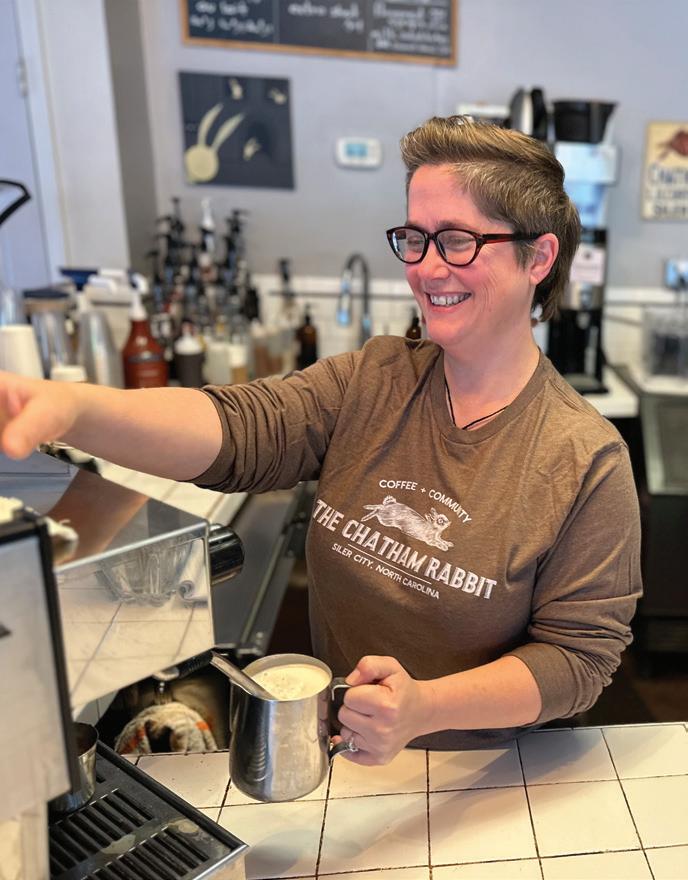
Harris is leaning hard into downtown and retail development. But he recognizes Chatham’s farming roots and the need to preserve agriculture and grow agribusiness. His family’s Harris Homeplace Farm, in nearby Snow Camp, sells grass-fed meats directly to consumers.
“We have the potential to become more of a generational community, with multiple generations of families here,” Harris says. “I graduated high school here, and a lot of my graduating class isn’t here anymore. So one of my goals is helping to turn that tide a little bit.”
Taking on the role of the new chamber’s leader gave him more of a realization of what legacy means.
“I’m the sixth generation on our family farm, and our family’s been here a long time. So we’re not going anywhere. I’m not going anywhere. I thought, I need to get my hands involved in this because I want this to be a great place to live in 30 years — not for me, but for my kids.”
It might still be a Siler City that Bavier, or Aunt Bee, for that matter, would recognize. “I, like a child, came here looking for a fairyland,” the actress once said. She told another interviewer: “I fell in love with North Carolina, all the pretty roads and the trees.”
Simmons, over at the Chatham Rabbit, said it’s simple: residents still want community.
“They want somewhere to land, and people to talk to.” ■
Bill Horner is a third-generation newspaper publisher who was an owner and editor of The Sanford Herald and the Chatham News + Record. He and his wife Lee Ann live in Sanford. Reach him at bhorner@businessnc.com
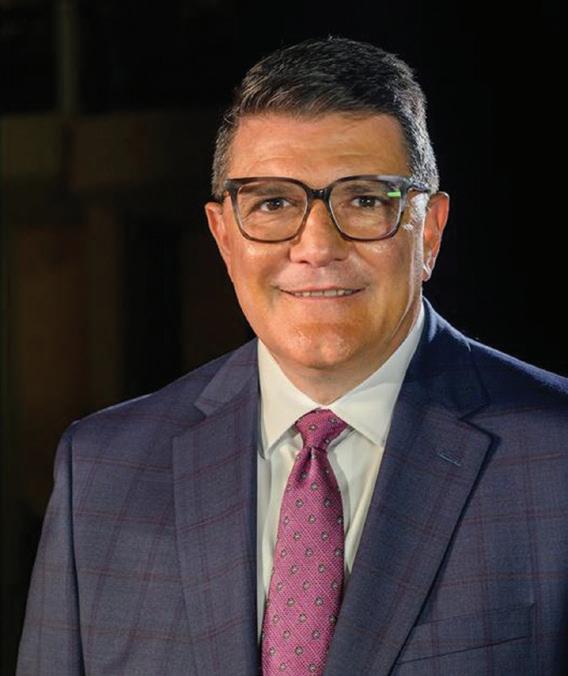





TNC Chamber CEO Gary Salamido joined High Point University President Nido Qubein in the Power List interview, a partnership for discussions with influential leaders. The interview was edited for brevity and clarity.
ell me how a pharmacist becomes a CEO of the chamber of commerce.
I learned very early on from my upbringing that people are the priority, and taking care of people and being of service to your community and your family is a top priority. at’s what my family was all about when they came here. So I went to pharmacy school because I wanted to take care of people. e pharmacist in the community was that person who had access to a lot of di erent people. So I learned how to listen, and I learned how to understand people and take care of them. As long as you’re open and you meet people and you build relationships, opportunity comes. at’s what it’s all about, right?
Gary Salamido is entering his 14th year at the NC Chamber, including serving as CEO since 2019. He has advanced policies credited with helping the state achieve various best-in-business rankings and raising the group’s profile. The advocacy nonprofit has a $5 million annual budget and employs 28. Before moving to the NC Chamber, he worked for 19 years at GlaxoSmithKline, including a decade as director of state government affairs. He has a bachelor’s degree in pharmacy from the Albany College of Pharmacy in Albany, New York, and a master’s degree from the University of Texas. He and his wife, Lisa, have three children.
Right. The state of North Carolina is thriving businesswise. Great climate, mountains and beaches. Wonderful place to raise a family. Corporations are attracted here because of our workforce, because of our values. What does the chamber do that supports economic development?
As you know, North Carolina wasn’t always the number one place around the country, around the globe where people wanted to come. We had some work to do. So we sat down and we put in an intentional plan in place through business leaders like yourself. We developed the 2030 plan. It was intentional that we’re here where we are now. at was back when Stan Kelly was our chairman and decided we needed a long-range plan for North Carolina’s economic security, so people can have a good job. We just nished our last ve-year installment. Over the next ve years, we’ll nish that up. We’ve almost achieved everything that’s there.
Summarize the plan for us.
It’s divided into three pillars: education, talent supply and a competitive business climate. Because you can get everything else right, but if you don’t have the people, and you don’t have the skill sets necessary for the jobs of today and tomorrow, nothing else matters. en you need a competitive business climate, everything that goes into the cost of a job, the tax climate, the legal climate, the regulation. And then you have infrastructure, roads, water, sewer, ports, goods and services and people back and forth. So we aggregate the voices of the private sector business community and ask what are the things that transcend across industries that make the state the best place for private sector job growth, so that people can have a good job?
Do we have enough people? Do we have enough graduates? Not just talent that can do manufacturing, but talent that can also be equipped to deal with the world. Where would you rank us?
We have all the ingredients. We have the schools. We have the public and private universities. We have a world-class community college system. So we have all the ingredients, but nobody has the people. And, you know, it’s just a math problem right now.
The birth rates are less than they were 25 years ago. Things have changed dramatically in our cultures. So we have less people than we have the availability of the jobs at this rapid rate of change and innovation has created for us. And yet we have migration to the states, but not enough. We have to be the best state in the country and the best place in the world for migration of talent.
We have to do it all together. We’re at the top right now. The magic sauce is out now. Everybody knows why North Carolina is winning. Do we have the initiative? Are we agile enough as the business community to act and to make those critical investments so that people want to continue to come here?
What is the toughest part of your job?
The toughest part is addressing all the needs that the people have. And each community is different. So we have to be really good at listening to understand what’s going on in each community and then aggregating that into the policies that will benefit businesses across all industry segments. So the toughest part is the needs in the west are different than the needs in the east and in the Piedmont.
We are figuring out what the common threads are and advancing the common thread so that North Carolina wins wouldn’t matter where you live, you have the opportunity to succeed.
How much of your time is invested in the legacy of communication? I call it lobbying.
Oh, at least 90% of what we do is legacy. At the North Carolina General Assembly and the agencies. The other 10% is making sure our members’ educational needs are met among those key policy issues. But we’re an advocacy organization whose goal is to advocate for policies and initiatives that advance the economic climate for it. So it’s 90%.
Give me two or three of those policies. What are you working on now, for example?
Right now, one of the biggest challenges is workforce. The pandemic revealed a couple of things that we knew were challenges anyway, including the affordability and availability of childcare.We know the demographics are changing. We have two parents, two spouses, two partners that are working either because they have to or they want to.
The other is housing. We need affordability of housing. We need to modernize our permitting processes so builders can build safe and good homes for everybody across the economic spectrum. It takes longer to permit something than it does to build it. With the technology we have and the awareness out there, we can be better than that.
And the other one we’re working on is water and wastewater. Water is life, in so many ways and so how do we have a plan for water and wastewater treatment across the state that reimagines how we look at that, looking at public and private partnerships, looking at how we regionalize the delivery of those services in ways we haven’t done here historically.
The last one is energy. We have good, affordable, reliable energy here now in North Carolina. But what’s the future look like? We should lead the nation in advanced nuclear technology. We should make sure that it’s a safe place, but a place where diversified energy sources are here for our people and for our businesses. So those are the top three.
And what is the role of government in that? You say 90% of your time is advocacy mainly in the legislature. I assume you’re talking about funding and you’re talking about laws that that expedite the processes.
The role of government is to do the things that the private sector can’t do through the markets and through innovation. There’s a role there for government to help build infrastructure, public education, highways, rail, water, sewer. All those things that have to exist across county and municipal boundaries.
I want to talk about housing. We have to make it amenable for developers to invest money and build affordable houses, right?
There’s a lot of innovation going on there right now. We can’t put it into one bucket and say, this is the one solution that will work, because Charlotte is very different than Raleigh and very different than rural North Carolina.
We have a lot of farmland here now. So we have to be really thoughtful. But if we’re taking away farmland, farming and agriculture is our number one industry in the state, we feed the world in North Carolina. So let’s be thoughtful about how we do that.
It can coexist. It can thrive together. But it’s not going to be the same in every community. All of those things are going to be needed for North Carolina. We just have to be thoughtful and communicate with each other about what works where.
What about healthcare? Where do you see some of the pluses and minuses in North Carolina?
We have some of the best healthcare in the world. People come to North Carolina for healthcare. So its quality is unmatched. The challenge we have and something we’re working on to know is, the bigger businesses that can pay for it, that can fund themselves, they have options. They can influence their people. They can influence the providers, they can influence the systems. They can incentivize things in a certain way.
The biggest challenge in North Carolina is that our small business don’t have that option. Our small businesses don’t have the option to aggregate the lives of small business employees and then go to a system or go to an insurer and say, ok, I have 100,000 lives here, and I know what I need and here’s what I’m willing to pay for it.
What about childcare? How do we resolve that issue?
The issue is multifaceted. The system that was developed 30, 40 years ago has not modernized with the changing times. We have a different population of people now that need it and access it. We have different needs for the economically challenged versus in Cary, where I live.
But we’re making one size fits all. The regulatory scheme needs to be modernized so that private healthcare providers can come in and have it be affordable.
We did a nationwide study, and no one’s doing it well. The private sector and the government come together and innovate and do public private partnerships that keep our children safe and help get them the education that they need.
What worries you at night? I worry if my grandchildren and children are going to have the same opportunity I had because the world has changed so much.
I worry about how the value of relationships has gone down and how we’re so polarized and how our society is so transactional. There is the hard work of solving difficult problems between two people who look and see or feel differently about the world, and put each other in a box and don’t talk.
If you’re not learning from people that think, look, feel, come from different backgrounds, then you’re not going to make the difference you want to make. ■

Out of public view, succession planning is a key issue at three pivotal Tar Heel companies.
Bill Rogers, CEO



North Carolina’s corporate leadership may see major changes this year, with three veteran CEOs of the ve largest public companies at or near the traditional tipping point of age 65.
Brian Moynihan of Bank of America, Lynn Good of Duke Energy and William “Bill” Rogers of Truist haven’t signaled their intentions. But their departures wouldn’t be surprising to close observers.
To be sure, CEOs are staying longer than ever. More than 40% of the CEOs at companies comprising the S&P 500 Index of major companies are 60 or older, an all-time high, according to the Conference Board and the ESGauge research rm.
“It used to be that the prime CEO years were 45 to 55, but now CEOs are asking boards if they could stay longer,” says Richard Leblanc, a corporate governance expert who teaches at Canada’s York University. “If you have a performing CEO, there’s no reason to change, simply for change’s sake.”
Longer stays re ect the vigor of many CEOs, board members’ preference for battle-tested leaders and sharp increases in the level of CEO pay, which raises both net worths and pressure. With many CEOs in their mid- and late-60s, however, some experts expect a “cli ” of retirements looming on the horizon.
CEO succession is a key issue for any corporate board, but rarely discussed publicly. When companies are operating successfully, the odds are high that an internal candidate will gain the top spot. Nearly 60% of CEOs in the Russell 3000 index were hired from within.
In the nancial sector, nearly 90% of CEOs moved up within the organization, a Conference Board report notes.
Here is some of the speculation circling the three large N.C.-based companies.
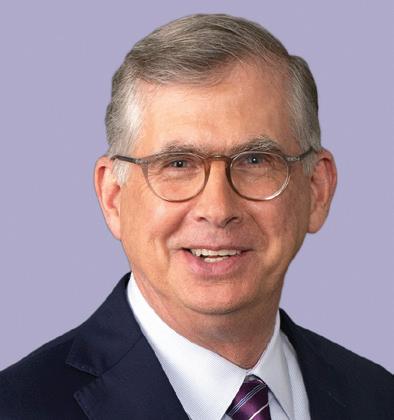
At Truist, CEO Bill Rogers, 65, has faced signi cant hurdles since taking the helm in 2021 from Kelly King, two years following the 2019 merger of BB&T and SunTrust. Investors have been largely unimpressed by the merger, with Truist shares underperforming the industry indices while reporting lesser pro ts than expected.
A er a major realignment of its leadership team, Rogers told analysts in November that “we are on o ense” with third-quarter earnings gaining 24%. Rodgers assured shareholders there was no “merger hangover.”
Rogers had served as chairman and CEO of Atlanta-based SunTrust since 2011, a er joining the company in 1980. He is a born-and-bred Tar Heel with a bachelor’s degree from UNC Chapel Hill. ree executives appear well-positioned to succeed Rogers.
► Hugh “Beau” Cummins, Truist’s vice chair and chief operating ofcer, has worked closely with Rogers since joining SunTrust in 2005. He spent most of his career in the company’s capital markets and wholesale banking operations, becoming vice chair in 2021 and COO in 2023. Cummins, who has an MBA from the University of Michigan, earned the second-largest compensation at Truist in 2023, with a package valued at $6.1 million. Two years earlier, he had received total compensation of $11.7 million, including $7.78 million in stock awards. Truist shares have have declined 20% over the past ve years. Cummins is in his early 60s, which may be too close to Rogers’ age and work against his chance to become CEO.
► Kristin Lesher, Truist’s chief wholesale banking o cer, would re ect the board’s desire for change. She joined the company last February from much larger Wells Fargo. A er earning an MBA at Northwestern University in 2000, she joined Charlotte-based Wachovia, which Wells Fargo acquired during the 2008 nancial crisis. A er many years in investment banking, she was promoted to key commercial banking posts starting in 2018. She’s spent most of her career based in Washington, D.C. Now at Truist, she’s overseeing corporate and investment banking, commercial banking, commercial real estate, and wealth management. Truist’s merger struggles make it more likely the board would promote a relative outsider to the CEO post.
► Dontá Wilson was named chief consumer and small business banking o cer in November 2023, when Cummins was promoted to COO and Lesher’s hiring was disclosed. Wilson is a close con dant of Rogers and an esteemed Charlotte civic leader. His post includes oversight of more than 2,000 community banking branches in 17 states and the District of Columbia, along with digital banking, core deposit and loan products, consumer nance and innovation. e units make up 60% of Truist revenue. Wilson, 48, started working for predecessor BB&T as a UNC Charlotte student in the mid-1990s. He has worked for the bank in several states and was named to the executive management team in 2016.
Lynn Good, CEO
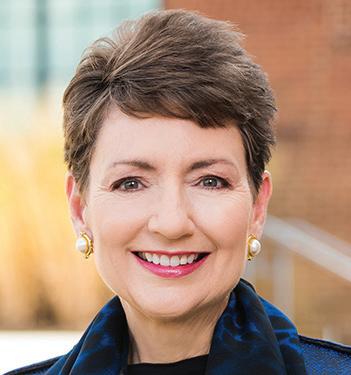
Lynn Good is completing her 11th year as CEO of Duke Energy, the third-largest U.S. electric utility based on market value. A former Arthur Andersen CPA who joined predecessor company Cinergy in Cincinnati in 2003, Good has led the company to record profits while steering toward a more green future. It’s been “a complex undertaking that involves short-term planning and long-term advances in technology,” Hannah Bates wrote in a Harvard Business Review story.
Like many peers, Duke Energy is shifting from its once-heavy reliance on coal-fired production plants to more natural gas and alternative energy sources. The utility benefits as the second-largest nuclear operator among U.S. utilities.
Good is also a director of Boeing, which is facing unprecedented challenges. She’s active in the Charlotte Executive Leadership Council, a CEO group. Good’s total annual compensation has averaged more than $19 million over the past three years, which is nearly four times as much as any other Duke Energy executive during that period.
Should Good step down, two internal candidates get the most buzz as likely successors.
► Harry Sideris was named president in April, a title Good previously held. He has a chemical engineering degree from NC State University and an MBA from Campbell University. He joined Duke in 1996. His previous roles at the company include executive vice president of customer experience, solutions and services; state president of Duke Energy’s utility operations in Florida; and senior vice president of environmental health and safety. “The rule has long been, ‘grow your own’ internally, especially at a company of that size and complexity,” says Ralph Ward, editor of the Corporate Insider newsletter.
► Brian Savoy, chief financial officer, is another longterm Duke executive, having joined the company in 2001 as a manager in its energy trading unit. Before taking his current post in 2022, he was chief strategy and commercial officer. His total compensation in 2023 was $3.48 million, the lowest of the six most highly compensated officials. That doesn’t always correlate with succession. “When you hear about executive pay plans, take it with a grain of salt,” Ward says. “There are a lot of different pay structures involved.”

Brian Moynihan, CEO
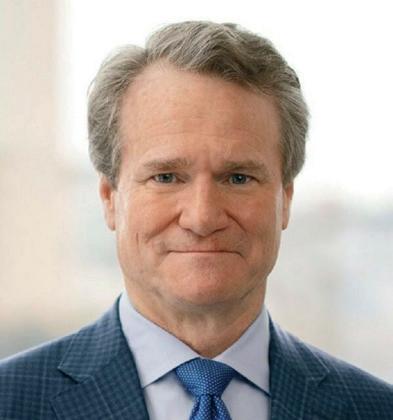
Brian Moynihan, 65, has had a remarkable run since bank directors picked him in 2010 to succeed Ken Lewis as CEO. His selection came amid a closely watched succession battle following BofA’s controversial purchases of Merrill Lynch and Countrywide Financial. The hiring of the Boston-based CEO confirmed the dominance of board members less connected to Charlotte, where predecessors Lewis and Hugh McColl Jr. built the financial powerhouse. Moynihan focused on reducing risk, expense controls, rebuilding capital and methodically improving the bank’s core businesses of retail banking, capital markets and wealth management. His work has won consistent plaudits from Wall Street investors and Warren Buffett, who remains BofA’s largest shareholder even after hefty sales over the past year.
Moynihan, whose annual compensation has averaged $27 million over the past three years, is in no rush to depart. But his nearly 15-year tenure is increasingly unusual among leading U.S. CEOs, and the demands of a $2 trillion bank never get easier.
Succession buzz centers on three leading candidates, each of whom is in their mid- or late-50s.
► Dean Athanasia is president of regional banking, which has been BofA’s traditional core business. A graduate of Yale University with a Wharton School MBA, he joined BofA predecessor Fleet Boston in 1996 after working for JPMorgan in corporate lending and strategy jobs. After BofA bought Fleet Boston in 2004, he gained increasingly key roles in the wealth and investment management unit, then became president for consumer and small business banking. He oversees four of the company’s eight major lines of business, and has helped sustain BofA’s leadership in retail banking and small business and commercial lending. He’s long been among the bank’s highestpaid executives, receiving average compensation of about $14.6 million over the past three years.
► Alastair Borthwick became the bank’s chief financial officer in 2021 after previously heading global commercial banking for nine years. He previously was co-head of global capital markets. He joined the company in 2005 after working for Goldman Sachs for a dozen years. He received an undergraduate degree at the University of St. Andrews in his native Scotland, then a Dartmouth MBA. He has earned annual compensation of about $11 million in recent years.
► James DeMare is president of global markets at BofA, and has more than 25 years of financial services industry experience. Prior to joining Bank of America in 2008, he held various management and senior trading positions in fixed income at Citigroup, Salomon Brothers and Bear Stearns. Reflecting the higher pay typical for capital markets executives, DeMare has received more compensation over the past three years — averaging about $18.7 million annually — than any named executive other than Moynihan. ■




By David Mildenberg




MJustifying eye-popping increases in homeowner insurance rates splits the industry and its regulator.


any North Carolina homeowners are facing sticker shock when opening the annual bill from their property insurance company.
Whether the higher charge should be 30%, 50%, 80% — or zero — is sparking debate between state regulators and the companies. A decision is likely within the next two months.
North Carolina’s insurers think homeowners should pay an average 42% more than the current rates approved by the state Department of Insurance. at request for higher rates is the industry’s rst ling since 2020, a period that has been a painful experience for many insurers and property owners because of an unusual number of powerful storms, higher material costs and increased labor charges. Anyone who’s paid for a new or repaired deck or roof knows the meaning of construction in ation.
Still, Insurance
Commissioner Mike Causey contends the statewide average increase should be no more than 3%. In some regions, he says rates should be at or cut modestly.
e industry and department argued the matter for several weeks at a hearing that started in Raleigh in October. Causey is expected to rule early this year.

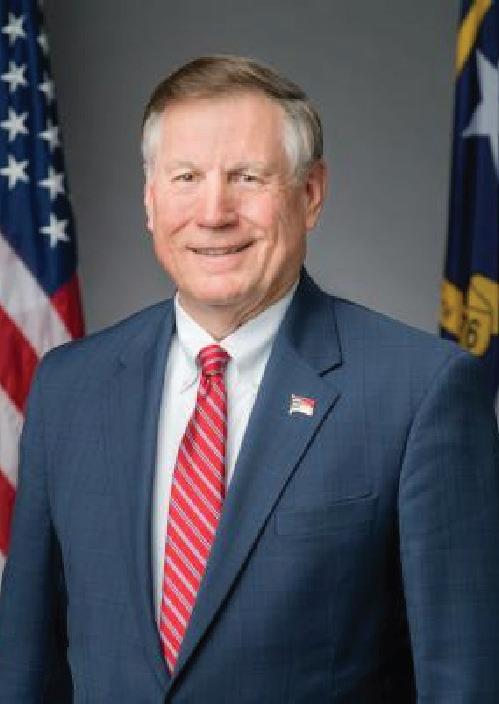
e department’s “overall recommendations simply cannot be squared with what is happening in the marketplace here in North Carolina,” Mickey Spivey, a lawyer for the insurance industry, said at the hearing’s opening. “You must ask yourself whether you can possibly nd credible any witness or any argument that seeks to convince you that the current rates do not need to be increased. We submit to you that the answer to that question is a resounding no.”
ere’s nothing new about such tussles in North Carolina, which has used its unusual approach to ratemaking for decades. Most states let individual homeowner insurers to le new rates, then institute the change without regulatory approval. But pressure for higher rates is accelerating.
Between 1993 and 2014, N.C. insurers submitted eight rate lings. Since then, there have been four rate requests. Commissioners historically order lower-than-requested increases, spurring industry lawsuits and eventual compromises.
But the 42% request made in early 2024 is sharply higher than previous proposals. e last request was for a 24.5% increase in 2020. Two years later, the industry and Causey agreed on a 7.9% hike.
e 42% number is an average, with the speci c increase varying widely across the state, depending on storm frequency, claims experiences and other factors. Homeowners in some coastal regions are seeing average rate increases of 99%, while others are in the single-digit range.
Still, it’s a record request that is hitting homeowners across North Carolina, not just beach properties.
While that’s the big picture, the real world situation is that insurers are charging and collecting higher rates because they have to make a pro t, and the law lets them raise the fee, says Christopher Cook. He owns Winston-Salem-based Alliance Insurance Services, which employs 40 people in ve locations.
About 45% of the state’s residential properties were covered by “consent-to-rate” policies in 2023. at refers to state law permitting insurers to charge as much as 25% more than the state-approved rate.
A $1,000 approved rate could lead to a $1,250 o er from Company X, for example. e homeowner can either “consent” and pay $1,250, or turn it down and nd another insurer. Company X is then allowed to cancel the policy.
“While no one likes to see their insurance premiums increase, consent-to-rate is a tool that insurance companies can use to continue covering customers’ property if that property becomes too risky to cover at the base rate,” Causey said in an email response to questions. “[Consumers] may shop around to see if they can nd lower rates.”
e commissioner, who was re-elected in November to his third four-year term, says he’s open to improving the consent-to-rate law if state lawmakers want to do so.
“Insurers aren’t going to take on a rate that is going to cause them to lose money,” says Cook, who is active in the Independent Insurance Agents of North Carolina, a trade association representing nearly 1,000 agencies. Unfortunately, he says, North Carolina’s insurers have collectively paid out more in claims than they have received in premiums in recent years, which justi es the rate request, he says.
e insurance industry’s case for higher rates stems from three key factors: construction in ation; higher prices charged by the mostly European-based reinsurance companies that act as a backstop for the insurance carriers; and payout ratios, which uctuate based on the frequency and severity of storms. All three factors are showing negative trends that have reduced pro t in recent years, industry o cials say.

In ation in construction prices is a big concern, with material costs for single-family homes soaring about 34% since early 2020, the American Property Casualty Insurance Association reported in 2023. Construction wages gained 20% between 2021-23, according to market researcher RS Means Data.
In North Carolina, construction costs of $300 per square foot are now common for lower-priced homes, which is double the amount eight years ago, Cook says. And the cost of repair or replacement in higher-income neighborhoods is o en $500 per square foot or more, he adds. “Reconstruction cost is really driving the rate increases.”
e result of he y premium increases is more telephone calls from policyholders asking insurance brokers for help in nding lower-cost alternatives, Cook says. Many calls come from buyers of direct-to-consumer insurers such as Geico and Progressive, which attract business through heavy ad spending.
In the current market, however, it’s o en hard to nd another carrier willing to o er a lower price. “ e last few years have been hard on everyone and not many companies are growing their book of business,” he says.
e good news for homeowners is that solid housing demand and restricted supply has sent home values soaring in many N.C. regions. Nationally, the Zillow Home Value Index gained more than 45% between March 2019 and March 2024, while premiums for homeowners insurance increased by nearly 15%.
It appears that insurers and regulators are nding a balance, avoiding the situation in some states where, many insurances have pulled out of the market because they view the risk as exceeding any reward. Having more carriers spurs competition that gives homeowners more choices and, presumably, better rates.
e N.C. Department of Insurance doesn’t publish a list of companies that have le the state. But Causey notes he has “not received many such noti cations over the past few years. North Carolina continues to have a competitive insurance market.”
He credits the consent-to-rate approach, which he says “while far from perfect, allows insurance companies to be competitive and remain solvent in North Carolina.” ■

Source:



Partnerships with ECU, IBM and the Crystal Coast’s appeal help attract a software company.
By Kevin Ellis
What would lead the CEO of 21st Century Software Technologies to relocate the software development company known as 21CS from Boston to Morehead City? Eddy Ciliendo mentions the fresh seafood available on North Carolina’s Crystal Coast, but the attraction to eastern North Carolina was about more than a good meal.
“Our initial plan was to relocate to Raleigh, Charlotte or Wilmington, but we realized that the Crystal Coast was a much better fit for us due to affordability, talent pool and quality of life – besides we felt that we would have a greater impact on the local economy compared to one of the metro areas,” he says.
21CS’ move to eastern North Carolina will involve an investment of $455,000 and create about 25 jobs with an average pay of $87,920, more than doubling the current Carteret County wage of $41,149. Those new jobs will include software engineering and software support roles. North Carolina’s average wage is $65,409.
The company was formed in 2017 to develop software for mainframe computers.The company employs about 200 workers, with about 60 in the U.S. Its largest office is in Perth, Australia, Ciliendo says. He declined to detail the private company’s revenue, but says it is a “multi-million dollar company planning to at least double our revenue in the next couple of years.”
About 60% of its customers are based on the East Coast with its biggest partner being IBM, where Ciliendo previously worked for 19 years. Big Blue’s large presence in the Raleigh-Durham area led 21CS to look toward North Carolina for a new location, he says.
“We also work closely with East Carolina University as they have a computer sciences curriculum that produces ideal candidates for our line of work,” says Ciliendo.
The move to is “motivated by our growth ambitions, as we will have to hire aggressively to sustain the growth target.”
He suspects the initial 25-job target for Morehead City “will probably end up closer to 50 or 60 people over a five-year horizon.”
Ciliendo joined 21CS in July 2023 and succeeded Nick Pachnos as CEO in September. A graduate of the University of Zurich, Ciliendo began his career with IBM in Switzerland and later worked at the company’s Singapore operation from 2015 to 2017. He then spent the next five years at the Triangle site, before leaving to join 21CS.

Ciliendo lives in Morehead City, but says the availability of suitable o ce space in the city of fewer than 10,000 residents made it more favorable for the company than it being his home address.
“However, having experienced the many qualities of eastern North Carolina rsthand played a big role as I don’t think many non-residents know about the quality of life, great schools and friendly community,” he says.
“I have worked and lived all over the world, and I hold many places in fond memory, but I cannot think of a better place for our kids to grow up than the coast of eastern North Carolina,” he adds. “True to the State’s motto ‘Esse Quam Videri (to be, rather than to seem)’ we have great schools, seafood that is fresher than any high-end restaurant in New York or Tokyo and beaches that rival many top tourist destinations, all with a very down to earth attitude.” ■

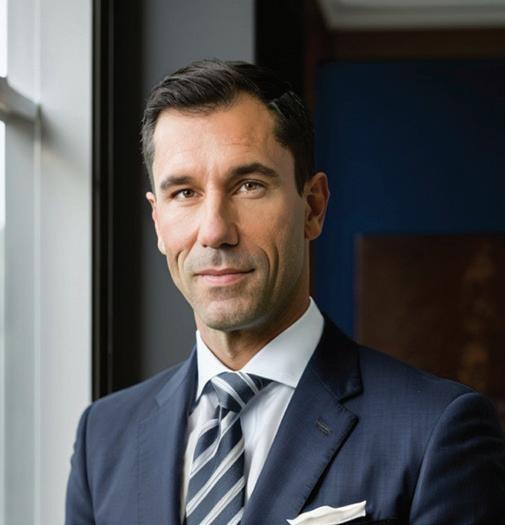







By David Mildenberg

the S&P 500 and Nasdaq indices gaining more than 30% in the year ending Dec. 11.
But three stockpickers chose companies with gains exceeding 40% in that period. Bobby Edgerton hit it with Veeva Systems, Frank Jolley scored with Bank of America and RTX and Christy Phillips also selected RTX. Ann Zuraw’s best selection was Lowe’s, which gained about 30% over the 52 weeks. Only two of 12 picks were negative, compared with eight of 12 in the previous year.
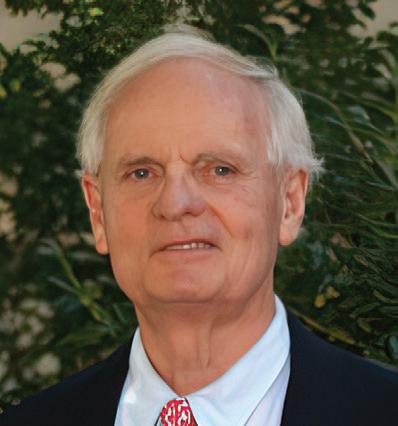
BOBBY EDGERTON Co-founder
MARKET
$1.69 BILLION
The Charlotte-based company is a rare stock trading near its 52-week low with a price-equity ratio of about 10, after being as high as 18. Shares are trading at their lowest level since KKD went public in 2021. It had EBITDA of $145 million in the past year on annual revenue of $1.7 billion. In July, it sold its majority stake in Insomnia Cookies for $172 million, retaining a 34% ownership. I once advised the CEO to stick to North Carolina, but he decided to go global.

Managing director and co-chief investment officer
Live Oak Private Wealth
Rocky Mount
MARKET CAP - $23.7 BILLION DIVIDEND YIELD - 4.5%
Nutrien is a Canadian fertilizer company that operates the Aurora phosphate mine in Beaufort County. Shares have declined from a peak of $117 in 2022 and should offer excellent risk/reward at current prices. The shares trade at less than 13 times forward earnings, approximately 90% of book value and pay a 4.5% dividend. It is a good total return vehicle for the patient investor.
For 2025, the investors made a diverse array of choices of companies based in North Carolina or having some operations here. Edgerton went conservative by recommending 30-year Apple bonds, and a hoped-for turnaround at Krispy Kreme Doughnuts. Jolley picked two strong dividend payers in Nutrien and UPS. Zuraw went heavy on healthcare with P zer and Iqvia, while Phillips recommended data center operator Core Systems, which is bene ting from the AI explosion.
Our three dartboard picks last year were each atrocious losers. So we asked one of our favorite o ce mates to make three selections.
Good luck investors in 2025!
MARKET CAP - $3.8 TRILLION DIVIDEND YIELD: N/A
I like Apple’s bonds which have a coupon rate of 2.65% and mature in 2051. The bonds with a $1,000 face value sold for $640, or 64 cents on the dollar in November, making the yield to maturity more than 4%. Bond interest is paid in May and November. This is the world’s safest bond issue ever, along with a similar offering from Walmart. It is a great choice for individuals and families wanting an incredibly safe source of income for the next 26 years.
MARKET CAP: $110.5 BILLION DIVIDEND YIELD 5%
UPS is the world’s largest integrated air and ground package delivery company. Shares are down approximately 43% from the 2021 peak levels and offer great value at 15 times 2025 estimated earnings. During the third quarter, UPS reported its first revenue and profit growth in two years. UPS’s dividend yield gives investors a very competitive current return.
MARKET CAP - $582 MILLION DIVIDEND YIELD: 0.4%
This is a super well-run Mount Airy-based manufacturer of steel wire reinforcing products for concrete construction applications. The company paid a $1 per share special cash dividend in December, the fourth straight year it has made an extra payout. Chairman and CEO H.O. Woltz runs a debtfree ship with a cash balance averaging $100 million over the past two years.
MARKET CAP - $205.2 BILLION DIVIDEND YIELD: 0.3%
Thermo Fisher is a leading provider of analytical instruments and services for the life sciences, pharmaceutical and drug discovery industries. It bought Wilmingtonbased PPD in late 2021. Weakness in China, coupled with the runoff of COVID-19 related revenue, has been a drag on revenue growth the past couple of years. We would expect growth to accelerate over the next few years with shares generating attractive returns going forward.

CHRISTY PHILLIPS
Head of equity strategies and director of research
Franklin Street Partners
Chapel Hill
MARKET CAP: $34.4 BILLION DIVIDEND YIELD 0.6%
As one of the largest producers of crushed stone, sand and gravel, this Raleigh company is a longterm beneficiary of infrastructure, reshoring activities and data center build-outs. The combined demand should drive above-average growth for several years. Aggregates as a percentage of total sales is rising, which enhances overall margins and drives pricing throughout the business. The company essentially operates in a duopolylike market. We believe investors will pay a premium in 2025 for domestic-oriented companies that benefit from the focus on US exceptionalism and aren’t hurt by potential tariff policies.
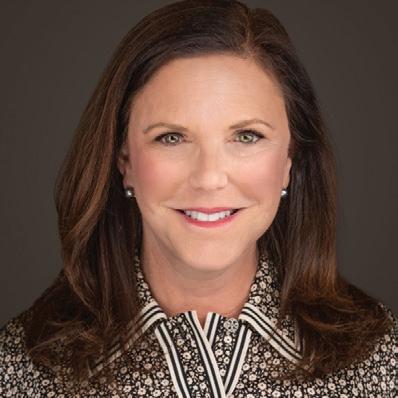
ANN ZURAW
President
Zuraw Financial Advisors
Greensboro
MARKET CAP - $2.4 BILLION DIVIDEND YIELD: N/A
The Wood Dale, Illinois-based company generates significant revenue from its Aviation Services Segment, driven by strong demand from airlines for parts supply and aftermarket services. It has operations in Fayetteville and Havelock. Its acquisition of Triumph Group’s Product Support business for $725 million bolsters its repair capabilities and expands its presence in the Asia-Pacific region. With improving financial conditions from lower interest rates and increasing demand for airline services, AAR is wellpositioned for sustained growth and market leadership.






OLIVER SWANEY
Good Boy
Davidson



MARKET CAP - $2.6 BILLION DIVIDEND YIELD: 2.4%
Oliver is a sucker for turnaround stories, so logically he picked a stock that has declined 30% in the past year and 76% over the past half-decade. It seems Advance has struggled to compete with stronger operators AutoZone and O’Reilly Auto Parts. But the Raleigh-based retailer’s CEO Shane O’Kelly is moving to fix the company, including closing 523 stores and four distribution centers and cutting ties with 204 independent locations. It expects fullyear 2024 results to be at break even, with profit returning this year.
MARKET CAP: $116 BILLION DIVIDEND YIELD: 4.2%
Bristol Myers has a strong portfolio of drugs and a robust pipeline focused on oncology, cardiology and neurology. These areas represent opportunities for strong pricing power. Opdivo transformed cancer treatment and has the potential to reach nearly $10 billion in sales. In neurology, the Cobenfy schizophrenia drug has the potential for a $5 billion franchise by 2033. We believe investors will return BMY to favor based on strong earnings generation capability, below-market valuation and a strong dividend yield.
MARKET CAP - $143.3 BILLION DIVIDEND YIELD: 6.6%
This pharma giant, which is a major North Carolina employer, has a diverse portfolio of products across various therapeutic areas, including oncology, immunology, cardiology and rare diseases. Some of its key drugs, such as Eliquis (a blood thinner) and Ibrance (for breast cancer), continue to generate significant revenue. It also has an extensive pipeline of potential drugs in development, while demand for COVID-19 vaccines and treatment will continue to decline. Patent expirations, regulatory hurdles and intense competition explain the depressed stock. But the stock appears undervalued, selling at an estimated 8.9 times price-toearnings ratio and a dividend yield of 6.6% in early December.
PHARMACEUTICALS(BCRX)
MARKET CAP - $1.5 BILLION
YIELD: N/A
Who knew that Oliver understood the promise of this Durham-based company, which has investors excited about its Orladeyo oral drug to prevent hereditary angioedema, which typically involves the swelling of the face, hands or feet that blocks lungs or intestinal walls. Biochryst has lost more than $1.4 billion since 2010. But surging Orladeyo sales may push it into the black this year, some analysts predict. Shares are up 20% in the year ending Dec. 16.
MARKET CAP: $4.4 BILLION DIVIDEND YIELD: N/A
Bitcoin miners are emerging as attractive partners to build out data centers, and Core Scientific leads the AI data center co-hosting model. The company has a center in Cherokee County. It secured a 12-year $4.7 billion contract with Coreweave, which has a partnership with NVIDIA. We believe the AI revenue line provides a downside floor to the miners, with Bitcoin driving a cyclical upside. Bitcoin and the entire digital asset ecosystem are on the brink of entering the financial mainstream.
MARKET CAP - $36.5 BILLION DIVIDEND YIELD: N/A
The Durham company is a leader in healthcare data analytics and contract research, benefiting from its strong market position, technological innovation and diversified revenue streams. Its advanced solutions, including AI, machine learning and cloud technologies, enable healthcare and pharmaceutical companies to optimize R&D, accelerate drug development and enhance patient outcomes. The company has stable cash flow and low debt. With demand driven by an aging population and more precision medicine, IQVIA is positioned to sustain robust growth.
Some day, we hope Oliver can explain what Premier does to achieve an expected $930 million to $1 billion in annual revenue. We know it is a leading healthcare analytics business that helps more than 4,350 hospitals and 325,000 other providers achieve purchasing savings. Beyond that, we’re perplexed. Anyway, he must like that Premier makes money, pays a solid dividend and may repurchase as much as $1 billion in shares. ■



An entity affiliated with data center operator Digital Realty Trust acquired about 155 acres on Moores Chapel Road. The company bought the site from an entity affiliated with The Keith Corp. for $160 million.
Honeywell signed an agreement with Montreal-based aviation company Bombardier to provide avionics, propulsion and satellite communications for future aircraft. The deal could add $17 billion in revenue to Honeywell over the lifetime of the deal, according to the company. Separately, the company sold its Personal Protective Equipment business to Protective Industrial Products for $1.325 billion. Also, the company said it is considering a divestiture of its aerospace division, the company’s largest unit.
Freight broker RXO will invest $13.7 million and add 216 jobs over the next few years as it expands its Ballantyne


headquarters. The move will also support the retention of 890 jobs already in the state.
Gambling.com agreed to buy Odds Holdings, the parent company of OddsJam. Under the agreement, Odds Holdings stockholders will receive $80 million upfront and may receive as much as $80 million more based on Odds’ performance through 2026.
Charlotte Douglas International Airport is proposing more flight paths for departing aircraft, in order to disperse noise over a wider area. CLT currently has eight paths for departing aircraft — four to the north and four to the south. The airport is proposing that the Federal Aviation Administration create 27 total paths. The FAA is likely to take more than a year to approve any changes.
Queens University President Dan Lugo will step down to take on the same role at Trinity College, the Hartford, Connecticut school announced. Lugo has been president of Queens College since 2019 and is slated to become Trinity’s 23rd president on July 1.
Tepper Sports & Entertainment promoted Carolina Panthers President Kristi Coleman to Tepper Sports CEO.

She is the first CEO since 2022 in a front-office restructuring by the owner of Charlotte’s NFL and Major League Soccer teams.
UNC Charlotte launched a $500 million fundraising campaign “For the Love of Charlotte.” The university has already raised more than half of the money but expects it will take several more years to raise the rest. Separately, the school hired Tim Albin as its head football coach. Albin had been head coach at Ohio University for four years. He replaces Biff Poggi, who was fired after less than two years.
A state agency audit found more than $6 million in “unallowable” spending by the U.S. Performance Center, which received $25 million from state lawmakers to attract high-level development of Olympic sports. The six-page audit found the center spent some of the $6.2 million on alcoholic beverages and fines on payroll back taxes.
Australia’s Sayona Mining will acquire Piedmont Lithium, which has worked since 2021 to add a lithium mine in northwest Gaston County. Sayona and Piedmont already jointly own a lithium
project in Quebec. The two companies will have a combined market value of about $500 million. Piedmont Lithium employs fewer than 30 employees, down from 62 in late 2023.
North Carolina’s only Catholic Church-affiliated college picked an architect for a $25 million performing arts center that has banked $9 million in state funding. Belmont Abbey College selected Charlotte-based Little Diversified Architectural Consulting to design the project. The college is raising about half of the remaining funds for the 1,000-seat theater.
Mecklenburg County commissioners approved a settlement with Colonial Pipeline more than four years after a pipe burst beneath a nature preserve here, flooding the ground with some 2 million gallons of gasoline and other fuel. Under the settlement terms, the Georgiabased company will pay $600,000 to the county’s Natural Areas Restoration Fund.
Duke Energy says its electrification center for commercial and public electric fleet vehicles is a first-of-its-kind in the U.S. to offer the service using 100% renewable energy. That means zeroemissions and carbon-free electric vehicle charging. The six-charger facility includes solar, battery storage, hydrogen and other types of generation. Cincinnatibased Electrada and its investors put up more than $1 million to open the Duke Energy + Electrada Fleet Mobility Microgrid.
Greg Fitchum will become president of Food Lion in May, succeeding Meg Ham, who is retiring after leading the grocery store chain since 2014. Fitchum joined the company in 1989 and has been executive vice president of retail operations for more than a decade. Food Lion is owned by Ahold Delhaize.
Ever Home Plastics, a subsidiary of China-based Vacane Home Concepts, will invest $3.6 million in the Mid-South Industrial Park, and begin operations in January. Ever Home manufactures plastic injection molds for home organization products supplied to retailers. It expects to create 46 jobs over four years with an annual salary of $57,826. That compares with Rowan County’s average of $50,138.
Beachwood, Ohio-based cabinet maker MasterBrand will permanently close facilities in Iredell and Randolph counties, resulting in the loss of 274 jobs. However, MasterBrand will expand its operations in Kinston, where it has about 500 employees. The company didn’t say how many new jobs will be added there.

The energy company building the 45-turbine Timbermill Wind facility has secured construction financing. Charlottesville, Virginia-based Apex Clean Energy announced institutions leading the financing are German-based Helaba, Japanese-based SMBC and BNP Paribas and Societe Generale, both based in France. A Goldman Sachs tax equity investment was secured. The project will have a capacity of up to 189 megawatts, producing energy to power up to 47,000 homes annually.
New York-based textile company Keeco will close its facility around Feb. 3, resulting in the loss of 114 jobs. Customer demands could keep the facility open longer, according to the company.
Andrew Burgess Poultry will use a $46,000 U.S. Department of Agriculture REAP Grant to purchase


Truist is committing $725 million over the next three years to Helene recovery efforts in western North Carolina. Highlights include providing $340 million in loans for small businesses, mortgages and commercial real estate and $310 million in low-cost municipal loans.
and install heaters, service doors and tunnel doors. This will save the poultry farm $6,900 per year and save 5,300 gallons of propane per year.
Hyster-Yale, a forklift manufacturing company with more than 1,400 employees and a 50-year history in Pitt County, will lay off 97 workers starting Jan. 23. The Cleveland, Ohio-based company reduced its fork-life truck manufacturing unit to one operating shift, which led to the layoffs.
East Carolina University broke ground on the 195,000-square-foot, $265 million Center for Medical Education building at its Moye Boulevard site. The center is across from the existing Brody School of Medicine on ECU’s Health Sciences Campus.
Sandbar Oyster, which was formed in 2015, has leased a 2,000-square-foot facility that will employ about 12 people to manufacture and distribute its Oyster Catcher product. It is a structure made of cloth and cement that provides a reef framework for oysters to settle and grow on.
Residential cabinet manufacturer NexGen Cabinets will create 42 jobs by investing $6.7 million to establish an East Coast assembly and manufacturing facility. NexGen is a division of China-based Honsoar International, a manufacturer of kitchen and bathroom furniture with a production footprint in Malaysia, Vietnam and Cambodia.
Amazon bought 77.4 acres of land at the Tarboro Commerce Center for $512,000,



Bill Belichick, who has a total of eight Super Bowl rings, will stalk the sidelines of the UNC Chapel Hill gridiron a er receiving a ve-year, $50 million contract to coach football. He replaces Mack Brown, UNC Chapel Hill’s all-time winningest football coach.
according to Edgecombe County property records. Seattle-based Amazon has not disclosed its plans for the property.
Frontier Scientific Solutions, a temperature-controlled storage and transportation company serving the life sciences industry, announced plans to develop a 500,000-square-foot facility at Wilmington International Airport that would initially create 100 jobs . It could add 500 more as the company expands.
Middle Street Partners, a real estate investment and development firm based in Charleston, South Carolina, closed on the purchase of Pier 33 Apartments in downtown. The property’s sale price was $85.3 million. Raleigh-based Dewitt Carolinas was the seller.
Vantaca, a firm that provides community associations with management software, acquired California-based AI technology provider HOAi, which helps the community management industry streamline financial analysis and automate document management, among other functions. Dave Sweyer founded Vantaca after leading Community Association Management Services.
A new microscope at the Port of Wilmington could help streamline the inspection of imported produce and agricultural products. U.S. Customs and Border Protection specialists will use a new Leica Microscope to inspect imported produce and agricultural commodities to ensure they don’t contain harmful pests.
Avelo Airlines plans a base at Wilmington International Airport and will add three new nonstop destinations, including Nashville, Tennessee; Rochester, New York; and Boston/Manchester, New Hampshire, beginning in April. Avelo’s plans will create 50 jobs.

Superior Glove, a Canadian producer of safety gloves and PPE equipment, is set to open its first American manufacturing plant in High Point in April. The Ontario-based operation said it expects to create more than 100 jobs at the 45,000-square-foot plant over the next five years. No state incentives were involved in the transaction.
Cone Health completed its merger into Risant Health, ending 71 years of local ownership. Risant has committed
a minimum of $1.4 billion in capital to Cone Health over the next five years and up to $300 million more over the over the next 10 years. At least $1 billion will be for investments in facilities, health equity and other projects. The remaining $700 million will go toward the transition in ownership and Cone’s growth opportunities.
State University will be the state’s first school to offer an undergraduate degree in artificial intelligence. Some universities in the state offer an AI concentration within their computer science degrees.
Tanger expanded its shopping center reach in the Southeast by paying $73 million for The Promenade at Chenal in Little Rock, Arkansas. It is the first Arkansas presence for the open-air shopping center and outlet operator. The Little Rock center contains 270,000 square feet.
The Greensboro Area Convention and Visitors Bureau, the Greensboro Sports Foundation and the Oak View Group, which manages the First Horizon Coliseum complex, have partnered to purchase 40 portable pickleball courts that will be housed at the special events center at the coliseum complex.
Wieland Copper will invest $27 million to expand its production facility and create 50 jobs at a location that it has owned since 2010. Wieland produces copper tubes that are then processed for the HVAC, defense and aerospace industries. The Ulm, German-based company already employs about 470 workers in Stokes County.


Businesses in low-to-moderate income areas could be eligible to receive up to $750,000 under a new city loan program designed to grow small businesses in economically disadvantaged areas. The “Can Do Grant Program” is supported with $2.5 million of the city’s American Rescue Plan Act funds and $2.5 million in state funding.
Wake Forest University began construction on The Grounds, a 100acre, mixed-use development around the university’s athletic complex, 14 years after the project was announced. The groundbreaking kicks off the $215 million project involving the university, city and developers Carter of Atlanta and Front Street Capital of Winston-Salem.
Nelipak opened its 110,000-squarefoot packaging production site nearly two years after the global healthcare packaging manufacturer committed to creating 79 jobs. The Cranston, Rhode Island-based company, doing business as Nelipak Healthcare Packaging, is operating in a new speculative building that represents its first North American flexible packaging production site.
Developer High Tide Capital, which specializes in restoring historic landmarks, purchased the downtown Loewy Building from the Housing Authority of Winston-Salem for $3.1 million. The Maine-based developers plan to invest as much as $20 million to convert the building into apartments.
Atrium Health Wake Forest Baptist rode a strong performance from its investment income portfolio to post $263.5 million in excess revenue over expenses through three quarters of fiscal 2024. Baptist is the largest employer in northwest North Carolina, with more than 22,000 employees.
ProKidney paid $22.5 million for two buildings on property adjacent to its existing location after walking away from a planned Greensboro expansion that came with about $35 million in incentives and a promise to create 330 jobs. The new deal represents about 180,000 square feet of space and will support ProKidney’s manufacturing operations for rilparencel. It ia a treatment to potentially preserve kidney function in patients with Type 2 diabetes and advanced chronic kidney disease.
Truliant Federal Credit Union purchased Atkins & Associates Insurance Agency, based in Greenville, South Carolina. Atkinas has operated for more than 16 years and is now called Truliant Insurance of Greenville.

Reliance Packaging plans a $7.4 million expansion that will create 32 jobs. The company has operated here since 2014. Its heavy-duty plastic bags and film are used for the lawn and garden market as well as other outdoor applications.
The town of 21,000 residents is suing Charlotte-based Duke Energy, contending the big electric utility knew about harmful impacts of climate change for
more than 50 years but continued to operate coal and gas power plants that emitted significant greenhouse gases. Duke Energy says it is reviewing the lawsuit.
Chipmaker Wolfspeed fired CEO Gregg Lowe, who had led the company since 2017. Board Chair Thomas Werner will lead the company until a permanent chief executive is hired. Wolfspeed reported a $282.2 million net loss for the first quarter of its fiscal year. The chipmaker has laid off about 20% of its staff in 2024, while adding a $3.9 billion plant in Chatham County. Wolfspeed had 5,013 employees as of June 30.
The Biden administration announced the Department of Commerce and a North Carolina nonprofit are entering talks on a $285 million deal to create a new institute to bolster the U.S. semiconductor industry. The talks between the U.S. Department of Commerce and Semiconductor Research Corp. could lead to what officials call the SMART USA Institute.
A former Extended Stay America hotel on N.C. 55, just south of Interstate 40, won 7-0 approval for conversion into 126 multifamily homes by Vivo Living. City Council also unanimously approved expansion of Caring House on Pickett Road to provide more housing for Duke Cancer Center patients and their families.
Federal Express will close an office here and lay off employees at a Raleigh office, resulting in the loss of 123 and 218 jobs, respectively. Some employees have already accepted new positions at other FedEx locations. The layoffs at both locations will be effective Feb. 3.
North Carolina Central University announced a $1 million grant from Google.org, Google’s philanthropic arm, to establish the Institute for Artificial Intelligence and Equity Research. It is a first-of-its kind program for a U.S. Historically Black College or University.
Biotechnology company Amgen plans a $1 billion investment in Holly Springs expected to create 370 additional jobs that pay an average wage of $91,527. Amgen broke ground in 2022 on its first Holly Springs site, which represents a $550 million investment and an estimated 355 jobs. It should be operational in 2025, while the expanded plant should open by 2028.
Advance Auto Parts continues to slim down as CEO Shane O’Kelly realigns the Raleigh-based retailer. The company says it will close 523 stores, sever relations with 204 independent locations and shutter four distribution centers by mid 2025. At the end of 2023, the company operated 4,786 stores, 50 distribution centers, and it supplied 1,245 independently owned Carquest stores.
McAdams, a design and engineering firm headquartered here, acquired AVID Group, a civil engineering firm with 20 employees and offices in the Tampa and Orlando areas. Adams has 473 employees with branch offices in Charlotte, Durham and Winston-Salem, and the Dallas-Fort Worth area.
International travelers at RaleighDurham International Airport can now choose from a record 14 destinations. Recent announcements include nonstop flights to Vancouver and Calgary in June 2025, flights to Montego Bay, Jamaica, and Punta Cana, Dominican Republic, in February and flights to Bermuda in April.
Former City Manager Ruffin Hall was named CEO of the nonprofit Dix Park Conservancy, which maintains the 308acre park near the center city. He succeeds Janet Cowell, now mayor, who resigned before the election. Hall was the capital city’s manager from 2011-20. The CEO search attracted 150 applicants.
Saint Augustine’s University dismissed half of its employees as it works to regain
its financial footing. The university is eliminating 67 staff positions, 37 full-time faculty positions, and 32 adjunct faculty positions. It will also discontinue several academic programs. These cuts have helped reduce the university’s expenses by about $17 million.
The Jefferson Inn, a historic downtown hotel, was sold at auction for $3.3 million to Hometrust Bank of Asheville. Current management company Hogan Hospitality Group didn’t say whether the Jefferson Inn and its on-site bar, the 1901 Lounge, will continue operations.

Novant Health, a Winston-Salembased health system, is seeking state approval to open an $8.3 million diagnostic center here. The proposed diagnostic center, Novant Health Asheville Imaging Center, would be located at a former Gold’s Gym now housing families affected by Tropical Storm Helene.
The Asheville Metropolitan Statistical Area shed 8,200 jobs in October, or 4% of the region’s total jobs, according to the N.C. Department of Commerce. It’s a glimpse of the impact of Hurricane Helene in the area, which includes Buncombe, Haywood, Henderson and Madison Counties. The state lost a net of 5,500 jobs in October.
Businesses reliant on tourism and hospitality in Buncombe County are projected to post Helene-related revenue losses of as much as 70% in the final quarter of 2024, according to the Tourism Development Authority.
Appalachian State University will use its allocation from a sports wagering tax to help pay for a $29 million on-campus indoor practice facility. The UNC Board of Governors approved ASU’s funding proposal for the 85,000-square-foot facility, of which $3.3 million, or 11%, comes from sports betting. The school also hired Dowell Loggains as head football coach. He had spent the past two seasons as offensive coordinator and quarterbacks coach at the University of South Carolina. He succeeds App State alum Shawn Clark, who posted a win-loss record of 40-24 in six seasons.
UNC Health Appalachian promoted Chief Operating Officer Nathan Nipper to CEO. He succeeds CEO Chuck Mantooth, who announced in July he would retire at the end of this year. Nipper joined the system in December 2022.
The world’s largest IV fluid plant resumed operations after Hurricane Helene shut down production, triggering a ripple effect across hospitals and doctors’ offices. A levee breach had flooded Baxter Healthcare’s 1.4 million-square-foot manufacturing site about 30 miles from Asheville, causing significant damage to the facility.
E.J. Victor, a high-end furniture manufacturer, will lay off 121 workers in a downsizing related to Hurricane Helene storm damages and a dispute with its insurance provider, Firemen’s Fund. E.J. Victor filed a lawsuit against its insurance carrier, Fireman’s Fund Insurance Company, seeking in excess of $75,000 in damages.
Rocky Mount-based C.W. Williams will invest about $1.75 million and create 10 jobs as it opens a third location in the state. The company, which has more than 40 employees, currently sells and services emergency vehicles, and has another location in Statesville. ■



















The inaugural Carolina HR Summit & Awards was held on Nov. 4. More than 175 human-resources leaders from across the Carolinas attended the event, which was held in Charlotte.
Organized by Charlotte-based Search Solution Group, an executive search company, in partnership with Business North Carolina, it featured a keynote speaker, moderator and four panelists. They offered insights into building and managing a thriving workforce.











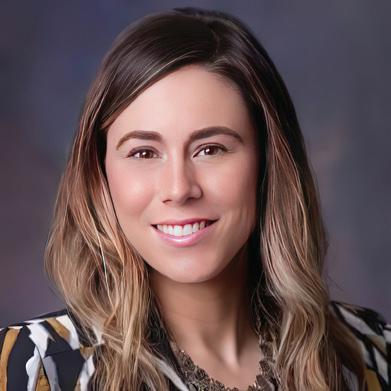


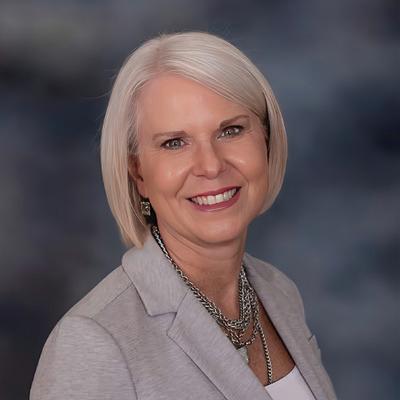




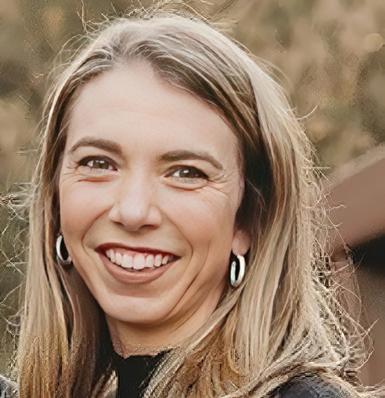







The summit also recognized HR Standout winners. These 10 human-resources leaders were chosen based on leadership, dedication and innovative approaches, all of which set them apart as trailblazers. Their achievements inspire others and demonstrate the power of effective leadership in shaping strong and resilient organizations.
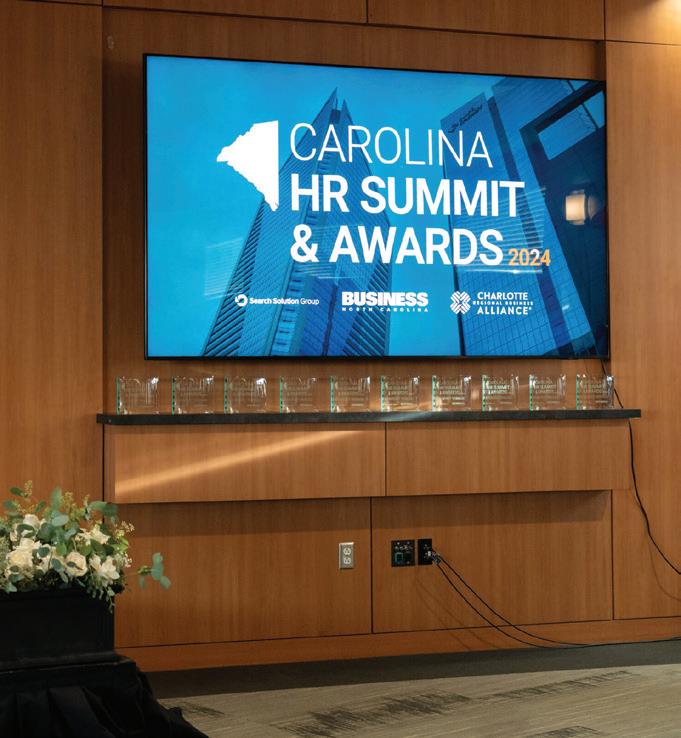








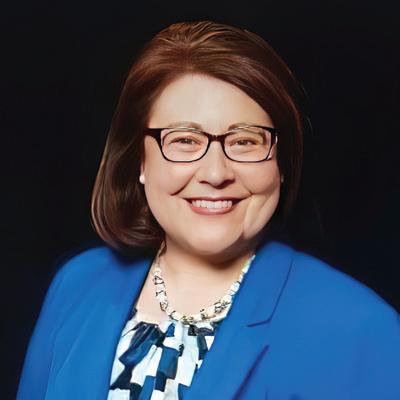









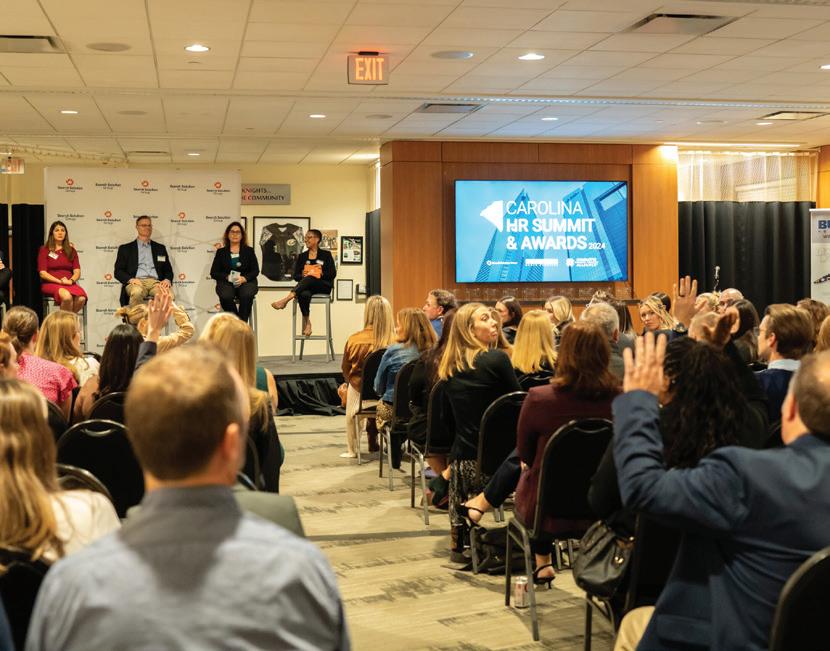



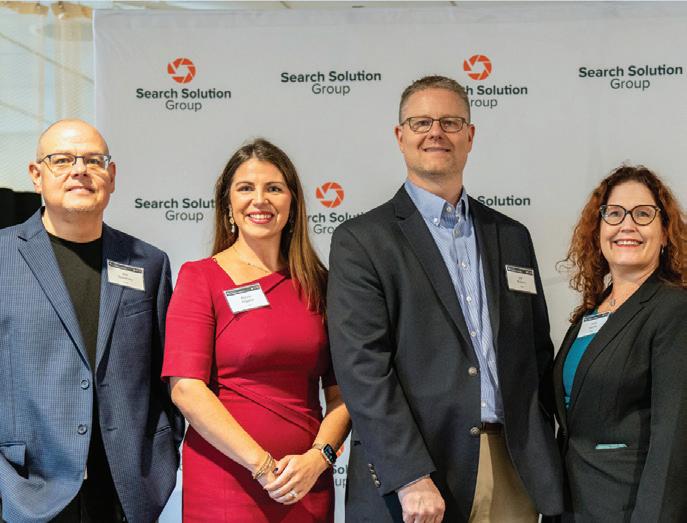




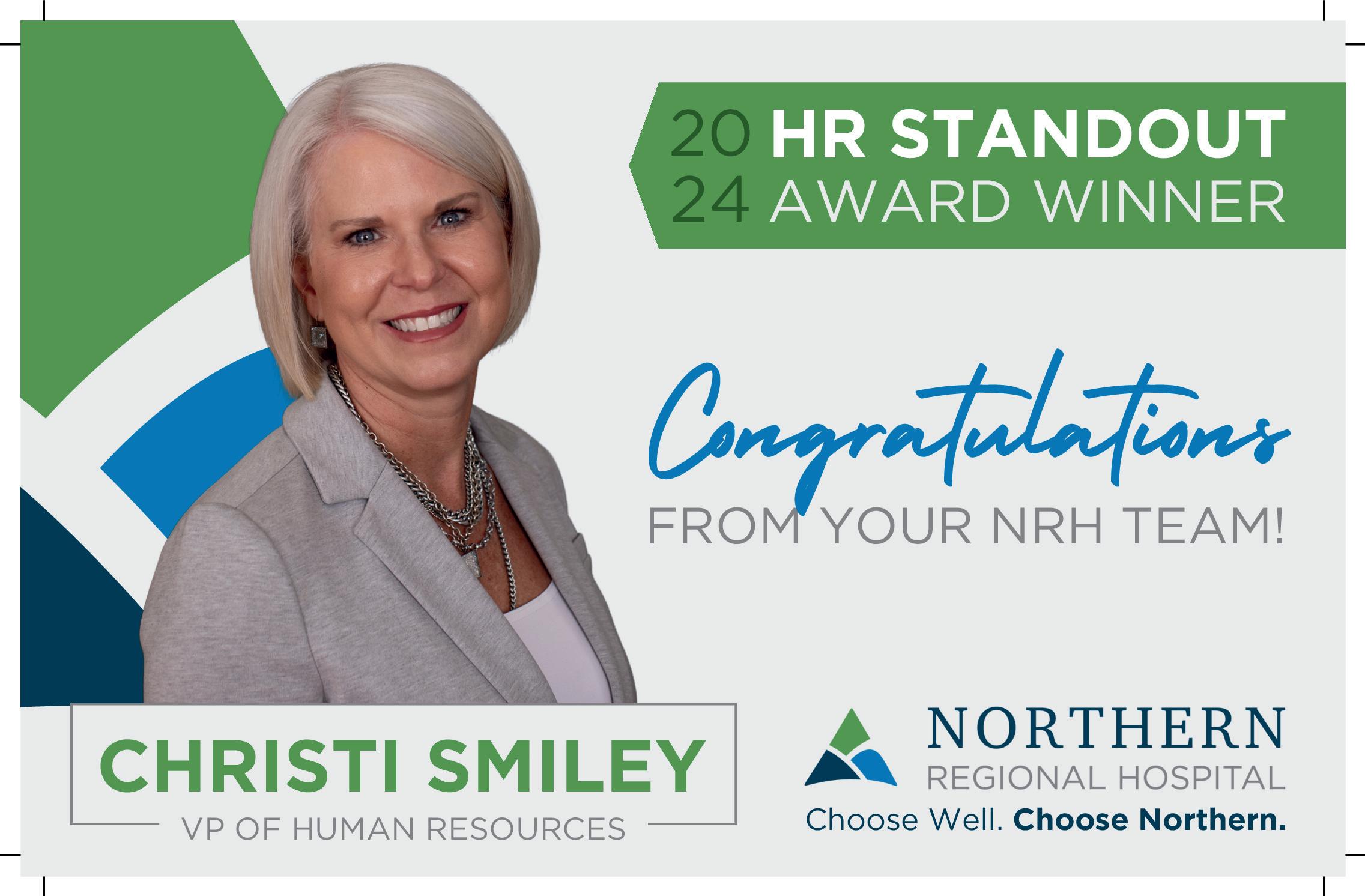




Demand for orthopedic care is growing as North Carolina’s population grows and shifts slightly older. Providers are using technology, expansions and cooperation to meet it.
Medical education provider American Academy of Orthopaedic Surgeons expects knee-replacement surgeries to increase a staggering 180% nationwide by 2030. That increased demand is already being seen in North Carolina.
Wayne McFatter, executive director of surgical services at FirstHealth of the Carolinas, estimates the healthcare system’s surgeons perform about 5,000 orthopedic procedures across its 15-county region in central North Carolina, which is home to a large population of retirees, each year.
“This is an extremely busy practice area for us, and we’re strategically located in an area where we’re just far enough away from the big centers like UNC, Duke and Charlotte and even Greensboro,” he says. “We want to treat patients in our community, and at the same time, they want to stay close
to home, experience a fast recovery and save money.”
Orthopedic practices statewide are keeping care and costs top of mind as a fast-paced system of ever-changing laws, policies and insurance reimbursements reconfigure the healthcare landscape. As they strive to keep pace, their leaders are implementing unique ways to ensure quality care is available for their patients.
Pushed by a growing population that’s led by aging baby boomers and Gen-Xers, demand for orthopedic surgery is rising. American Joint Replacement Registry’s database surpassed 4 million hip and knee arthroplasty procedures in March 2024, a milestone announced in the 11th edition of its annual report. Published by the American Academy
of Orthopaedic Surgeons Registry Program, the 2024 report analyzed more than 3.7 million procedures — 18% more than the year prior — and reflected data submitted between 2012 and 2023 from nearly 1,500 institutions nationwide.
There are about 1,200 orthopedic surgeons practicing in North Carolina, according to North Carolina Medical Society and North Carolina Orthopaedic Association. Dr. Michael Marushack, NCOA’s immediate past president and an orthopedic surgeon in Wilmington, started his practice with a small group of Brunswick County practitioners in 1999. He says the number of orthopedic surgeons in the state has remained consistent the past few years. “The patient population is changing, and more and more people need to see orthopedists,” he says. “Not all procedures involve major orthopedic issues like broken hips


















and arthritis. Some of them are ankle sprains and things that could be taken care of by a nurse practitioner or a physician assistant who has expertise in that area.”
One way to improve outcomes and cut costs is robotic knee-replacement surgery. It allows surgeons to better tailor implants to a patient’s musculoskeletal anatomy. McFatter says FirstHealth has robotic knee-replacement surgery systems at its Moore Regional Hospital in Pinehurst and satellite locations in Hoke and Richmond counties. They’ve been recognized as one of America’s 100 Best Hospitals for orthopedic surgery by Healthgrades, a leading resource that consumers use when searching for a doctor or hospital. Moore Regional also earned the 2025 Orthopaedic Surgery Excellence award and ranked as a five-star recipient for total knee replacement for 2025 and hip-fracture treatment for four years in a row.
Robotic surgeries perform life-impacting surgeries in less time, less invasively and with greater precision than traditional approaches, creating better outcomes, especially for older patients. Orthopedic care providers are leveraging technology in other ways. The HURT! app, for example, quickly connects users to an orthopedic expert, who is ready to discuss symptoms and receive patient-taken taken photos, providing guidance on next steps, including helping a patient decide if a trip to the emergency room, many times a costly move, is warranted.
For some physicians, playing a leadership role in their practice is important. But it often requires assembling an ever-expanding set of skills to address healthcare’s business
end. Charlotte spine surgeon Dr. Leo Spector, sparked by a desire to sharpen his management acumen, enrolled in Duke University Fuqua School of Business’ MBA program in 2020. He became Charlotte-based OrthoCarolina’s CEO in January 2024. It has proved an ideal move for him, and he believes it has been positive for his patients, too. “In my dual role as a physician and CEO, I bring a unique perspective to both patient care and organizational strategy,” he says. “I can see firsthand the individual patient’s needs, how to best support our teammates and the larger strategic view of our organization.”
Physician-owned EmergeOrtho and OrthoCarolina are the two largest orthopedic practices in North Carolina. Both offer numerous office locations and specialty clinics across the state. OrthoCarolina was born out of two orthopedic practice groups — Charlotte Orthopedic Specialists, founded in 1922 by Dr. John Stuart Gaul, and Miller Orthopedic Clinic, founded by Dr. Oscar Lee Miller. The two doctors worked together, managing and treating patients suffering from polio until Dr. Jonas Salk developed a vaccine in the early 1950s. They shared their knowledge



and techniques with other physicians. That collaborative spirit continued until their practices merged in 2005.
Spector says OrthoCarolina has about 130 physician shareholders, more than 470 medical providers and 1,700 employees. “We have more than 40 orthopedic practices from Winston-Salem to Bennettsville, South Carolina, and as far west as Boone,” he says.
EmergeOrtho formed when five orthopedic practices — Ortho Wilmington, Triangle Orthopedic Associates, Greensboro Orthopedics, Carolina Orthopedic Specialists and Blue Ridge Bone Joint — came together between 2016 and 2019. “Our easternmost point is the Morehead City area, and we go west all the way through Asheville to Clyde and Brevard,” says EmergeOrtho CEO Allison Farmer. “We have 63 locations and 170 physicians.”
Farmer says the trend of smaller practices merging into larger ones won’t reverse anytime soon. “The continued burdens on a practice, from purchasing equipment to staffing, electronic medical recordkeeping and payer negotiation, reaps larger rewards if we operate on a larger scale,” she says.







American Academy of Orthopedic Surgeons’ 2024 report also noted ambulatory surgery centers’ continued importance to delivering total joint arthroplasty care; they handled 62,110 procedural cases last year. That’s a 70% increase since 2022. But building more to alleviate growing demand for orthopedic care isn’t as easy as choosing a site, putting up bricks and mortar, and outfitting with technology and staff. There are rules to follow and needs to meet.
Placement and operation of ambulatory surgery centers, which specialize in same-day procedures, are controlled by government regulations. When North Carolina expanded Medicaid in 2023, significant changes were made to the state’s Certificate of Need law, the regulatory mechanism for approving major capital expenditures and projects for certain healthcare locations. It aims to control costs by preventing duplicate services and determining if proposed projects meet a community’s needs. North Carolina is one of 35 states that have a CON law.
Tucked inside the Medicaid expansion were exemptions to CON law. One was for “qualified urban
ambulatory surgical facilities” in counties with a population greater than 125,000 people. MRI scanners in urban communities were made exempt from review, and thresholds for establishing diagnostic centers and acquisition of replacement equipment were relaxed. “We are thrilled that these reforms open opportunities for ambulatory surgery centers and MRI growth, and we hope further relief will continue to be prioritized,” Farmer says. “However, we’re continuously burdened with the decrease in Medicare reimbursement from Washington.”
Many small communities, especially those in rural regions, are home to more residents using Medicaid and Medicare than private insurance. Farmer says that creates a challenging business environment for practices. But a buzz is being created around an initiative that address those and other financial concerns. In 2023, EmergeOrtho and OrthoCarolina announced they were joining forces with administrative partner SCA Health to create HiVE of the Carolinas. HiVE — Health Innovation Value Enterprise — uses a framework of data analytics, patient-engagement technology, advanced-care models and
evidence-based protocols to identify areas for improvement.
Spector says HiVE’s goal is to shift the system to a point where providers are rewarded for the quality of care they deliver and positive outcomes rather than traditional fee-for-service medicine. He’s quick to point out that the collaboration does not signal a merger between EmergeOrtho and OrthoCarolina. “Rather, we are collaborating … to leverage our collective strengths, expertise and resources while maintaining our individual brand identities to provide a higher standard of orthopedic care,” he says. “Together, our two independent groups comprise just over 50% of the orthopedic surgeons in North Carolina, and we take care of approximately 50% of musculoskeletal spend, creating a tremendous opportunity to deliver value to our patients throughout the state.”
Spector hopes other healthcare organizations replicate HiVE. “We aspire to be a catalyst for positive change in healthcare by fostering collaboration, ultimately leading to more patient centered, cost effective and value based healthcare models,” he says. ■
— Teri Saylor is a freelance writer in Raleigh.

FirstHealth of the Carolinas has expanded knee-replacement surgery options for its patients through the introduction of a robotics-assisted surgical system at Moore Regional Hospital – Hoke.


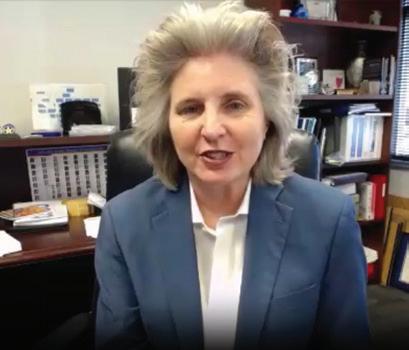





Teamwork makes the dream work. That popular saying applies to sports and business. Industry groups and organizations bring together their members, uniting their voices to solve challenges and push forward agendas. Business North Carolina recently gathered a group of leaders and representatives of some of the state’s most-prominent ones to discuss how their collective efforts help them and North Carolina as a whole, including navigating the recent election results, addressing workforce needs and supporting the ongoing Hurricane Helene response. The conversation was moderated by Publisher Ben Kinney. The transcript was edited for brevity and clarity.


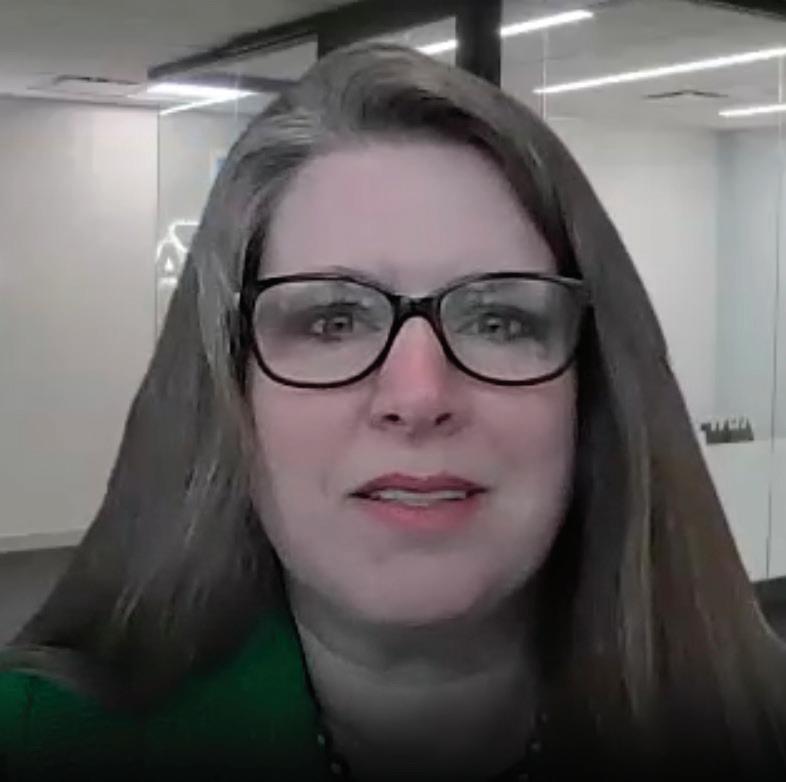









The discussion was sponsored by:
•Electricities of North Carolina
•North Carolina Nurses Association
•State Employees Association of North Carolina
•NC Rural Center
GRANT: Smith Anderson represents the North Carolina Economic Development Association. It has more than 950 members, the most it has ever had. About half are practitioners — senior developers, community members and tangential entities. NCEDA’s advocacy initiative has increased during the past five years. Its legislative agenda is sorted into three buckets: product development, site development and workforce
readiness. We also work on North Carolina’s competitive posture in relation to other states, and that includes taxes, infrastructure and more.
The state can play a larger role in economic development. That has become more apparent as other states, especially those in direct competition for projects, have invested large sums of money in infrastructure and workforce. One issue underlined by our legislative survey this year is childcare. We had a couple members mention it in the past, but it lacked consensus across our membership. We look forward to seeing proposals for feasible solutions.
Our members’ biggest priority is state investment in infrastructure and sites. We have been encouraging the legislature to invest in product development. Get some sites ready. North Carolina has had tremendous economic development success, and those wins have depleted business-ready sites. Having them is

significant. Getting the legislature to identify and invest in sites has been significant. Economic Development Partnership of North Carolina did a megasite study, which identified seven sites. There are nearly 15 properties, all less than 1,000 acres, in the Selectsite Readiness Program.
ECKEL: I worked for Corning for 14 years, when fiber optics was going strong. We had to continually expand capacity. At the end of the day, incentives matter. But infrastructure and site readiness will make a deal. If I was told here’s your site and you develop it, that would be big. That is such an important investment. It’s the build it and they will come mentality.
WOODIE: We look at North Carolina through an economic development lens. That’s our mindset. NC Rural’s mission is to improve communities and the quality of life for the people who call them home. We have a broad network — local







government, economic development, education, healthcare, nonprofits, faith community and regional institutions. We must address issues and challenges through regional frameworks and increase our ability to work through them.
North Carolina has had success with megasites. They put a lot of our rural workforce closer to more employment opportunities, including ones associated with supply chains that ripple from those successes. While some rural counties will never be proximate to a megasite, they still have economic development potential. Realizing it requires state support, developing sites and buildings that can lead to local investment and job creation.
We support megasite efforts and the diversification brought by Selectsites. One size does not fit all when it comes to economic development. State policy must reflect that and be poised to invest in small and isolated places. It’s vital that they, too, can attract investment and jobs.
GRANT: Workforce is vital to economic development success. The community college system has been a tremendous ally in that space. It’s new funding model — Propel NC — is more efficient, responsive and flexible to future workforce demands. Our members strongly support it. They want to continue to explore apprenticeship opportunities and K-12 programs. It’s important to work side by side.
GORDON: North Carolina Nurses Association represents and advocates for registered nurses in the state. They number more than160,000, the largest healthcare workforce component by a wide margin. But even that isn’t enough to meet healthcare needs.
Workforce is No. 1 in all our healthcare conversations. We must expand the pipeline for new registered nurses along with strengthening workplace safety and protection of our current workforce.
We’re not going to produce our way out of the current nursing shortage — about 12,500 by 2033. So, we’re pursuing a multifaceted approach.
Nursing has had many workforce shortages over the years. What makes this one unique is North Carolina’s numbers look different compared to other parts of the country. Not every place is experiencing the shortage or facing the severity of projections that we are. It’s important that we investigate why, not only from the healthcare workforce standpoint but also what it means to attracting and retaining businesses and families.
Last year’s North Carolina Institute of Medicine report has many strong recommendations. The healthcare community’s challenge is figuring out which is tackled first. We’re digesting the nursing workforce recommendations. NCNA has opinions to offer, but it’s a big conversation that requires attention in many different places. Workforce has become a conversation for every industry and profession, so we run the risk of becoming background noise when everyone is talking about it.
WOODIE: There are severe shortages of providers in almost any healthcare category that you want to discuss. We need more boots on the ground, and we need to get the most from every pair. One way to do that is modernizing and expanding the scope of advanced practice nurses, who are trained to take on more responsibility but restricted or prohibited from doing so by state regulations. We strongly support that move for North Carolina. More than half of the states have traveled that road, and none have turned back.
WATKINS: State government’s job vacancy rate has hovered between 23% and 25% since the COVID-19 pandemic. It has been more than 60% at some prisons. That is astounding. State government touches almost every industry, so it needs to be able to respond to the needs of residents and businesses. Hurricane Helene drove
that point home. While every workforce is important, state government workers have it a bit different when disaster strikes. They’re the ones asked to save lives then rebuild them.
State employees are doing a yeoman’s job responding to Hurricane Helene. It was a huge disaster and different than any that the state has dealt with previously. It wasn’t just a hurricane. There were so many other things to deal with. State government workers were asked to do unpleasant things well beyond their job descriptions. We’ll see the mental health effects from that for a long time.
Mental health needs to be a priority across North Carolina, because at the end of the day, it affects workforce, too. You can’t build a house with a broken arm, but you can’t do anything if your mind is broken. Mental health has to be a bigger priority.
WOODIE: We administer the State Small Business Credit Initiative, which is a federal program funded by the U.S. Treasury. We’ve built a real capital base. We operate several programs in partnership with banks, credit unions, community development finance institutions and fund managers on the equity side. They reach small business owners regardless of where they are in the business lifecycle. They support capital access for those small businesses, filling in some of the identified gaps. It was designed to be evergreen. It has given us opportunity as time has gone on.
We have a working group within our board of directors that’s investigating some new lines of small business financing, perhaps even housing or project financing. It’s a reflection of what we hear in our advocacy efforts and will allow us to address other gaps in capitalaccess markets and make a greater impact on the communities that we serve.
As a state-level organization that’s focused on rural regions, we’re unique on the national level. We’re a private nonprofit. There are other nonprofits, but they’re based in state government or at a university, often the state’s land grant institution. We have greater flexibility in how we do things, the experiments we try and programs we implement. We offer a host of different standing programs, all relevant to rural residents and leaders. We increasingly are looking at exporting that work to others that are focused on rural regions, enabling them to take what we have learned, along with some of our approaches, and implement their own versions, whether at the state or regional level.
Our faith work has led us to partner with rural churches, offering programs that help their congregations tackle local economic and community development issues. Bringing a congregation to bear on some of these community issues, then exporting that approach nationally, is a new experiment for us. We’re looking forward to seeing where it takes us.
Association of North Carolina represents active and retired state employees from every agency, university and community college. We’re in public schools, too.
Our work extends to residents who aren’t a state employee or related to one. The state’s economic engine depends on its infrastructure, and state employees are that infrastructure.
There are many issues that concern us. Healthcare has consumed much of our group’s time, because its cost to the economy is out of control.
ECKEL: We all have issues that we must address, either killing them or making them happen. But the really effective organizations are always advocating, and that has different meanings. It’s not only advocating for a piece of policy. It’s advocating for local change. Sometimes that’s change to soften the ground for something else. So, many people are moving into action. People are ready to tell their story. This will be an interesting
and fun year for people who engage in policy, public affairs and similar types of work.
WATKINS: The state’s current fiscal situation is my biggest worry. About half a billion dollars were approved for Opportunity Scholarships just prior to Hurricane Helene’s arrival. Hurricane recovery’s price tag is inching toward $60 billion. Revenue from 27 western counties is pretty much decimated for the second quarter of the state’s fiscal year, and it probably won’t be any better in the third quarter. There are discussions at the federal level about pushing costs down to state and local governments. That’s a big question. And Medicaid expansion, which was passed in 2023, is overlaying all of it.
No one could have foreseen this series of events happening in step with big




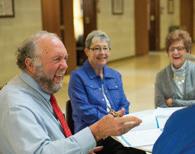







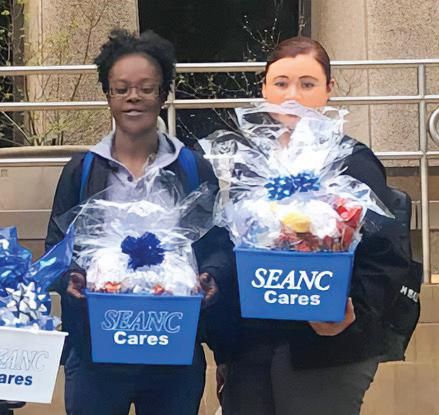







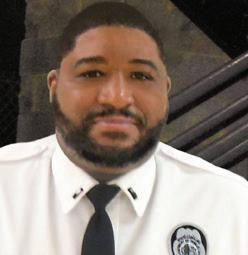


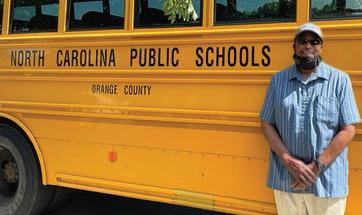



































policy changes. I’ve never seen anything like it. It’s a perfect storm. It will force us all to focus. Everyone will have to show why whatever they’re advocating for is a priority in what will be a limited pot of money.
WOODIE: We’re gearing up for a new legislative session and new elected leadership on the state and federal levels. This past fall was dedicated to engaging as much of our rural network as possible, determining our priorities.
We held 15 listening sessions across the state. Every rural resident was no more than a 45-minute drive from one. We heard a lot. Our rural poll had its largest response. It’s an informal process that lets us gauge the thoughts of people on the ground and the leaders that we work with in our network. We also heard a lot of consistency.
There were seven issues of greatest concern; more than 50% of respondents listed them. None were a surprise. But
what was surprising is that there’s seven. That’s more than we’ve seen in recent polls. But they make a lot of sense.
Affordable housing was named by 72% of respondents. Access to affordable childcare, which we see as a workforcedevelopment challenge, public education funding, opioid drug abuse, availability of qualified workforce, high cost of doing business and effective local leadership were also listed. Our policy agenda will reflect those concerns. That’s a lot to keep up with.
Our state doesn’t face many small challenges; everything is high magnitude. That was true before Hurricane Helene and remains that way today. It isn’t an exaggeration to say we never have seen a storm bring the same devastating impact, and we’ve had some bad ones in eastern North Carolina.
I recently met with the North Carolina and South Carolina transportation secretaries. South Carolina expects
repairs to Helene-damaged roads and bridges will cost $50 million. North Carolina’s estimate for similar work is $5 billion. This is a problem. How are we going to prioritize things?
North Carolina has a well-defined system of emergency management and disaster recovery. It’s a process, and it’s expanding. It’s bureaucratic. It doesn’t always work well, including for those it’s intended to help. That’s concerning.
We want to think that we can build back smarter, in a way that’s more resilient, so that next storm doesn’t have the same effects as Helene. That’s incredibly challenging, even without considering the other issues on the table that can’t be ignored. Each of our seven areas of greatest concern, for example, could potentially carry a big price tag. We must decide how to fund everything on the table.
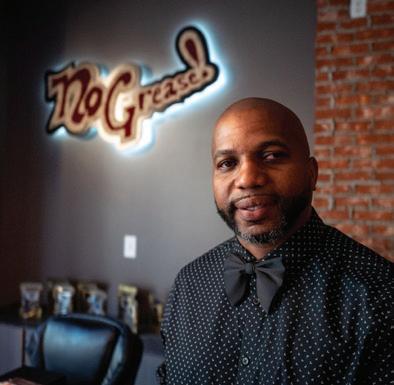


The NC Rural Center, our State Small Business Credit Initiative and our a liate CornerSquare Community Capital provide advocacy, support and capital for your small businesses. Visit our websites to learn more about how we can work together.

Let us help you grow no ma er where you live. www.cornersquare.org

GRANT: North Carolina would benefit from greater certainty from Congress in regards to its commitment to hurricane recovery. Will that push a budget timeline out further? State legislative leadership has said only Congress can pick up a tab this big. Having healthy reserves was significant. Sen. Phil Berger said we had a very rainy day.
But that’s not to say we won’t be hit with a hurricane or some other catastrophe again in the near future. If we had this conversation in isolation, then people could feel good about every one of the initiatives mentioned. I’m not envious of those who must weigh each against the others to decide their worth. That’s a difficult position.
GORDON: State funding would help some of our workforce priorities. But we have other requests that wouldn’t cost the legislature a dime. Some would save the state money. Better use of advanced practice nurses, for example, continues to increase in importance, both in
regards to the state’s ongoing healthcare needs and those exacerbated by Helene. We believe legislators should remove regulatory barriers for these advanced practice nurses, so they can do what they’ve been trained to do. Doing that will increase healthcare access statewide but especially in rural communities. It also will cut costs, returning money to the state coffers from state health plan savings for Medicaid. It’s a simple money-saving move that about half the country has already undertaken. It’s already underway in western North Carolina, where emergency waivers were enacted. Let’s make those permanent and move forward.
ECKEL: Everybody basically sat on their hands from July through November, wondering what to do. But they weren’t doing nothing. They were gaming out different scenarios. Now we have certainty at the state and federal levels. People are moving into action. They want to mobilize themselves and begin to
understand how they can make an impact. How do they hit their target? Many times they’re looking for us to develop that plan and the needed content.
We’re at a big moment. A lot of leadership will be needed from our local, state and federal officials to address hurricane recovery in western North Carolina, population changes statewide and other issues. I’m a positive person, so it’s a moment of opportunity to continue to define who we are as North Carolina. We do things well, and that’s what I’m excited about. ■



For four generations, the leadership of Braswell Family Farms has leaned on their faith. Their operation is sizeable - the family-owned business employs over 225 people at their Nashville,N.C., headquarters and beyond to produce over 720 million eggs each year –but the Braswell family knows they are simply stewards of a great blessing.
Over the last 81 years, the Braswell family has held fast to the words of 1 Corinthians 10:31,“whether you eat or drink, or whatever you do, do all to the glory of God.” They have a deep respect for their role in the community. They know the responsibility of a farmer is one you cannot take lightly and they know the importance of not only feeding the body, but also the soul.
Braswell Family Farms was founded in 1943 when brothers J.M. and E.G Braswell purchased the historic Boddie Mill in Nashville. There, the pair produced corn meal for the community local farmers and neighbors — mindful to close every Sunday for rest and worship. In the 1950s, the second generation of Braswells joined the business and, like each subsequent generation, took steps to grow the operation. They began selling young hens to egg producers and contracting with local farmers to keep hens.

The business grew steadily over those early years and, in 1969, they built a state-of-the-art feed mill before purchasing and expanding Red Hill Egg Farm. In the 1970s. Then, in 1989, Braswell’s third-generation leader, Ronald “Scott” Braswell Jr., saw a new opportunity. He took a chance as a founding member of the Eggland’s Best franchisea leap of faith that nutritionally enhanced eggs were the way of the future.
Trey with his maternal grandfather, Dick Parker. Mr. Parker also worked in the family business raising pullets.
Today, the company is led by a fourth generation in Ronald “Trey” Braswell III who took over from his father in 2008. You can still see the stamp of each previous generation’s impact on Braswell Family Farms. In 2017, Braswell Foods officially rebranded to Braswell Family Farms under Trey’s leadership. From Scott’s leap of faith in 1989 to today, Braswell Family Farms has become the second largest Eggland’s Best and Land O’ Lakes franchisee in the United States producing specialty eggs of nearly all shapes and sizes: cage free, free range, pasture raised and organic.







Braswell Family Farms
104 E. Cross St.
Nashville, NC 27856
252-459-2143
braswellfamilyfarms.com
Braswell Family Farms also produces their own brand of eggs, Natural Choice, which continues to grow each year.
e feed mill also remains a core tenant of the business providing feed for chicken and hog farmers in North Carolina and Virginia. e company is just as focused on quality for their chicken feed as they are for the eggs they sell. A er all, it’s all connected. ey work with nutritionists to ensure the feed they produce is the best it can be, and they produce di erent formulas for di erent stages of a hen’s life.
“It’s just like with people; our diet adjusts with the stage of our life, and it’s the same with animals,” says Braswell Family Farms Communications and Engagement Specialist Brittany Armbruster. “It changes based on the time of year and how old they are.”
e growth of Braswell Family Farms over four generations has had a rippling impact in Nashville and beyond. e Braswell family is committed to producing the highest quality eggs and feed as an act of service to their community and as a vessel to share God’s goodness. is manifests in a variety of ways in locales near and far.
For the last three years, Braswell Family Farms has had the opportunity to donate eggs for the White House Easter Egg Roll held in Washington D.C. Part of the commitment is providing the eggs hardboiled and dyed. Since 2022, Braswell Family Farms has donated, cooked and dyed nearly 100,000 for the annual event.
“It’s fun and logistically there’s a lot to coordinate but it’s a great opportunity and we’re honored to have done it,” Armbruster says.
Closer to home, Braswell Family Farms is hosting its Second Annual New Year’s Eve Egg Drop this year. e company aimed to create a safe and joyful New Year’s Eve celebration for families to make meaningful memories and come together as a community. In its inaugural year, nearly 4,000 people were able to enjoy the event. e event is free to the public and proceeds from a 50/50 ra e donates to local causes. is year, the proceeds will support recovery from Hurricane Helene in Western North Carolina.
Finally, the organization is committed to giving as an act of worship. ey annually support causes including Samaritan’s Purse, American Cancer Society’s Relay for Life, Baptist Children’s Homes of NC and Appalachia Service Project, among others.
In October 2024, Braswell Family Farms experienced the loss of Ronald “Scott” Braswell Jr., the third generation to run the business. While his son, Ronald “Trey” Braswell III, has been leading the company for the last few years, Armbruster says Scott Braswell was still involved in the business and was known as a warm, kind presence to employees.
“He was a part of the business and has been here most of his life,” she says. “ ere are people who have known him and have worked directly under him for 20 to 30 years.”
Scott became president of the company in 1991 a er his father passed away. Under Scott’s leadership, Braswell Family Farms continued to expand to the forefront of the industry. He purchased Glenwood Farms in 1997, which allowed the company access to markets in Virginia, Maryland, Delaware, and New Jersey. Forward-thinking led Scott to move the company away from leasing packing facilities and toward owning the process from start to nish. e company’s processing facility, known as Carolina Egg, was completed in 1999 and is located next to Scott’s rst hen houses at Red Hills.
But in speaking with those who knew him best, it was clear that Scott Braswell’s faith led the way. He was known for his quiet, philanthropic approach to life. He was known to randomly pay for folks’ dinners while out in Nashville - without saying a word. He o en helped employees when they needed it and was passionate about creating quality jobs for the community.
“He really believed in what he did and the mission of Braswell Family Farms,” Armbruster says.“We produce eggs that feed America. at was never lost on him. He would say, ‘ at’s a real privilege to be able to do that.’”


Two new leaders atop state government enables a fresh start for addressing three prime problem areas.

By Ray Gronberg
After a long stretch of stability, North Carolina’s political scene is undergoing some big changes in 2025, with a new governor and new House speaker succeeding incumbents who’d been in place for almost a decade.
Incoming Gov. Josh Stein is taking over from Roy Cooper, who was term-limited a er eight years in o ce, and incoming House Speaker Destin Hall replaces Tim Moore, who led his chamber of the General Assembly since 2015.
At least initially, any di erences are likely to be stylistic. Stein, a Democrat, succeeded Cooper as attorney general in 2017 a er serving as a state senator for eight years. Hall, a Republican, had been Moore’s Rules committee chair since 2020. He quips the job is “like being a speaker on training wheels” with “all of the work of the speaker but none of the glory.”
Still, the changes are likely to at least bend the state government’s direction, even if Stein and Hall agree with their respective predecessors far more than they disagree.
Elsewhere in the capital, there’s continuity. Senate President Pro Tem Phil Berger is back for another term at the head of the

Senate’s Republican supermajority, a post he’s held since 2011. e Rockingham County lawyer has followed the paradigm for his o ce established by the late Marc Basnight, a Democrat who had led the Senate during the previous 16 years.
Berger is perhaps North Carolina’s most powerful elected o cial. His 2022 ip on the merits of expanding Medicaid insurance for low-income residents, for example, went a long way toward ensuring Cooper’s longtime top legislative priority became law the following year.
e Democratic leaders are House Minority Leader Robert Reives, a Chatham County lawyer, and Senate counterpart Sydney Batch. In a post- anksgiving coup, Batch ousted fellow Wake County lawmaker Dan Blue, who has served in the legislature since 1981, minus a four-year hiatus.
Party labels aside, the leaders agree that three topics are likely to command the majority of legislators’ attention when the new session starts on Jan. 8: Hurricane recovery, housing and childcare. While those issues would seem to involve nonpartisan matters, it’s common for divisive policies to enter the fray. at was the case in December, when a hurricane relief bill morphed into a successful Republican e ort to wrest appointment powers from incoming Democratic Gov. Stein.
State lawmakers have earmarked about $1 billion in state money to help western North Carolina cope with Hurricane Helene. O cials are waiting on Congress to come through with massive federal aid.

“ is is going to be probably a $50 billion problem, and that’s the kind of problem that the federal government is going to have to help fund,” says Hall, a lawyer from Lenoir in Caldwell County.
Cooper asked Congress for a $25.6 billion aid package, including $17.6 billion that wouldn’t otherwise ow through established programs at agencies such as FEMA or the Small Business Administration. As of mid-December, approval remained pending, though state and federal leaders were hopeful that Congress would provide major aid by Christmas.
e recovery cost exceeds Cooper’s request signi cantly. State budget director Kristin Walker has warned that it’s a $53.6 billion problem — and that even support of that magnitude would not make western North Carolina whole. She forecasts about $17.8 billion in additional unmet needs.
“Some of it is gone and is gone forever,” she says, referring to homes, businesses and other resources destroyed in September. A tiny fraction of properties in the West region have ood insurance, leaving many owners reliant on government and nonpro t support for rebuilding assistance.
Money aside, there are questions about how the state should address the recovery. Many Republicans believe former Gov. Cooper’s administration botched the a ermath of 2016’s Hurricane Matthew and 2018’s Hurricane Florence. ey point to the home replacements nanced with money from the U.S. Department of Housing and Urban Development.
Cooper tasked the N.C. O ce of Recovery and Resiliency with handling that work. Years later, 1,454 families displaced by the storms are waiting for the completion of promised new homes
Hall suggests o cials need to rethink how the state handles storm recovery. Like Berger, he wants North Carolina to look to South Carolina, Florida and others for examples of e ectiveness.
“I’m a big believer in copying what other folks have done if it’s successful, so I think that’s where you start,” Berger says.
Reives and other Democrats emphasize the need to not just respond to Helene, but to seize an opportunity to harden the state’s infrastructure and communities against damage from future storms.
“We’ve got to revamp the way that we do it [so] it’s not about just throwing money at problems,” Reives says. “It’s not a matter of if it’s going to happen again, it’s a matter of when. And it’s not a matter of is it going to be ferocious; it’s going to be.”
State leaders have to make sure that “for every dollar we invest, that dollar actually gets to the people who are hurting and doesn’t become 10 cents on the dollar,” Reives adds.
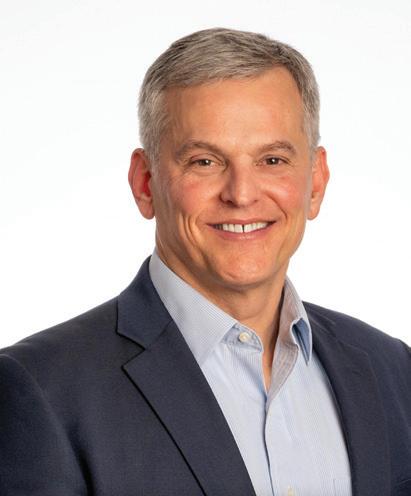
First

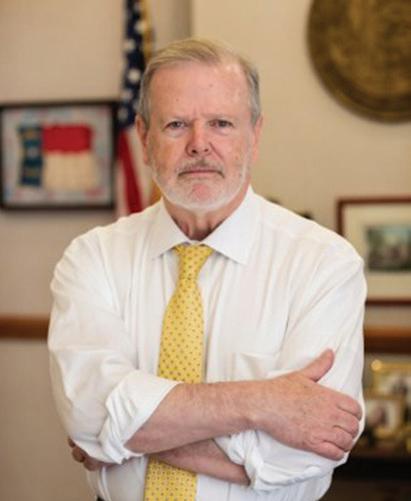
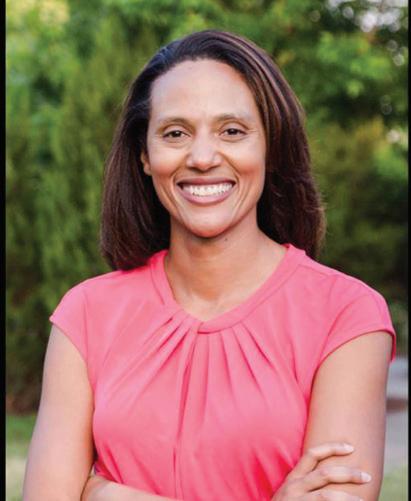
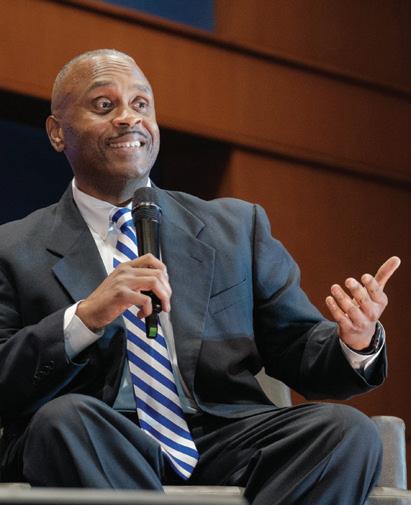
First

North Carolina isn’t producing enough new housing, not just to replace the undetermined numberof homes destroyed by Hurricane Helene, but in the state’s most economically prosperous markets. In Charlotte alone, there’s a need for 25,000 additional housing units for lower-income residents, city leaders say.
The problem is there’s a lack of consensus on how to promote more building of homes and apartments for those priced out of the state’s robust housing market. Star line, the progressive-leaning advocacy group Carolina Forward urged lawmakers to provide state backing for more project development loans to reduce risk for investors and developers. The group is also promoting streamlining zoning regulations to enable more housing targeted to middle-income workers.

A majority of lawmakers have yet to fully embrace those positions. Everyone has ideas about housing, however. Hall argues for eliminating delays in building permits; Reives is skeptical of deregulation that might limit local input. Berger sees a need for a balancing act, with state intervention reserved mainly for curbing regulatory abuses.
“It’s just something I don’t know that there’s a one-size-fits-all solution,” Berger says.
“It’s an issue that is statewide, really, but it really shows itself differently in different parts of the state,” Hall adds. “And I think that’s been part of the problem with coming up [with] a solution.”
Republicans’ favored approach has been to establish “shot clock” deadlines for city and county governments to act on builders’ permit requests. The House is also likely to consider what Hall terms “statewide inspectors,” or some other attempt with local government to speed the pace from planning to completion.
“That’s one thing that I think we need to pinpoint and deal with very quickly,” Hall says. “You have folks who are ready to build. They’ve got the capital, they’ve got contractors ready to roll [and] start building, but we’re waiting on a government bureaucrat to come out and inspect and issue the permit.”
That begs the question whether cities and counties are allowing enough development, even before permits are handed out. Many real estate industry executives say officials in the state’s fastgrowing areas are putting up too many hurdles, largely in response to resident pressure for slower growth. Berger has been heavily involved in a prolonged, publicized debate over development density in the Summerfield community near Greensboro. He says state and local governments need to understand that it’s a mutual balancing act.
“Two things come to mind,” he said. “One is we need to be real careful if we’re going to step in. And two, the local governments need to be real careful about how much they regulate.”
Berger, Hall and Reives agree with the NC Chamber and other groups that argue the limited availability and high cost of slots for children is keeping too many parents out of the workforce. There’s a dispute over strategy, however. Berger argues the solution isn’t just about shoveling money into the existing system of childcare centers.
“When I first got elected to my position, my thought was, childcare is something that’s best left to mom and dad,” Berger says. “Things have changed significantly since then. To me, the way we need to look at this is, it’s a problem for mom and dad, it’s a problem for the employer and, increasingly, it’s a problem for the state. And so I think whatever you do, you’ve got to have all three of those interest groups involved in whatever the solution is going to be. It can’t be something that’s just the government creating a program and funding the program.”
Reives agrees that officials and advocates need to “look first for structural changes” and ways to “help people help themselves.”
The solution most likely lies in facilitating more public-practice partnerships that expand access at affordable rates, he says.
That means “finding ways to empower maybe local chambers of commerce or local nonprofits of some sort to assist in providing childcare, or maybe a larger employer to create a capacity, not just for their employees, but for other folks to participate,” Berger says.
“I do think one thing is clear,” he adds. “We’re going to have to spend more money at the state level in order to make any of those things work.” ■




When a Helene-type disaster strikes, Boone-based Samaritan’s Purse moves with a purpose.
By Shannon Cuthrell
At any given time or place in the world, 257,000plus Samaritan’s Purse volunteers are busy distributing food bags, rebuilding homes after hurricanes, packing toy boxes for needy children, performing heart surgeries and treating airstrike victims in war-torn countries. It’s a small army that outnumbers the lineup of active-duty troops and reservists in the Marine Corps.
As in the military, readiness and adaptability are everyday business for Samaritan’s Purse. Drawing more than $1 billion in contributions and grants annually, the 54-yearold Christian humanitarian organization has steadily built up a sizable resource pool: 24 aircraft, o ces in 15 developing countries, ve emergency eld hospitals, 2,318 employees in the U.S., and thousands of additional people on call who are trained to deploy at a moment’s notice.
More than 1,950 employees work in North Carolina across its Boone headquarters, Wilkesboro warehouse, Charlotte processing center and Greensboro airlift site, where crews manage its Boeing 757 and Douglas DC-8 cargo planes.
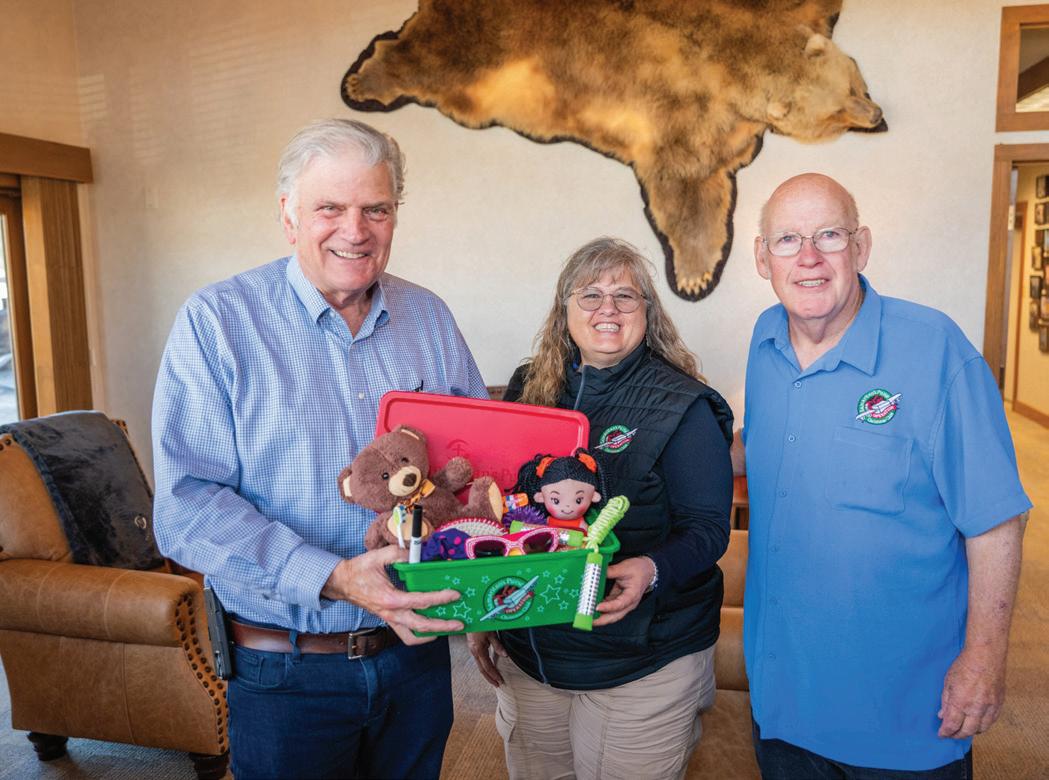
It’s hard to plan what we’re going to do tomorrow because it can change depending on the news that night
“It’s hard to plan what we’re going to do tomorrow because it can change depending on the news that night,” says Franklin Graham, 72, the longtime president and CEO. “We can change the direction of a big part of our ministry overnight if we need to.”
Such a day came in on Sept. 27 when Hurricane Helene drowned western North Carolina’s rivers, streets, highways, homes and tourist gems. It was a 1,000-year ood of biblical proportions, killing 103 people and racking up $50 billion-plus in damage, including more than 100 sta members’ homes.
In response, the organization quickly mobilized about 33,000 volunteers in North Carolina and set up bases in Asheville, Burnsville and Boone. Another 4,660 people have supported recovery e orts in Florida and Georgia.
Graham, the son of legendary preacher Billy Graham, has never seen such a storm in his native state. “Just follow the rivers. On both sides, there’s more need than you can shake a stick at. Everywhere, you’ll nd a place to help,” he says.
“When a person’s home has been destroyed or damaged, they don’t know what to do. ey just stand there, almost in a daze. And when you bring in an army of volunteers to help clean up the home, they suddenly begin to see daylight.”
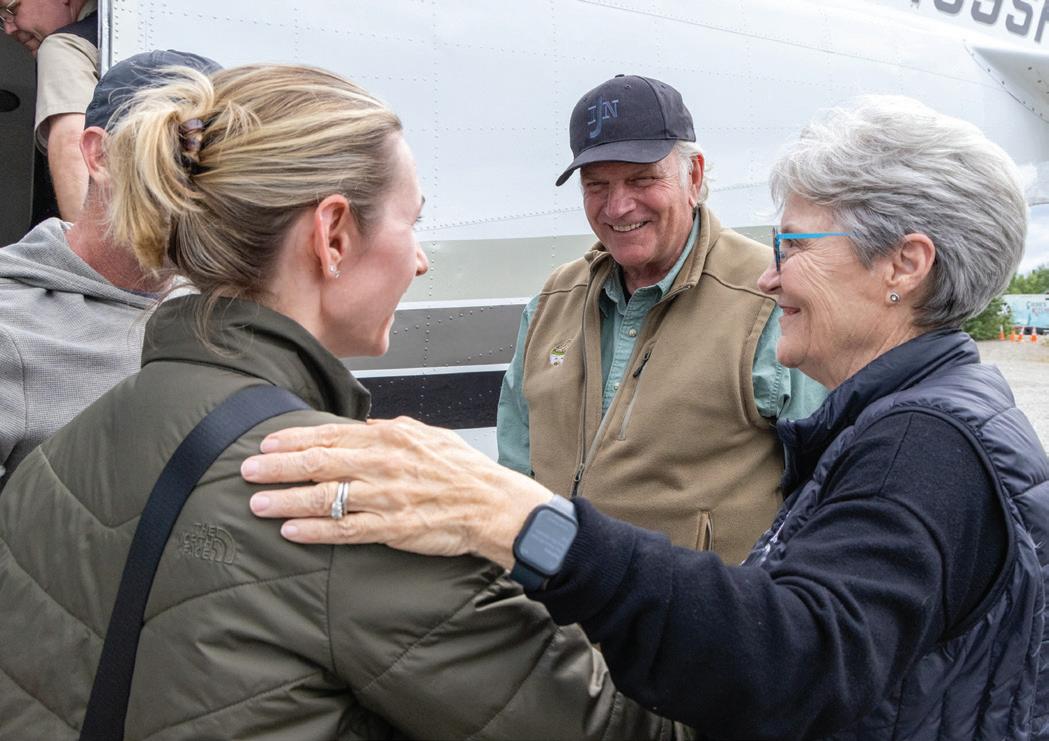

Samaritan’s Purse’s rapid growth

$1.2 billion (2023)
$1.5 billion
$1 billion
$500 million
$0
$1.04 billion (2023)
$1.2 billion
$1 billion
$800 million
$600
$400
$200


$1.83 billion (2023)
$2 billion
$1.5
$1
$500

By mid-December, volunteers had delivered 3,847 generators, 7,768 heaters, 24,666 food bags and 22,473 gallons of fuel across 15 counties statewide, reaching 3,820 homeowners and 200 churches. Eighteen aircraft carried 700,000 pounds of supplies across 359 missions. It was the “largest civilian airlift operation in U.S. history,”o cials said. e group also installed or repaired 139 SpaceX Starlinks for satellite internet service.
Samaritan’s Purse plans to rebuild 500 houses and replace 500 manufactured homes over at least three years, paid for by hundreds of thousands of devoted donors nationwide. e preliminary budget lists material costs at $155,000 to $300,000 per home, and $150,000 each for mobile homes.
Our nonprofit and faith-based partners like Samaritan’s Purse play an essential role in disaster response and recovery
It joins dozens of nonpro t and faith-based organizations working alongside state and local agencies as part of the Federal Emergency Management Agency’s Voluntary Organizations Active in Disaster network. e goal is to help survivors with needs that may be outside the scope of government disaster recovery programs. FEMA’s voluntary agency liaisons identify unmet needs and work directly with Samaritan’s Purse in coordinating response and recovery.
“Our nonpro t and faith-based partners like Samaritan’s Purse play an essential role in disaster response and recovery, o ering critical assistance to survivors in their time of greatest need,” a FEMA spokesperson says.
When Helene hit, FEMA leveraged the organization’s unprecedented volunteer turnouts to muck out ooded homes, tarp roofs, remove downed trees with chainsaws and transfer debris for pick-up.
$112 million (2023)
$120
$100
$80
$60
$40
Source: Form 990 tax filings from 2011 to 2023
Samaritan’s Purse worked alongside FEMA long before Helene, though it doesn’t receive funding or grants from the agency. Samaritan’s Purse equipped its rst disaster relief semi-truck in 1998. Other examples of collaboration include: wild res in New Mexico last year, tornadoes in Mississippi in 2023, and hurricanes Harvey in Texas, Michael in Georgia and Ian in Florida.
FEMA also points to the Maui wild res in 2023, when Samaritan’s Purse deployed crisis-trained chaplains through its sister ministry, the Billy Graham Evangelistic Association. “Chaplains were on the island to provide emotional support and spiritual comfort to residents su ering in the wake of so much loss,” the spokesperson stated.
Graham, who also leads the Billy Graham Evangelistic Association as president and CEO, says these rapid-response chaplains are mainly there to listen to people in the immediate aftermath of natural disasters, shootings and other crises. “It’s important for people to be able to tell their story because it may be the most traumatic thing in their life,” he adds. “Our chaplains listen to their stories, pray with them, and help local authorities bring calm to the situation. It’s one of the most important areas of our ministry.”
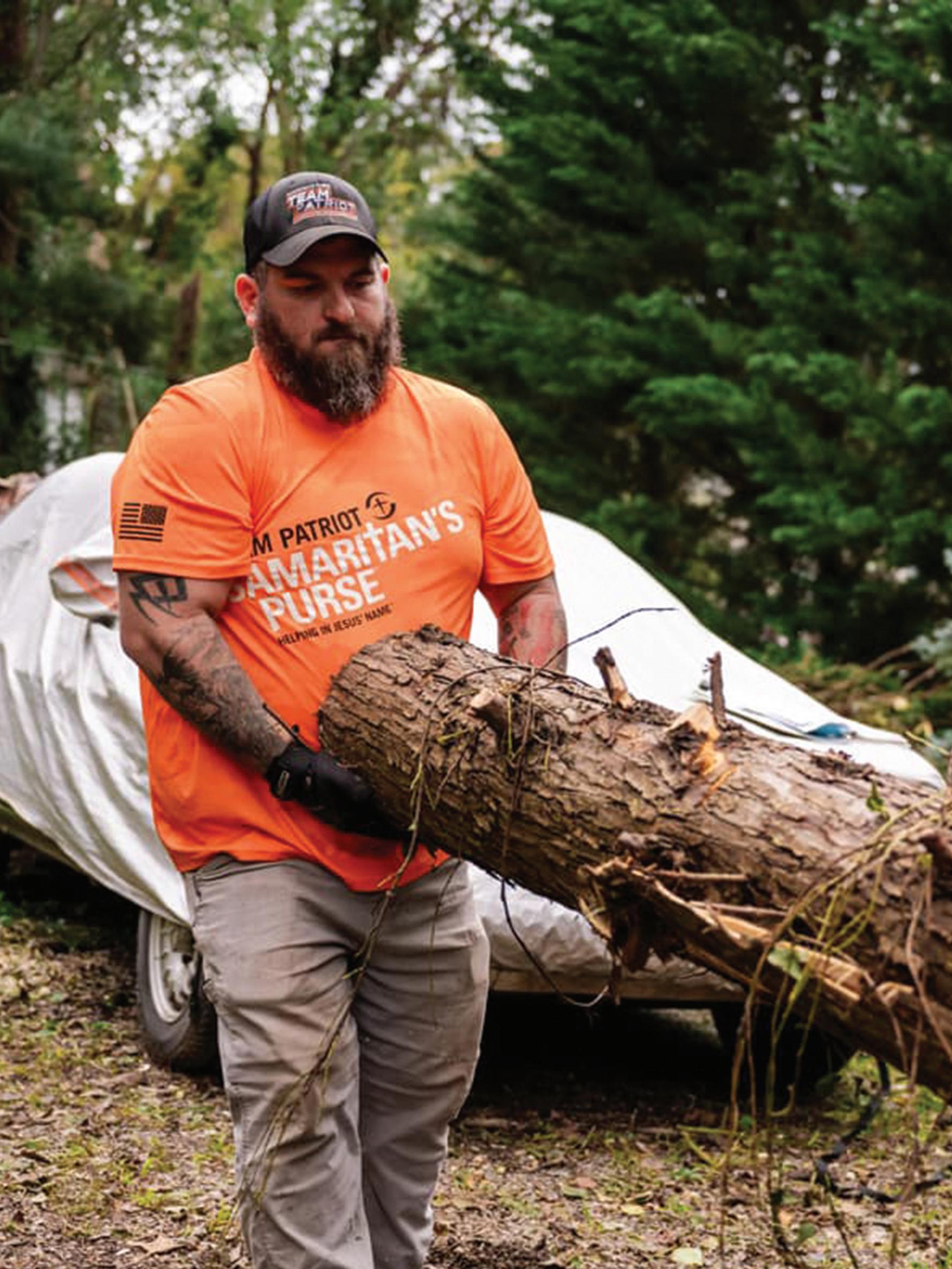




▲Samaritan’s Purse recovery efforts in its home state are massive with volunteers delivering 3,847 generators, 7,768 heaters, 24,666 food bags and 22,473 gallons of fuel as of mid-December. More than 3,800 homeowners were reached, along with 200 churches. Plans call for rebuilding 500 homes and replacing 500 manufactured homes.
Samaritan’s Purse remains unapologetically Christian, a clear distinction from many humanitarian aid nonpro ts. “We’re an evangelistic organization that happens to do relief work. We come right out and say, this is who we are,” Graham says. “I want everyone to know God loves them, that Christ died for their sins. We share that with everybody, but we never make it a condition for us to help them. We help them all, regardless of what they believe.”
Evangelism is in Graham’s DNA, having grown up witnessing his father’s sermons and broadcasts. “I never wanted to try to be Billy Graham because I knew I never could,” he says. “My father was a special person that God called and used.”
While he never planned to join his father’s operation, Graham knew he wanted to join the ministry world since his late teens. is realization came after a formative trip to northern Jordan, treating tuberculosis victims at a missionary hospital near the Syrian border. He gured he’d start by learning how to manage money. After returning from Jordan, he enrolled in Appalachian State University to get a business degree.
Around this time, the late Baptist pastor Bob Pierce asked Graham to join a new ministry, Samaritan’s Purse, that he started in California in 1970. When Pierce got sick with leukemia later that decade, Graham asked about his vision for the organization’s future. Pierce referenced the namesake New Testament parable delivered by Jesus, in which a priest and a Levite chose to ignore a half-dead traveler crying for help along the side of the road.
e third passer-by, a “good Samaritan,” broke the pattern and stopped to help.






Samaritan’s Purse now manages more than $1 billion in net assets and armies of volunteers across 100 countries. Medical teams have served 60,000 patients through emergency eld hospitals, and the Children’s Heart Project has performed surgeries on about 1,500 children with heart defects.
We’ve grown almost every year for the last 40 years, Graham says. We never try to focus on growing per se, but we just want to be faithful and carry out the work God wants us to do.
— Franklin Graham
“I want Samaritan’s Purse to be exactly what Jesus said it was to be,” Pierce is quoted as saying. “Who was that Samaritan? Likely a layman. e professional religionists, the priests, and the Levites had taken a casual look at the wounded traveler – and gone on their way quite una ected by his critical need of help. en along came this Samaritan whom the religionists despised.”
After Pierce died in 1978, the board tapped the 27-year-old Graham to take over as president and board chair a year later. “I took o ce chairs and a few les from his desk in California to North Carolina, and we set up Samaritan’s Purse here in Boone with some ladies from the local church who helped me,” Graham says. e original o ce was in the attic of a medical practice run by the founders of World Medical Mission, which became the medical arm of Samaritan’s Purse. Since 1980, the operation has deployed more than 14,500 trips of medical personnel in 82 countries.
Among its best-known projects, Operation Christmas Child, has delivered 220 million gift- lled shoeboxes to impoverished children. Operation Heal Our Patriots hosts an annual marriage retreat in Alaska, where hundreds of military couples come to sh, bear-watch and take marriage enrichment classes.
“We’ve grown almost every year for the last 40 years,” Graham says.“We never try to focus on growing per se, but we just want to be faithful and carry out the work God wants us to do.”
Samaritan’s Purse paid Graham an $812,909 salary in 2023, according to the latest tax lings. Another 12 executives each received more than $300,000 in total compensation, including Graham’s son Edward, who is chief operating o cer. Other family members a lated with the organization include Franklin’s wife Jane Austin, and his daughter, Jane “Cissie” Lynch.
Graham’s upper-six- gure salary is not uncommon in large Christian ministries. Some execs earn more than $1 million in annual compensation, particularly those in media enterprises. Other relief and development ministries pay their presidents sixgure salaries, including World Vision ($534,742), Compassion International ($419,184), and MAP International ($352,693).
Graham also receives an undisclosed salary from the Graham evangelistic association. He believes his 45-year track record justi es his compensation. “A lot of pay is tied to longevity,” he says. “I think I’ve been at this job more than anyone else in the evangelical world, so if the Lord gives me health and strength, I’m going to keep doing it as long as I can.”



Franklin Graham, president and CEO, Samaritan’s Purse; president and CEO, Billy Graham Evangelistic Association
Don Campion, president, Banyan Air Service
Michael Cheatham, M.D., Orlando Health Surgical Group
Corey Furman, president, Boone Drugs
Edward Graham, chief operating officer, Samaritan’s Purse
Melvin Graham, president and CEO, Graham Enterprises
Jeff Greene, vice president, Hollar and Greene Produce
Skip Heitzig, senior pastor, Calvary Chapel
Thomas Hodges, executive vice president, Truist
Bobby Idol, executive vice president, Carroll Companies
Cissie Lynch, senior adviser/spokesperson, Samaritan’s Purse
Dr. Felix Martin del Campo, general dentistry
Brian Pauls, president, Pauls Corp.
Phyllis Payne, executive adviser to the president, Samaritan’s Purse
Paul Saber, president and CEO, Manna Development Group
John Scott, senior vice president, Wealth Management, Truist
Robert Shank, founder and CEO, The Master’s Program
Richard “Stick” Williams, retired president, Duke Energy Foundation
Paula Woodring, executive vice president, Samaritan’s Purse
Graham says Samaritan’s Purse will expand on several fronts in 2025. Immediate plans include adding a Boeing 767 cargo plane to its eet, opening a new ministry center in Baltimore, and continuing its Helene rebuilding operations. Two new planes are on order for Alaska and Africa, but likely won’t be ready until 2026.
Asked about emerging crises he’s tracking, Graham mentions the situation in Sudan. Over half the population has minimal access to food, 3 million refugees have ed, and 8 million remain internally displaced, making it the largest displacement crisis worldwide. “We have an o ce in Port Sudan, which is functioning as the capital city since Khartoum has been abandoned and sacked,” Graham says. “We are doing all that we can to help feed people and care for their medical needs.”
For now, Samaritan’s Purse will continue its longtime operations in Ukraine. Before Russia invaded in 2022, the organization was working with 3,000 churches through Operation Christmas Child. “We’re still there helping them,” Graham says. “We’ll be in Ukraine for some time now. We hope that President Trump can work out some kind of deal, as he promised he would, to see this war come to an end.”
Graham isn’t shy about his support for the incoming president, continuing his decades-old history of outspoken views that have drawn sharp criticism from more liberal leaders and organizations. In 2015, he called for barring Muslims from emigrating to the United States, similar to bans on German and Japanese immigration during World War II. A regular poster on social media, he opposed e orts to make same-sex marriage legal in all 50 states and is staunchly anti-abortion, except in cases involving the mother’s health.
Graham prayed for Trump at the Republican National Convention in 2020 and 2024. In the rst administration, Graham spoke highly of Trump’s peace agreements between Israel and the United Arab Emirates, and his diplomatic engagements with Russian President Vladimir Putin and North Korea’s Kim Jong Un. In their various meetings over the years, Graham has encouraged Trump to pray daily when he wakes up. “I believe he’s doing that,” he says.
Interviewed a week after the November election, Graham remained optimistic about world peace. “Trump is not a person who wants war. He’s a person who wants to make a deal, he wants to see people prosper. And whatever crises around the world, I think he’ll be very supportive of a humanitarian organization like Samaritan’s Purse in responding.”■



ANTITRUST | Cassandra J. Creekman
APPELLATE | Matthew W. Sawchak
BANKRUPTCY | Jason L. Hendren
BUSINESS | Milton “Heath” Gilbert Jr.
CONSTRUCTION | Neale T. Johnson
CORPORATE COUNSEL | Christopher F. Buchholtz
CORPORATE LAW | Anne E. Croteau

CRIMINAL | Russell D. Babb
EMPLOYMENT | William Augustus Oden III
ENVIRONMENTAL | Bryan Brice Jr.
FAMILY | Janet Haney Amburgey
IMMIGRATION | Ana Sofia Nuñez
INTELLECTUAL | David W. Sar
LITIGATION | J. Scott Flowers
REAL ESTATE | Marc L. Isaacson
people. Let’s go!
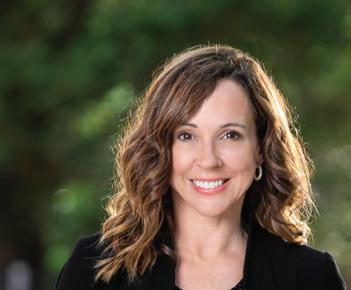

By Kevin Ellis
Photography by Terrence Jones
Those were some of the words Business North Carolina received when we asked this year’s Legal Elite category winners to describe their work. We also asked this group of 17 attorneys – who work in rms ranging from two attorneys to 1,000 – about ways they’re working smarter. One says making phone calls rather than defaulting to email has made a di erence. Another calls perfection “the enemy of good work.” e answers gave a lot of insight into what motivates these attorneys to serve their clients.
Business North Carolina would like to thank all of the attorneys who took time to vote on their peers as well as those who participated in this feature.
It’s the 24th class of Legal Elite, which honors lawyers chosen by their peers. Business North Carolina contracted DataJoe Research to facilitate an online peer-voting and internet research process. About 1,300 lawyers received votes, with those receiving the most getting recognition in 17 specialties as Hall of Fame members. e responses have been edited for length and clarity. Previous Hall of Fame members are listed by their rm at the time of selection unless otherwise noted.
DataJoe Research is a Boulder, Colorado-based so ware and research company specializing in data collection and veri cation, and it conducts various nominations across the nation on behalf of publishers. DataJoe con rmed that each published winner had, at the time of review, a current, active license status with the appropriate state regulatory board. If unable to nd evidence of a lawyer’s active registration with the state regulatory board, that lawyer was excluded from the list. In addition, we checked available public sources to identify lawyers disciplined for an infraction by the state regulatory board. ey were excluded from the list. DataJoe presented the tallied results to Business North Carolina for its nal review and adjustments.

TAX & ESTATE PLANNING | Heidi Elizabeth Royal
YOUNG GUNS | Carlie Anne Smith

DataJoe and Business North Carolina recognize that there are many talented lawyers who are not listed. is is a subset of talented professionals across the state. Inclusion in the list is based on the opinions of responding lawyers in North Carolina. DataJoe thoroughly ensures fair voting but the company understands that the results of this survey nomination and internet research campaign are not an objective metric.
Disclaimers: DataJoe uses best practices and exercises great care in assembling content for this list. DataJoe does not warrant that the data contained within the list are complete or accurate. DataJoe does not assume, and hereby disclaims, any liability to any person for any loss or damage caused by errors or omissions herein whether such errors or omissions result from negligence, accident, or any other cause. All rights reserved. No commercial use of the information in this list may be made without written permission from DataJoe. For research/methodology questions, contact the research team at surveys@datajoe.com.

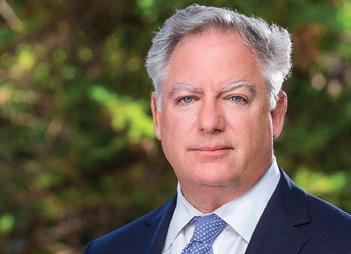
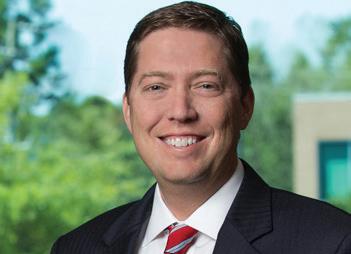
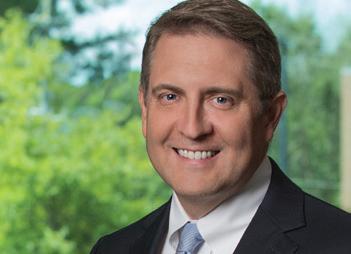
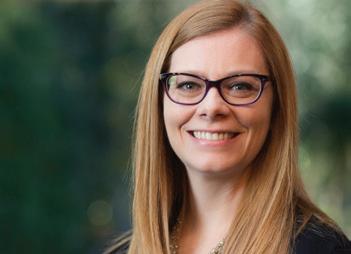
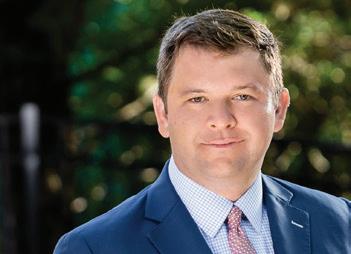

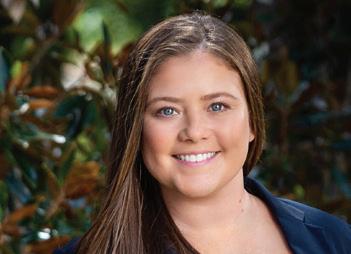
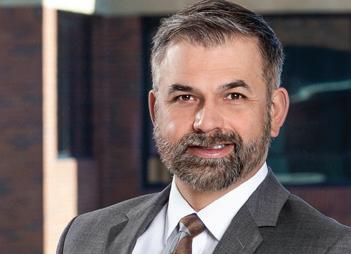




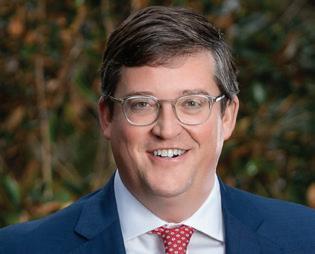
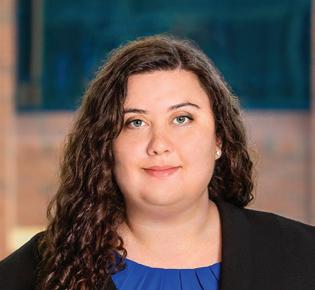










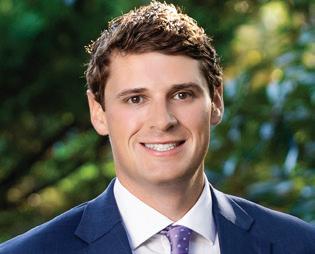
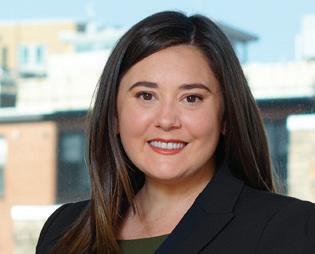

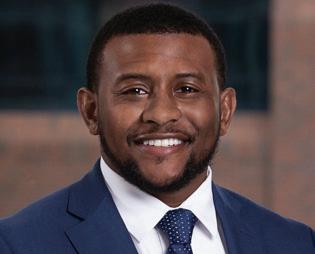
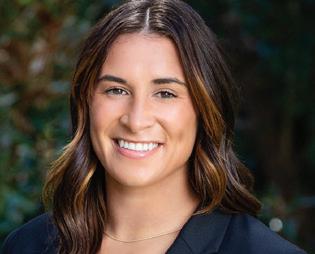
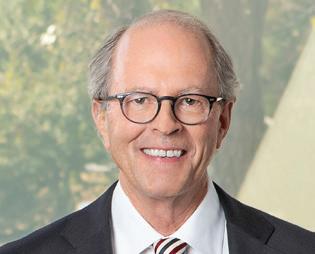


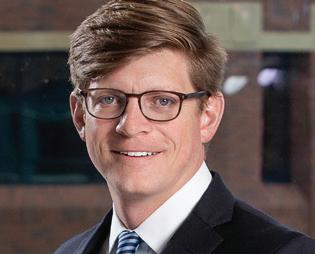
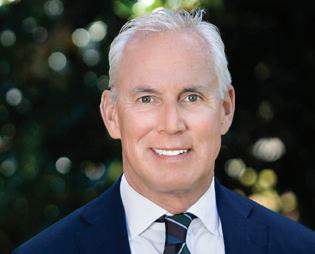
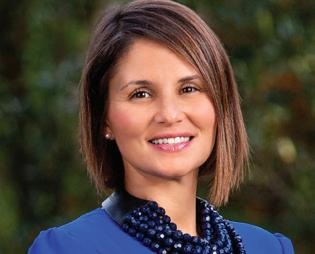
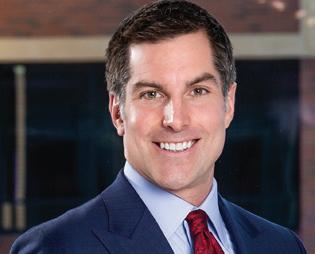

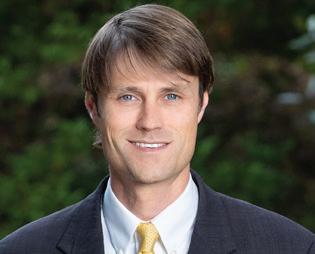
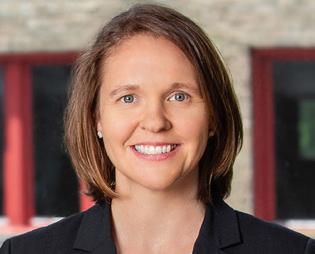
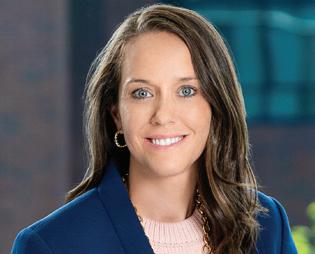

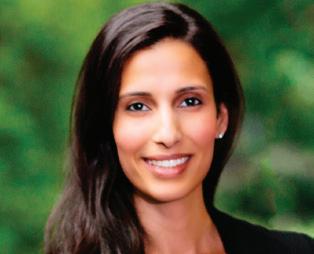
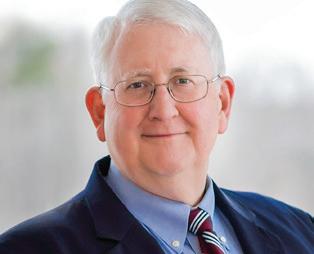
Payton Collier Bullard Young Guns

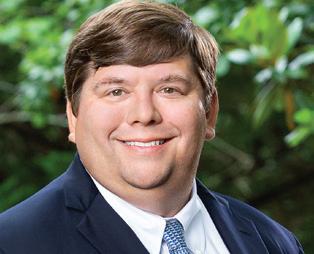

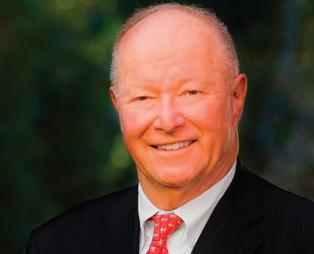






Wyrick Ro ins
Hometown: Rhinelander, Wisconsin
Undergrad: Duke University

Law school:New York University School of Law, 2005
Practiced law: 19 years
Family: Husband, David, and two sons, ages 11 and 13



FIRST JOB: As a teenage day camp counselor, I often worked alone at a small public park for seven hours. My job was to entertain a dozen kids between the ages of 5 and 12.
WORKING SMARTER: I used to personally answer every question I was asked. Learning to delegate ultimately empowers others and provides better client service.
FAVORITE NORTH CAROLINA PLACE: The mountains, especially Boone and Blowing Rock.
MISSION ACCOMPLISHED: Hiking a glacier
STILL ON BUCKET LIST: Scuba diving
STRESS RELIEVER: Reading – but the book can’t be too good or I stay up all night!
WHY I BECAME A LAWYER: I wanted to use the law to help guide decisions for long-term or society-wide benefits, rather than immediate self-interest.
ALTERNATIVE CAREER CHOICE: Cognitive psychology research
YOUR EDGE: I like solving problems and am not afraid to tackle new things.

2025 MILESTONES: Completing our first Hart-Scott-Rodino filing under the newly revised rules.
PASSIONS: Travel and spending time with my family.
LAW SCHOOL IN 2 OR 3 YEARS: Two years would be enough for many practice areas and would reduce financial burdens on students. Law schools might develop externship-type programs for a third year of specialization.
ABOUT WYRICK ROBBINS
FOUNDED: 1979
OFFICE: Raleigh
MANAGING PARTNER: Todd Eveson
HOW MANY ATTORNEYS, STAFF: 120 attorneys, 55 professional staff
KEY SPECIALTIES: Corporate/M&A/public companies; capital markets/PE/VC; life sciences; ag-tech; tech; IP/licensing; banking and financial; litigation; data privacy and security; real estate/ environmental; employment; ERISA/Employee benefits/executive compensation; healthcare; tax; municipal; and family law and trusts and estates.
CASSANDRA J. CREEKMAN
Wyrick Robbins
Raleigh
Lisa F. Garrison
Garrison Law Group, Asheboro
Larry S. McDevitt
Van Winkle Law Firm, Asheville
Michael T. Medford
Manning Fulton & Skinner, Raleigh
Lawrence C. Moore III
Robinson Bradshaw & Hinson, Charlotte
John D. Noor
Roberts & Stevens, Asheville
Clinton R. Pinyan
Brooks Pierce, Greensboro
George Sanderson
The Sanderson Law Firm, Raleigh
MATTHEW W. SAWCHAK
Robinson Bradshaw &Hinson, Raleigh
Steven Andrew Bader
Cranfill Sumner, Raleigh
Jaye Elizabeth Bingham-Hinch
Batten Lee, Raleigh
Daniel Micah Blau
Daniel M. Blau Law, Raleigh
Charles Clanton
Wyrick Robbins, Raleigh
Ashley Ann Crowder Round 2 Legal, Charlotte
Alexander C. Dale Ward and Smith, Wilmington
Christopher S. Edwards Ward and Smith, Wilmington
Samuel J. Ervin IV
Brooks Pierce, Greensboro
Stephen D. Feldman
Robinson Bradshaw & Hinson, Raleigh
Ross Fulton
Rayburn Cooper & Durham, Charlotte
Robert Daniel Gibson
Davis Hartman Wright Attorneys, New Bern
Bonnie Keith Green The Green Firm, Charlotte
Michael Duane Jones
Hedrick Gardner Kincheloe Garofalo, Charlotte
J. Blakely Kiefer
Wyrick Robbins, Raleigh
John Korzen
Wake Forest Law, Winston-Salem
Lorin J. Lapidus
Nelson Mullins Riley & Scarborough, Winston-Salem
Scottie Forbes Lee Ellis & Winters, Greensboro
Michelle Ann Liguori Ellis & Winters, Raleigh
John M. Martin Ward and Smith, Greenville
Lucy Inman Milberg Coleman Bryson Phillips Grossman, Raleigh
Kip David Nelson Fox Rothschild, Greensboro
Preston O. Odom III James McElroy Diehl, Charlotte
David S. Pokela
Maynard Nexsen, Greensboro
Stephen M. Russell Jr. Mullins Duncan Harrell Russell, Greensboro
Deborah Sandlin
Sandlin Family Law Group, Raleigh
Jonathan D. Sasser Ellis & Winters, Raleigh
Patricia Pursell Shields
Hedrick Gardner Kincheloe Garofalo, Raleigh
Mark Russell Sigmon Sigmon Law, Raleigh
Amie Carol Sivon Ragsdale Liggett, Raleigh
Christopher G. Smith
Smith Anderson, Raleigh
Rebecca K. Watts Collins & Elder Law Group, Monroe
D. Martin Warf Nelson Mullins, Raleigh
John R. Wester
Robinson Bradshaw & Hinson, Charlotte
Erik Randall Zimmerman
Robinson Bradshaw & Hinson, Chapel Hill
JASON L. HENDREN
Hendren Redwine & Malone, Raleigh
Rayford K. Adams III Spilman Thomas & Battle, Winston-Salem







Robinson Bradshaw
ANTITRUST HALL OF FAME
Hometown: Vestal, New York

Undergrad: Harvard University
Law Schoo: Duke University School of Law, 1989
Practiced Law: 34 Years
Family: I’ve been married to my wife Maureen for 40 years. We have an adult son, Ben, and an adult daughter, Julia.



FIRST JOB: The summer after ninth grade, I was the bugler at a scout camp on Cayuga Lake in the Finger Lakes of New York. At the end of each week, the campers would throw me and my bugle into the lake as revenge for waking them up every day.
WORKING SMARTER: Delegation. Sharing responsibility with my younger colleagues is important for their development and my sanity. Also, litigation strategy improves when it reflects more than one point of view.
FAVORITE NORTH CAROLINA PLACE: Beaufort
MISSION ACCOMPLISHED: Arguing in the U.S. Supreme Court.
BUCKET LIST: Visiting Croatia
STRESS RELIEVER: Watching sports with Maureen and tossing toys to our rescue dogs. We often do both at the same time.
WHY I BECAME A LAWYER: I enjoy working with words and ideas.
ALTERNATE CAREER CHOICE: I could see myself as a choral conductor. I have a passion for singing and for leading singing groups.

YOUR EDGE: Unfailing encouragement from Maureen.
2025 MILESTONES: I’ve been fortunate to work on several appeals in 2024. I’d like to work on even more in 2025.
FAVORITE PASSIONS: Singing and reading about current affairs.
LAW SCHOOL IN 2 OR 3 YEARS: I’d stick with three, but I’d focus the third year on clinics, internships and other ways for students to sample the role of a lawyer before jumping into the deep end.
ABOUT ROBINSON BRADSHAW
FOUNDED: 1960
OFFICES: Charlotte, Raleigh, Chapel Hill and Rock Hill, South Carolina. Sawchak works in Raleigh.
MANAGING PARTNER: Allen Robertson
HOW MANY ATTORNEYS, STAFF: 173 attorneys, 105 professional staff
KEY SPECIALTIES: More than 40 practice areas across four departments – corporate, litigation, real estate and tax.
Brian Richard Anderson Fox Rothschild, Greensboro
James B. Angell
Howard Stallings Law Firm, Raleigh
David R. Badger
David R. Badger, Charlotte
Paul Rudd Baynard Offit Kurman Attorneys At Law, Charlotte
Laurie B. Biggs Biggs Law Firm, Raleigh
John C. Bircher III Davis Hartman Wright Attorneys, New Bern
William E. Brewer Jr. Sasser Law Firm, Cary
Daniel C. Bruton Bell Davis Pitt, Winston-Salem
William E. Burton III Fox Rothschild, Greensboro
Algernon L. Butler III Butler & Butler, Wilmington
Stacy C. Cordes Cordes Law, Charlotte
Brian D. Darer Parker Poe, Raleigh
Damon Terry Duncan Duncan Law, Greensboro

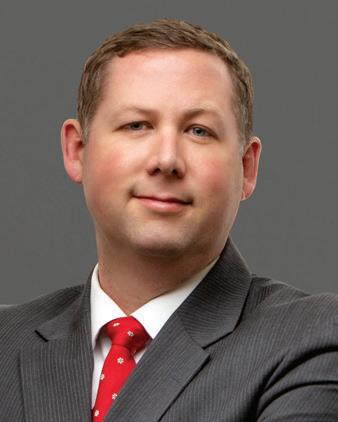
William L. Esser IV
Parker Poe, Charlotte
Paul A. Fanning
Ward and Smith, Greenville
Megan P. Farley
Allen Stahl + Kilbourne, Asheville
Chip Ford
Parker Poe, Charlotte
Joseph W. Grier III
Grier Wright Martinez, Charlotte
Cole Hayes Hayes Law, Charlotte
Ashley Lee Hogewood III K&L Gates, Raleigh
Andrew Thomas Houston
Moon Wright Houston, Charlotte
Charles M. Ivey III
Ivey Mcclellan Siegmund Brumbaugh & McDonough, Greensboro
James W. Kilbourne Jr.
Allen Stahl + Kilbourne, Asheville
William Howard Kroll
Everett Gaskins Hancock Tuttle Hash, Raleigh
James C. Lanik
Waldrep Wall Babcock Bailey, Winston-Salem
Luis Manuel Lluberas Moore & Van Allen, Charlotte
Jamey Mavis Lowdermilk
Brooks Pierce, Greensboro
Jennifer Lyday
Waldrep Wall Babcock & Bailey, Winston-Salem
Lance P. Martin
Ward and Smith, Asheville
Michael Leon Martinez
Grier Wright Martinez, Charlotte
Robert Ashley Mays
Mays Johnson Law Firm, Asheville
Jack Miller
Rayburn Cooper & Durham, Charlotte
Clinton Shepperd Morse Brooks Pierce, Greensboro
George M. Oliver
Law Offices of Oliver & Cheek, New Bern
Kathleen O’Malley
Stevens Martin Vaughn & Tadych, Raleigh
Richard Rayburn Rayburn Cooper & Durham, Charlotte
Ciara L. Rogers, Waldrep Wall Babcock & Bailey, Raleigh
Ashley S. Rusher
Blanco Tackabery Attorneys At Law, Winston-Salem

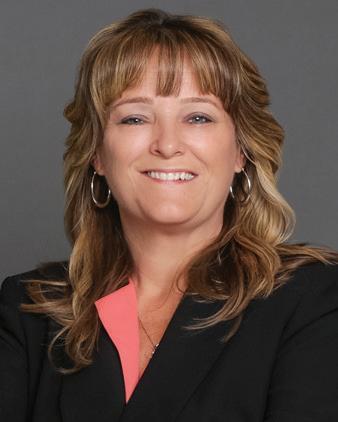
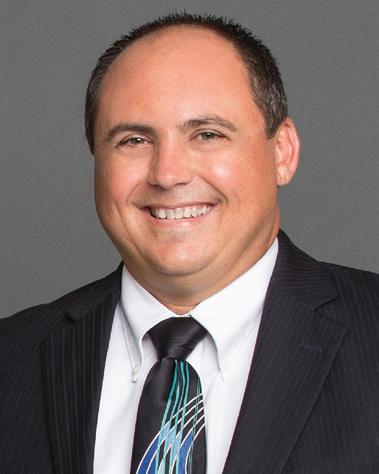
Philip M. Sasser
Sasser Law Firm, Cary
Travis P. Sasser
Sasser Law Firm, Cary
Dirk W. Siegmund
Ivey Mcclellan Siegmund Brumbaugh & McDonough, Greensboro
Kevin L. Sink
Kevin Sink Law, Raleigh
Zachary H. Smith
Moore & Van Allen, Charlotte
Lisa P. Sumner
Maynard Nexsen, Raleigh
Glenn Clark Thompson
Hamilton Stephens Steele + Martin, Charlotte
Joseph Jude Vonnegut Hutchens Law Firm, Fayetteville
Jill C. Walters
Baker Donelson Bearman
Caldwell & Berkowitz, Raleigh
Matthew Alexander Winer
Hamilton Stephens Steele + Martin, Charlotte
A. Cotten Wright
Grier Wright Martinez, Charlotte
Joseph Zachary Frost Buckmiller Boyette Frost, Raleigh








Hometown: I was born in Ripley, Tennessee, but spent most of my childhood in Bedford, Virginia
Undergrad: Lee University

Law school: University of Tennessee School of Law, 1999
Practiced law: 25 years
Family: Married with three children, ages 27, 17 and 10.



FIRST JOB: I bagged groceries at Food Lion at age 15.
WORKING SMARTER: I’ve learned to work with an excellent team of attorneys and paralegals and not micromanage every aspect of the business.
FAVORITE NORTH CAROLINA PLACE: Cape Lookout
MISSION ACCOMPLISHED: Traveling for overseas mission work and teaching English classes in Budapest, Hungary.
STILL ON BUCKET LIST: I would like to travel the intercoastal waterway with friends and family and work up the Great Loop.
STRESS RELIEVER: Golf, playing drums with my church band and boating.
WHY I BECAME A LAWYER: I enjoy helping people who are going through stressful situations and thought bankruptcy law was a great opportunity to help clients through financial difficulties.

ALTERNATIVE CAREER CHOICE: Financial adviser
YOUR EDGE: I wouldn’t be where I am today without my faith in God and my family.
2025 MILESTONES: I will travel on my seventh mission trip to Budapest.
FAVORITE PASSIONS: Music and investing
LAW SCHOOL IN 2 OR 3 YEARS: Three for sure
ABOUT HENDREN, REDWINE & MALONE FOUNDED: 2009
OFFICES: Zebulon and Raleigh
HOW MANY ATTORNEYS, STAFF: Five attorneys, and three staff
KEY SPECIALTIES: Business-related financial workouts and bankruptcy cases. Law partner, Mike Malone, focuses on personal injury, class action and business litigation.
MILTON “HEATH”
GILBERT JR.
Baucom, Claytor, Benton, Morgan & Wood, Charlotte
Thomas A. Allen Wyrick Robbins, Raleigh
Nicholas John Bakatsias Carruthers & Roth, Greensboro
Catherine A. Barnes
James McElroy Diehl, Charlotte
Adam Matthew Beaudoin Ward and Smith, Wilmington
Matthew S. Black Envisage Law, Raleigh
Marc D. Bishop Brooks Pierce, Greensboro
Scott Bowers
Baker Donelson Bearman Caldwell & Berkowitz, Raleigh
William P. Bray Bray & Long, Charlotte
Curtis C. Brewer IV Smith Anderson, Raleigh
Elizabeth S. Brewington Brooks Pierce, Greensboro
David P. Broughton
Womble Bond Dickinson, Winston-Salem
Patrick S. Bryant
Robinson Bradshaw Hinson, Charlotte
Steven Carr
Ellinger & Carr, Raleigh
Ryan W. Coffield
Van Winkle Law Firm, Asheville
Galen G. Craun III
Bell Davis Pitt, Winston-Salem
Natalie Crenshaw Folmar
Tuggle Duggins, Greensboro
Richard John Crow
Ward and Smith, Wilmington
Katie M. Ertmer
Wyrick Robbins, Raleigh
Paul T. Flick
Miller Monroe Plyler, Raleigh
Christie Anthony Hartinger Wyrick Robbins, Raleigh
Lee Carlton Hodge Ward and Smith, New Bern
Kevin David Israel
Venture Law Firm, Raleigh
Jonathan L. Jenkins Brooks Pierce, Greensboro
Kelly Rains Jesson
Jesson & Rains, Charlotte
Jesse Hofers Jones Fourscore Law, Raleigh
W. Scott Jones
Barbour Searson Jones Cash, Asheville
Warren P. Kean
Shumaker Loop & Kendrick, Charlotte
Jeffrey P. Keeter
Block Crouch Keeter Behm & Sayed, Wilmington
Robert D. Kidwell Fox Rothschild, Greensboro
Byron B. Kirkland
Smith Anderson, Raleigh
Katherine Kliebert Kliebert Law, Charlotte
Christopher Henry Kouri Maynard Nexsen, Charlotte
Nick Kendall Johnston Allison Hord, Charlotte
Matthew A. Jones Ward and Smith, Raleigh
Stephen F. Later
Robbins May & Rich, Pinehurst
Lesley Attkisson Lewis Moore & Van Allen, Charlotte
David K. Liggett
Ragsdale Liggett, Raleigh
Jonathon Adam Martin
Robinson Bradshaw & Hinson, Chapel Hill
Merrill M. Mason
Smith Anderson, Raleigh
J. Dickson McLean
Block Crouch Keeter Behm & Sayed, Wilmington
Joshua J. Otto Wyrick Robbins, Raleigh
Jeffrey James Owen McGuire Wood & Bissette, Asheville
Lonnie M. Player Jr. Player McLean, Fayetteville
Christopher Poe Wyrick Robbins, Raleigh
Kevin A. Prakke
Manning Fulton & Skinner, Raleigh
V. Vaughn Ramsey Tuggle Duggins, Greensboro
Cory Andrew Rayborn Tuggle Duggins, Greensboro
Thomas Duke Ricks
Alexander Ricks, Charlotte







Baucom, Claytor, Benton, Morgan & W d
Hometown:As the son of a United Methodist minister, I had no hometown. I went to high school in Louisburg in Franklin County.

Undergrad: UNC Charlotte
Law school: University of Akron School of Law, 1999
Practiced law: 23 years.
Family: Wife, Cherise, and children Melanie, Rachel and Andrew.



FIRST JOB: I washed pots and pans every Saturday at Louisburg College cafeteria.
WORKING SMARTER: I have learned how to say “no” to work. I have set limits and learned that I simply cannot help everyone. Moreover, many great colleagues are more capable than me and might want the referral.
FAVORITE NORTH CAROLINA PLACE: Coming from eastern North Carolina, I visited Charlotte in 1988 and knew that it was where I wanted to live and have since 1989, except for three years of law school.
MISSION ACCOMPLISHED: Traveled to England and France in 2023.
STILL ON BUCKET LIST: Hawaii
STRESS RELIEVER: Watching a great comedic movie with my wife, kids and dogs in our theater room with a glass of wine or some other beverage of choice.
WHY I BECAME A LAWYER: My parents suggested this career to me in high school. I had the ability to write and also an innate ability to successfully advocate for things that one would not otherwise be compelled to do absent my advocacy. I figured that with those skills I could have a positive societal impact and also enjoy what I do.
YOUR EDGE: Discovering that I had ADHD in 2001. This helped me finally pass the bar, it shaped the way that I practice law and has kept me grounded.

ALTERNATIVE CAREER CHOICE: Film producer
2025 MILESTONES: I will be an empty-nester when my son graduates high school in May 2025.
FAVORITE PASSIONS: Neurodiversity awareness: I have told my story through articles and CLE about my challenges with ADHD and how I manage it with the specific intention of encouraging others similarly situated to find their path; (2) UNC Charlotte: I have two degrees from there, two children have graduated from there and a third is on the way. I support their athletic teams, and academic scholarships and would love to see them eventually add the third public law school in North Carolina.
LAW SCHOOL IN 2 OR 3 YEARS: The traditions and work of the three-year process make us better lawyers. Shorter does not always mean better.
ABOUT BAUCOM, CLAYTOR, BENTON, MORGAN & WOOD
FOUNDED: 1957
OFFICES: Charlotte and Matthews
MANAGING PARTNER: M. Heath Gilbert Jr.
HOW MANY ATTORNEYS, STAFF: Nine attorneys, 10 staff
KEY SPECIALTIES: Business/corporate, real estate, estate planning and administration, commercial and business litigation, domestic, construction law
David Scott Rugani
Johnston Allison Hord, Charlotte
George W. Sistrunk III
Hamilton Stephens Steele + Martin, Charlotte
Ritchie W. Taylor
Manning Fulton & Skinner, Raleigh
David Lee Tkach
David L Tkach, Charlotte
Caroline Wannamaker Sink
Robinson Bradshaw & Hinson, Charlotte
Jeffrey R. Wolfe
Davis Hartman Wright, Greensboro
Robert B. Womble
K&L Gates, Raleigh
NEALE T. JOHNSON
Fox Rothschild, Greensboro
Todd A. Jones
Anderson Jones, Raleigh
Andrew Perry Atkins Smith Anderson, Raleigh
Stacey Denise Bailey-Pharr Pharr Law, Winston-Salem
Ryan Lee Beaver
Bradley, Charlotte
Christopher K. Behm
Block Crouch Keeter Behm & Sayed, Wilmington
John T. Benjamin Jr.
Law Office of John T. Benjamin Jr., Raleigh
Eric H. Biesecker
Maynard Nexsen, Greensboro
Steven Allen Bimbo
Windle | Terry | Bimbo, Charlotte
Matthew C. Bouchard
Poyner Spruill, Raleigh
Carl Jeffress Burchette
Rosenwood Rose & Litwak, Charlotte
Robert L. Burchette
Johnston Allison Hord, Charlotte
Benjamin Thomas Buskirk
Poyner Spruill, Raleigh
David Anderson Carmen Bell Davis Pitt, Winston-Salem
Andrew L. Chapin
Conner Gwyn Schenck, Greensboro
Rebecca K. Cheney
Hamilton Stephens Steele + Martin, Charlotte
Adrianne Huffman Chillemi
Hamilton Stephens Steele + Martin, Charlotte
David S. Coats
Bailey & Dixon, Raleigh
Keith E. Coltrain
Wall Templeton Haldrup, Raleigh
Ward Davis, Bell Davis Pitt, Charlotte
Adam Reese Denobriga
James Denobriga, Charlotte
Luke J. Farley
Ellis & Winters, Raleigh
Alexandra Ferri Ward and Smith, Raleigh
John Thomas Floyd Moore & Van Allen, Charlotte
Joseph P. Gram
Conner Gwyn Schenck, Greensboro
Mark Hamlet Hamlet & Associates, Wilmington
Scott C. Harris
Milberg Coleman Bryson Phillips Grossman, Raleigh
Robert Jason Herndon Parker Poe, Raleigh
Jessica Soles Humphries Hamlet & Associates, Wilmington
Edward Aubin Jesson Jesson & Rains, Charlotte
W. James Johnson
Mays Johnson Law Firm, Asheville
Wesley S. Jones
The Law Office Of Wesley Scott Jones, Wilmington
Daniel G. Katzenbach Cranfill Sumner, Raleigh
Rebecca Ann Knudson
Cranfill Sumner, Wilmington
Nancy Stewart Litwak Rosenwood Rose & Litwak, Charlotte
Rod Malone
Tharrington Smith, Raleigh
Kevin Anthony Marshall Johnston Allison Hord, Charlotte
Carmela Mastrianni
Hamilton Stephens Steele + Martin, Charlotte
Joseph W. Moss Jr. Maynard Nexsen, Charlotte
Evan Monroe Musselwhite Ward and Smith, Raleigh
John M. Nunnally Ragsdale Liggett, Raleigh
Donald R. Pocock Akerman, Winston-Salem
William W. Pollock Ragsdale Liggett, Raleigh
Walt Rapp McAngus Goudelock & Courie, Asheville







Fox Rothschild
Hometown:Birmingham, Alabama. Greensboro is my adopted home.
Undergrad: University of South Carolina, 1988

Law school: University of Virginia School of Law, 1998
Practiced Law: 26 Years
Family:Deborah Brantley Johnson, my wife of 30 years, and three grown children and two grandchildren, all living in North Carolina.



FIRST JOB: I stayed in the Marine Corps Reserves until the early 2000s, when I mustered out with the rank of major.
WORKING SMARTER: Perfection is often the enemy of good work. It raises anxiety and reduces productivity. A 70% solution is better than no solution or a 90% solution that is unaffordable.
FAVORITE N.C. PLACE: Mountains of western North Carolina.
MISSION ACCOMPLISHED: Seeing my children finish school and become responsible, independent adults who are great human beings.
STILL ON BUCKET LIST: Helping my grandchildren do as well as their parents.
STRESS RELIEVER: Walking in the woods, followed by fellowship and a single malt scotch.
ALTERNATIVE CAREER CHOICE: Chef
YOUR EDGE: Almost everything good that I’ve accomplished traces back to some investment that someone shared with me.
WHY I BECAME A LAWYER: My wife and I married in 1994, and I knew that constant overseas deployments would make family life difficult. My sister, also a lawyer, suggested I might really enjoy law.

2025 MILESTONES: Expanding my neutral practice as a mediator and arbitrator.
FAVORITE PASSION: Preparing the next generation of lawyers for their challenges in a complicated and difficult environment. Generational differences are real, but I can also remember the generations ahead of me saying a lot of the same things about my generation.
LAW SCHOOL IN 2 OR 3 YEARS: Students should have a chance to learn in summer months what they need to pass the bar, but still finish in two years.
ABOUT FOX ROTHSCHILD
FOUNDED: 1907
OFFICES: Charlotte, Raleigh and Greensboro and 27 other locations coast to coast.
MANAGING PARTNER: Todd Rodriquez
HOW MANY ATTORNEYS, STAFF: 1,000 attorneys, 1,000 staff
KEY SPECIALTIES: More than 70 practice areas
David Redding
TLG Law, Charlotte
Jeffrey M. Reichard Maynard Nexsen, Greensboro
Neil Riemann Parry Law, Chapel Hill
R. Lee Robertson
Robertson & Associates, Charlotte
Richard L. Robertson
Richard L. Robertson Associates, Charlotte
John C. Rogers III
Allen Moore Rogers, Raleigh
Whitaker Boykin Rose Rosenwood Rose & Litwak, Charlotte
Perry Safran Safran Law Offices, Raleigh
Byron Lee Saintsing
Smith Debnam Narron Drake Saintsing & Myers, Raleigh
Sandra Woods Schilder Ragsdale Liggett, Raleigh
Bryan G. Scott Akerman, Winston-Salem
David A. Senter Maynard Nexsen, Raleigh
Gregory L. Shelton
Shelton Law, Charlotte
Nicole B. Slaughter
Hamlet Law, Wilmington
Mitzi Riana Smith
Smith Bowers, Raleigh
Jeffrey Kendal Stahl
Allen Stahl + Kilbourne, Asheville
Kevin J. Stanfield
Wyrick Robbins, Raleigh
Jason Trent Strickland
Ward and Smith, Raleigh
Jay P. Tobin
Young Moore And Henderson, Raleigh
Daniel S. Trimmer
Skufca Law, Charlotte
Scott M. Tyler
Moore & Van Allen, Charlotte
John Bowen Walker
Ragsdale Liggett, Raleigh
Gary J. Welch
Johnston Allison Hord, Charlotte
Jay M. Wilkerson
Conner Gwyn Schenck, Raleigh
Steele B. Windle III
Smith Terry & Johnson, Charlotte
Brian E. Wolfe
Wolfe Gunst & Hinson, Charlotte
CHRISTOPHER F. BUCHHOLTZ
RTI International, Research Triangle Park
Stuart Hale Russell Truliant Federal Credit Union, Winston-Salem
John Robert Seymour Mss Solutions, Charlotte
ANNE E. CROTEAU McGuireWoods, Raleigh
Alexander R. Atchison Young Moore and Henderson, Raleigh
Evan K. Auberry Fox Rothschild, Greensboro
Nicole Elizabeth Bleuer StephensonLaw, Cary
David Busch Alexander Ricks, Charlotte
Vincent D. Childress Jr. Roberts & Stevens, Asheville
Paul Joseph Foley Akerman, Winston-Salem
William B. Gwyn Jr. Manning Fulton & Skinner, Raleigh
John B. Hoke McGuireWoods, Charlotte
Frederick D. Hutchison Hutchinson, Raleigh
William Clark Isenhour Johnston Allison Hord, Charlotte
Cyrus M. Johnson Jr. Womble Bond Dickinson, Charlotte
G. William Joyner III Kilpatrick Townsend & Stockton, Winston-Salem
April Epley Kight Schell Bray, Greensboro
Stephen E. Klee Fox Rothschild, Greensboro
Elizabeth Everett Lane McGuire Wood & Bissette, Asheville
J. Christopher Lynch Wyrick Robbins, Raleigh
Thomas I. Lyon
Manning Fulton & Skinner, Raleigh






RTI International
Hometown:Marblehead, Massachusetts.
Undergrad:UCLA

Law school: UNC Chapel Hill School of Law, 1998
Practiced Law:25 years
Family:Wife of 28 years, Erika, daughter, Chloe, a sophomore at UNC Chapel Hill, and Theo, a junior at Carrboro High; Dash, a 7-year-old Cavapoo and Purrl, a 10-year-old cat.



FIRST JOB: Pumping gas in my hometown. Full service. Loved it. Second, was selling Kirby vacuum cleaners door-to-door. Challenging, but I was successful and learned a great deal.
WORKING SMARTER: Early morning weekend workouts so I can enjoy late Friday and Saturday nights out with my wife and friends.
FAVORITE NORTH CAROLINA PLACE: We moved to Chapel Hill from Los Angeles in 1994 and have loved living here and raising our family.
MISSION ACCOMPLISHED: Safari in Kenya and Tanzania.
STILL ON BUCKET LIST: Spending time in Australia and New Zealand.
STRESS RELIEVER: An evening workout at the UNC Wellness Center followed by a hot tub and sauna.
WHY I BECAME A LAWYER: I always thought law would be a noble profession aligned with my interests. It is and has been.
ALTERNATIVE CAREER CHOICE: Either a clinical psychologist or school teacher and coach. I love working with people.
FAVORITE PASSIONS: UNC basketball and international travel.

YOUR EDGE: Having great mentors who have guided me on my professional journey and being a mentor to early career staff.
2025 MILESTONES: Doing everything I can to help RTI International reach its North Star Goal of improving the lives of 1 billion people. I will also do my best to support Anuja G. Purohit, RTI’s newly elected chief legal officer. She’s a great leader, lawyer and person.
LAW SCHOOL IN 2 OR 3 YEARS: Three, with the third year focusing on skill development, extracurricular opportunities, including clinics and externships, and specialized electives.
ABOUT RTI INTERNATIONAL FOUNDED: 1958
OFFICES: Headquartered in Research Triangle Park, RTI employs staff in all 50 states and in 90 countries around the world.
MANAGING PARTNER: Anuja Purohit
HOW MANY ATTORNEYS, STAFF: Nine attorneys, five paralegals
KEY SPECIALTIES: Corporate transactions, government contracting, corporate governance, labor and employment, intellectual property and licensing, and risk and compliance.
Clay Oliver Christian Martin Wyrick Robbins, Raleigh
Annalise F. Perry Wyrick Robbins, Raleigh
Scott Cooper Rayburn Cooper & Durham, Charlotte
Brian Russ Nelson Mullins Riley & Scarborough, Charlotte
Jason Robert Schneider Schneider Law Group, Raleigh
Peter Donovan Singh Fourscore Law, Raleigh
Paul A. Steffens
Troutman Pepper Hamilton Sanders, Charlotte
Andrew David Steffensen Schell Bray, Greensboro
Richard C. Stephenson StephensonLaw, Cary
Amalie L. Tuffin Hutchison, Raleigh
Jennifer Weaver
Manning Fulton & Skinner, Raleigh
David Lee Wilke Wyrick Robbins, Raleigh
Tharrington Smith, Raleigh
A. Brennan Aberle Aberle Wall, Greensboro
F. Hill Allen
Tharrington Smith, Raleigh
Durwood Kevin Altman Law Office of Kevin Altman, WinstonSalem
James Thomas Amburgey Amburgey Law, Asheville
Christopher Anthony Beechler
Beechler Tomberlin, WinstonSalem
Jason Lee Aycoth
Garrett Walker Aycoth & Olson, Greensboro
Bradley J. Bannon
Patterson Harkavy, Chapel Hill
Andrew B. Banzhoff
Devereux Banzhoff, Asheville
David G. Budd II
Law Offices Of David G. Budd, Asheville
Jones Pharr Byrd Jr. Bell Davis Pitt, Winston-Salem
Stephen Lacy Cash Searson Jones, Gottschalk & Cash, Asheville
Christine Elizabeth ClarkePeckham
Law Office of Chrissy ClarkePeckham, Charlotte
Christopher R. Clifton
Grace Tisdale Clifton, Winston-Salem
Collin Patrick Cook Cheshire Parker Schneider, Raleigh
David T. Courie Beaver Courie Law, Fayetteville
James Austin Davis Davis & Davis, Salisbury
Russell W. Dement III Dement Askew & Johnson, Raleigh
Sean P. Devereux Devereux Banzhoff, Asheville
Michael Dowling Dowling, Raleigh
Douglas Perry Edwards Edwards Law, Asheville
Anna Smith Felts
Law Offices Of Anna Smith Felts, Raleigh
Christopher C. Fialko Fialko Law, Charlotte
Berryman J. Fitzhugh III
Sandman Finn & Fitzhugh, Raleigh
Deno Thomas Frangakis
Law Firm of Williford Crenshaw Boliek & Frangakis, Fayetteville
Elizabeth Freeman Greene Flannery Georgalis, Charlotte
Shana LaVerne Fulton Brooks Pierce, Raleigh
Joseph J. Garcia
The Law Offices of Joseph J. Garcia, Durham
Chad Garrett
Garrett Walker Aycoth & Olson Attorneys At Law, Greensboro
Emily Gladden
Tin Fulton Walker & Owen, Raleigh
Aaron Michael Goforth Hatch Little Bunn, Raleigh
Lambert Franklin Guinn Flannery Georgalis, Charlotte
Daniel Allen Harris
Clifford & Harris, Greensboro
Adam Hauser
Mecklenburg County Public Defenders Office, Charlotte







McGuireW ds
Hometown:Mechanicsburg, Pennsylvania
Undergrad:Duke University

Law school: Harvard Law School, 1998
Practiced Law: 25 Years
Family:Daughters, Ivy, 18, and Lucy, 17, rescue dogs Siggi and Raven.



FIRST JOB: Waiting tables and scooping ice cream at Friendly’s.
WORKING SMARTER: I stopped eating lunch at my desk. I started when my kids were young, so I could get more done while at the office, but it’s not a healthy practice physically or mentally.
FAVORITE NORTH CAROLINA PLACE: Blowing Rock
MISSION ACCOMPLISHED: Being an actress in New York City for 18 months after quitting law. Obviously with great success since I’m a lawyer again.
STILL ON BUCKET LIST: Writing a novel
STRESS RELIEVER: Dancing and walking my dogs.
WHY I BECAME A LAWYER: I like words and crafting arguments. I now use those to broker compromises and deals.
FAVORITE PASSIONS: Cooking and college sports. I am the only person I know who toggles between ESPN and Food Network during a game, throwing in an occasional Hallmark movie.
ALTERNATIVE CAREER CHOICE: Psychiatrist

YOUR EDGE: Ironically, having my career go sideways (or backwards) for years after downshifting to have kids, then having to reinvent myself. After being an M&A lawyer for a decade, I started doing debt financings and equity investments, so now handle all aspects of a leveraged buyout, which clients appreciate.
2025 MILESTONES: Redesigning my garden and perfecting a pirouette.
LAW SCHOOL IN 2 OR 3 YEARS: While you can get the fundamentals in two years, the third year is important for synthesizing and applying what you learned, as well as taking classes you think you’ll never use but do. Knowledge is never wasted.
ABOUT MCGUIREWOODS FOUNDED: 1834
OFFICES: Charlotte, Raleigh and 20 other cities around the world. MANAGING PARTNER: J. Tracy Walker IV HOW MANY ATTORNEYS, STAFF: 1,000 attorneys, 957 staff KEY SPECIALTIES: Corporate, individual, and nonprofit clients across a range of industries, including the banking and financial services, energy, healthcare and private equity sectors.
Christon S. Halkiotis
Law Office Of Christon S. Halkiotis, Greensboro
William Scott Harkey Harkey Law Firm, Winston-Salem
Bradford F. Icard The Icard Law Firm, Charlotte
James K. Jackson Western Wake Law Group, Raleigh
George V. Laughrun III
Goodman Carr Laughrun Levine & Greene, Charlotte
Hayes S. Ludlum Ludlum Law Firm, Warsaw
Thomas Courtland Manning Manning Law Firm, Raleigh
Thomas Taylor Manning Manning Law Firm, Raleigh
Duncan A. McMillan McMillan & Smith, Raleigh
Joel Hart Miles Jr. Cheshire Parker Schneider, Raleigh
Patrick Melton Mincey Cranfill Sumner, Wilmington
M. Rashad Moore Moore Law Group, Graham
John P. O’Hale
John P. O’Hale, Smithfield
Robert O’Hale
Greensboro Law, Greensboro
Sean Michael Olson
Garrett Walker Aycoth & Olson Attorneys At Law, Greensboro
C. Melissa “Missy” Owen
Tin Fulton Walker & Owen, Charlotte
Gregory Plumides
Plumides Romano & Johnson, Charlotte
Bill Powers Powers Law Firm, Charlotte
Emily Jones Queen Burney & Jones, Wilmington
Eben Turner Rawls III
Rawls Scheer Clary & Mingo, Charlotte
Jan E. Pritchett Schlosser & Pritchett, Greensboro
Claire J. Rauscher
Womble Bond Dickinson, Charlotte
Edd K. Roberts III
Roberts Law Office Raleigh
James F. Rutherford
James Rutherford Attorney At Law, Wilmington
Steven Saad Saad Law, Raleigh
Anthony Glen Scheer
Rawls Scheer Clary & Mingo, Charlotte
James Bradley Smith
James B. Smith, Charlotte
Roger W. Smith Jr. Tharrington Smith, Raleigh
Jason C. St. Aubin Marcilliat & Mills, Charlotte
Paul K. Sun Jr. Ellis & Winters, Raleigh
Raymond Tarlton Tarlton Law, Raleigh
Noell P. Tin
Tin Fulton Walker & Owen, Charlotte
Donald Kenneth Tisdale Jr. Grace Tisdale Clifton, WinstonSalem
Anne M. Tompkins Cadwaladar, Charlotte
Ed West Brooks Pierce, Raleigh
Norman Cole Williams Cole Williams Law, Durham
Jonathan Wilson II J. Wilson Law, Durham
William D. Young IV
Hatch Little Bunn, Raleigh
Joseph E. Zeszotarski Jr. Gammon Howard Zeszotarski, Raleigh
WILLIAM A. ODEN III Ward and Smith, Wilmington
G. Bryan Adams III Van Hoy Reutlinger Adams Pierce, Charlotte
Zachary S. Anstett Parker Poe, Raleigh
William P. Barrett Barrett Law Offices, Raleigh
Patricia T. Bartis Parker Poe, Raleigh
Samuel Eric Bass Venn Law Group, Charlotte
Bridget A. Blinn-Spears Maynard Nexsen, Raleigh
Kenneth P. Carlson Jr. Constangy Brooks Smith Prophete, Winston-Salem
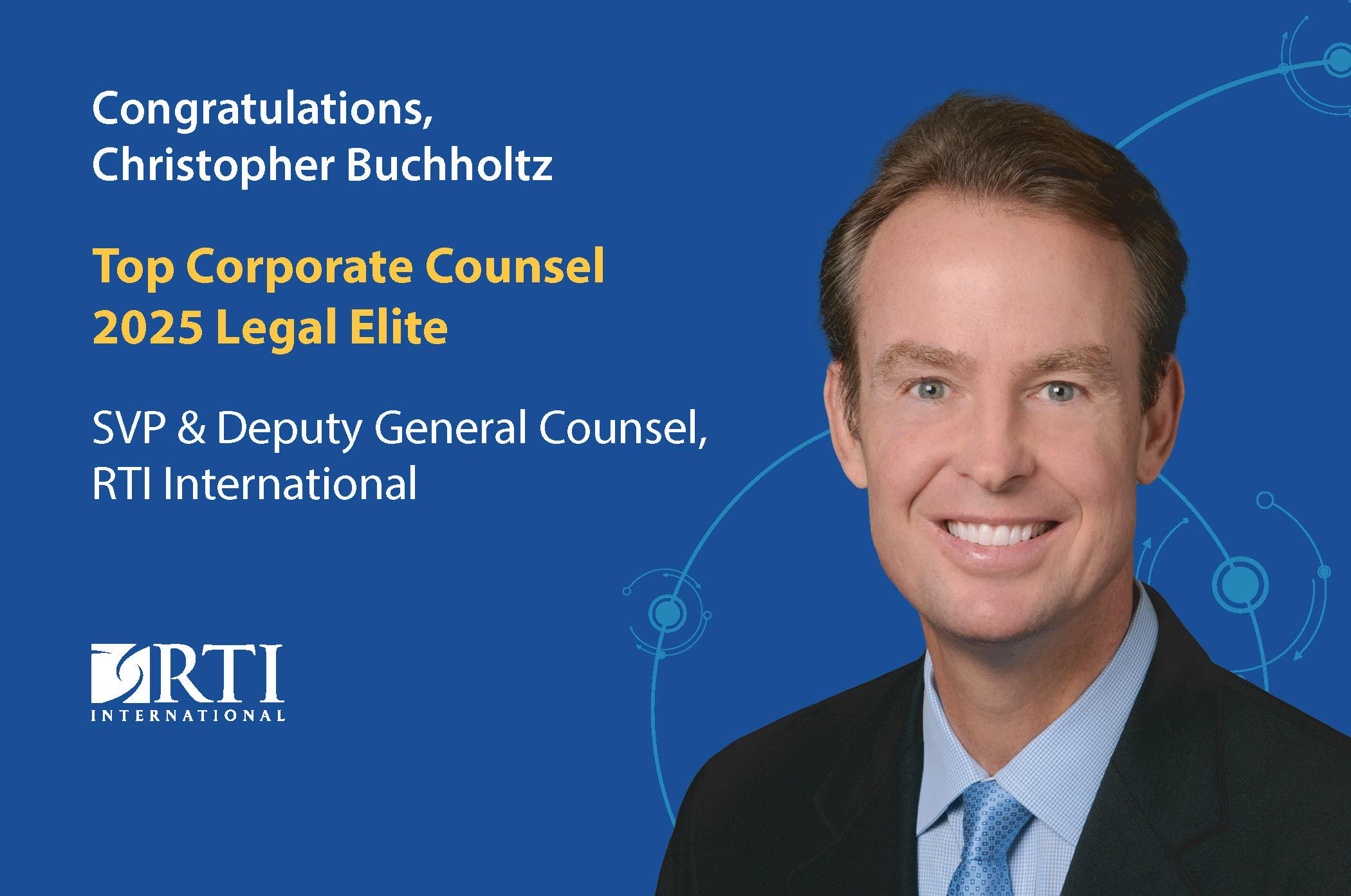






Tha ington Smith
Hometown:Wilson
Undergrad:UNC Chapel Hill

Law school: UNC Chapel Hill School of Law, 1999
Practiced Law: 25 Years



FIRST JOB: Mowing lawns for five families in my neighborhood when I was in the seventh grade. I would spend most Saturdays doing yard work and would make $50 a week.
WORKING SMARTER: I used to get up before dawn to start my work day. During COVID, I quit sacrificing sleep for work whenever possible. Regular sleep has made me more effective and a balanced lifestyle has made me happier.
FAVORITE NORTH CAROLINA PLACE: The High Country – Boone/ Blowing Rock/Banner Elk
MISSION ACCOMPLISHED: Scuba diving at the Great Barrier Reef in Australia
STILL ON BUCKET LIST: Wildlife safari in Africa
STRESS RELIEVER: Zoning out watching Netflix; putting on noisecancelling headphones to listen to music or a podcast
WHY I BECAME A LAWYER: Followed in my dad’s footsteps as a civil litigator for seven years and I did not enjoy my job. One day I accepted a case for a young man accused of selling marijuana. I threw myself into that client’s case and I loved every minute of it. I was able to help the client achieve a good result and I realized I had made a difference in his life. Helping people manage a crisis or get a second chance after making a bad choice is the most fulfilling part of my job.

ALTERNATIVE CAREER CHOICE: Football coach or NFL agent.
YOUR EDGE: Each of my partners is a phenomenal resource when I have questions about one of my cases. Sometimes 15 minutes in a colleague’s office is the X-factor that leads to a positive outcome for my client. I have also had amazing mentors throughout my career, like Wade Smith. Wade is North Carolina’s greatest criminal lawyer, so to have had the privilege to learn from him has been a true gift.
2025 MILESTONES: I plan to travel to the Grand Canyon and several great national parks out West.
FAVORITE PASSIONS: UNC football and basketball. If the Heels are playing, I’m watching.
LAW SCHOOL IN 2 OR 3 YEARS: The sooner someone can get out of law school the better.
ABOUT THARRINGTON SMITH
FOUNDED: 1964
OFFICES: Raleigh
MANAGING PARTNERS: Russell Babb and Evan Horwitz
HOW MANY ATTORNEYS, STAFF: 36 attorneys, 31 staff
KEY SPECIALTIES: Criminal defense, education law, family law and civil litigation.
Robert C. Carpenter
Allen Stahl + Kilbourne, Asheville
Kevin Michael Ceglowski Poyner Spruill, Raleigh
William S. Cherry III
Manning Fulton & Skinner, Raleigh
Jonathan Tristram Coffin Johnston Allison Hord, Charlotte
Edward G. Connette III Essex Richards, Charlotte
Kelly Margolis Dagger Ellis & Winters, Raleigh
Cate Edwards
Edwards Beightol, Raleigh
Patrick H. Flanagan
Cranfill Sumner, Charlotte
Kristen Elizabeth Finlon Gardner Skelton, Charlotte
Jared Edgar Gardner Gardner Skelton, Charlotte
Holly Elizabeth-Ross Hammer Hammer Law, Raleigh
L. Michelle Gessner Gessner Law, Charlotte
Narendra K. Ghosh
Patterson Harkavy, Chapel Hill
Elizabeth R. Gift
Ogletree Deakins Nash Smoak & Stewart, Charlotte
Marc E. Gustafson
Bell Davis Pitt, Charlotte
Michael Clyde Harman Harman Law, Huntersville
Dan M. Hartzog Hartzog Law Group, Raleigh
Katie Weaver Hartzog Hartzog Law Group, Raleigh
Sean Franklin Herrmann
Herrmann Murphy, Charlotte
Elizabeth Binion Hilker
Smith Law Firm, Charlotte
Benjamin R. Holland
Ogletree Deakins Nash Smoak & Stewart, Charlotte
Tamara Lynn Huckert
Strianese Huckert, Charlotte
Donavan John Hylarides
Craige Jenkins Liipfert & Walker, Winston-Salem
Lori P. Jones
Jordan Price Wall Gray Jones Carlton, Raleigh
Kevin S. Joyner
Ogletree Deakins Nash Smoak & Stewart, Raleigh
Patrick E. Kelly
Johnston Allison Hord, Charlotte
Rosemary Gill Kenyon Smith Anderson, Raleigh
Michael A. Kornbluth Kornbluth Ginsberg Law Group, Durham
Dena Beth Langley
Brooks Pierce, Greensboro
Roberta King Latham
King Latham Law, Winston-Salem
Catherine E. Lee
Hedrick Gardner Kincheloe Garofalo, Raleigh
Matthew E. Lee
Milberg Coleman Bryson Phillips Grossman, Raleigh
Andrew William Legg Kornbluth Ginsberg Law Group, Durham
Mary-Ann Leon Leon Law Firm, Greenville
Daniel Christopher Lyon EMP Law, Charlotte
Alice Y. Magnuson Wyrick Robbins, Raleigh
Margaret B. Maloney Maloney Law Associates, Charlotte

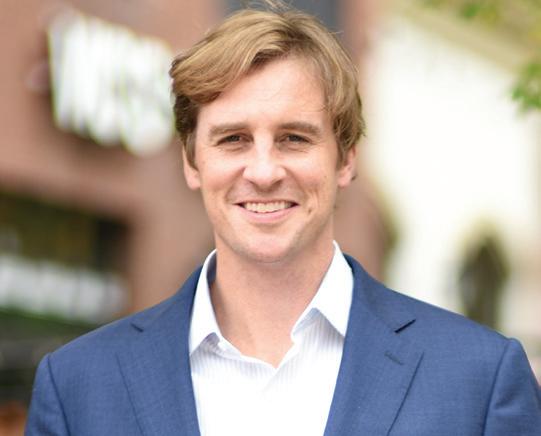
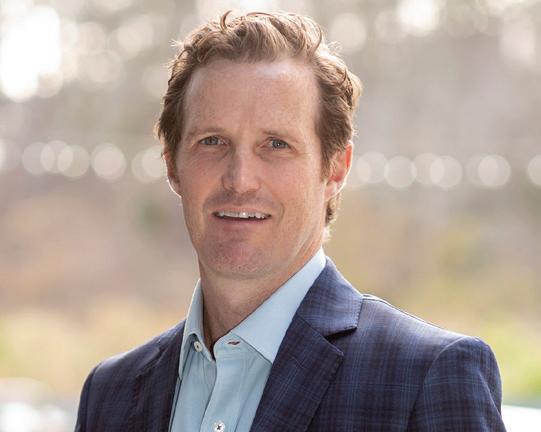
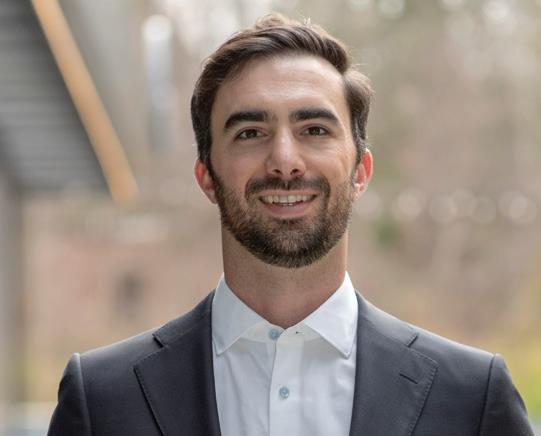
Christine Fernicola Mayhew
Anderson Jones, Raleigh
Karin M. McGinnis Moore & Van Allen, Charlotte
Michael Douglas McKnight
Ogletree Deakins Nash Smoak & Stewart, Raleigh
Brian John McMillan Brooks Pierce, Greensboro
Andrew K. McVey Murchison Taylor & Gibson, Wilmington
Emily Jeffords Meister Law Firm Calorinas, Greensboro
Eliu Felipe Mendez A.G. Linett & Associates, Greensboro
Kevin Patrick Murphy Herrmann Murphy, Charlotte
Sarah Hayward Negus Moore & Van Allen, Charlotte
Laura Noble Noble Law, Charlotte
Daniel J. Palmieri Wyrick Robbins, Raleigh
Linda Nicole Patino Law Offices of L. Nicole Patino, Greensboro
J. Christopher Heydt Philbeck Bailey & Dixon, Raleigh
Charles Grainger Pierce Jr. Van Hoy Reutlinger Adams Pierce, Charlotte
Sabrina P. Rockoff McGuire Wood & Bissette Asheville
Nicholas J. Sanservino Jr. Edwards Beightol, Raleigh
Robert A. Sar
Ogletree Deakins Nash Smoak & Stewart, Raleigh
Jeremy Regan Sayre Fox Rothschild, Raleigh
Edward S. Schenk III Williams Mullen, Raleigh
Kerry A. Shad Smith Anderson, Raleigh
Shannon “Missy” Spainhour Constangy Brooks Smith Prophete, Asheville
Theresa M. Sprain Baker Donelson Bearman Caldwell & Berkowitz, Raleigh
Mimi Soule Soule Employment Law Firm, Raleigh
T. Cullen Stafford Wyrick Robbins, Raleigh
Phillip J. Strach
Nelson Mullins Riley & Scarborough, Raleigh






Hometown:Washington
Undergrad:UNC Chapel Hill

Law school: Campbell University School of Law and MBA ,2004
Practiced Law: 20 years
Family: My wife, Katie, and our daughters, Alston, 10, and Sallie, 6.



FIRST JOB: Working for Larry “Mr. T” Trollinger at Ken’s Quickie Mart next to Granville Towers in Chapel Hill during college. If you bought a keg from there in 1999, I may have carried it out and loaded it up for you.
WORKING SMARTER: I quit focusing on seeking validation from older partners and began focusing more energy on mentoring and building up younger lawyers, which has made me a better lawyer.
FAVORITE NORTH CAROLINA PLACE: On a boat somewhere in the Pamlico River or Sound.
MISSION ACCOMPLISHED: Working with the State Bar and other employment attorneys to launch a board-certified program in employment law, and become one of the first employment attorneys in N.C. to become board-certified.
STILL ON BUCKET LIST: Going back to Europe with more than a backpack and a Eurail pass, mainly sleeping in hostels and train stations, like I did the summer after graduating college.
STRESS RELIEVER: A walk outside always does the trick.
WHY I BECAME A LAWYER: I am the fourth (non-consecutive) generation on my mother’s side to practice law in North Carolina. My father would tell me about Mom’s relatives who had contributed to our community as attorneys, and others who had served our state as judges. That is what initially drew my interest.
ALTERNATIVE CAREER CHOICE: A second, encore career in public service.

YOUR EDGE: I strive to be a trusted adviser to our clients. I understand and appreciate that clients want my counsel and good judgment, not just legal advice.
2025 MILESTONES: I will perform my normal 80/20 analysis of the year, and its post-mortem in December, and set goals for 2025 then.
FAVORITE PASSIONS: My family and legacy are my passions and drive everything that I do. Professionally, I have a passion for growth – both my own and of those younger professionals I mentor, which is the most rewarding part of the practice of law for me.
LAW SCHOOL IN 2 OR 3 YEARS: Personally, two-and-a-half years would have been perfect. Even though I was active on Law Review, Moot Court teams, a trial team, Honor Court and took MBA classes at night, the last semester of law school was unnecessary. But two years would have been too short.
ABOUT WARD & SMITH
FOUNDED: 1895
OFFICES: Asheville, Beaufort, Greenville, New Bern, Raleigh, Wilmington
CO-MANAGING PARTNERS: Brad Evans and Devon Williams HOW MANY ATTORNEYS: staff: 113 attorneys, 150 staff
KEY SPECIALTIES: Litigation, business, tax, real estate, labor and employment, construction, intellectual property and data privacy, personal injury, creditors’ rights, trusts and estates, economic development, government relations, community associations, environmental
Jill Susanne Stricklin
Constangy Brooks Smith Prophete, Winston-Salem
Tory I. Summey Parker Poe, Charlotte
Jessica Beauvais Thaller-Moran Brooks Pierce, Raleigh
Linda D. Tindall Wyrick Robbins, Raleigh
Allison Clarice Tomberlin
Beechler Tomberlin, Winston-Salem
Benton Louis Toups Cranfill Sumner, Wilmington
Joshua Reed Van Kampen Van Kampen Law, Charlotte
Angelique Regail VincentHamacher Robinson Bradshaw & Hinson, Charlotte
Jonathan Wall
Higgins Benjamin, Greensboro
Kyle T. Watson Watson Law Office, Charlotte
Hayley Roper Wells Ward and Smith, Asheville
Devon Diane Williams Ward and Smith, Raleigh
Eric Clifton Williams
Allen Stahl + Kilbourne, Asheville
Benjamin Winikoff
Daggett Shuler Law Firm, Winston-Salem
Virginia M. Wooten
Ogletree Deakins Nash Smoak & Stewart, Charlotte
Kathleen N. Worm Worm Law Firm, Raleigh
F. BRYAN BRICE JR.
Law Offices of Bryan Brice Jr., Raleigh
Stanford D. Baird K&L Gates, Raleigh
Charles S. Carter Earth And Water Law, Raleigh
Billy Clarke Roberts & Stevens, Asheville
Catherine W. Cralle-Jones Law Offices Of F. Bryan Brice Jr., Raleigh
Alexander Elkan Brooks Pierce, Greensboro
John M. Flynn Carruthers & Roth, Greensboro
David A. Franchina McGuireWoods, Charlotte
Robert J. King III Brooks Pierce, Greensboro
Steven J. Levitas Kilpatrick Townsend & Stockton, Raleigh
Peter J. McGrath Jr. Moore & Van Allen, Charlotte
Joseph Andrew Ponzi Brooks Pierce, Greensboro
Amanda Kitchen Short Parker Poe, Charlotte
Christopher Shields Walker Alexander Ricks, Charlotte
Steven D. Weber Parker Poe, Charlotte
Noelle Wooten Baker Donelson Bearman Caldwell & Berkowitz, Charlotte
Mona Lisa Wallace Wallace & Graham, Salisbury
I. Clark Wright Jr. Davis Hartman Wright Attorneys, New Bern
JANET HANEY AMBURGEY
GHMA Law, Asheville
Carole R. Albright Black Slaughter & Black, Greensboro
Lesley Wiseman Albritton Legal Aid Of North Carolina Raleigh
Mary Charles Amerson Ward and Smith, Wilmington
Lisa M. Angel Rosen Law Firm, Raleigh
Marcia H. Armstrong The Armstrong Law Firm, Smithfield
Lillie Ashworth Soni Brendle, Charlotte
Mary Aiken Barrow Tharrington Smith, Raleigh
Rachel Carter Beard Wake Family Law Group, Raleigh
Shelby D. Benton Benton Family Law, Goldsboro







Law O ices of F. Bryan Brice Jr.
Hometown:Wilson
Undergrad:UNC Chapel Hill

Law school: UNC Chapel Hill School of Law, 1990
Practiced Law: 33 Years
Family: Wife, Carson Brice, son, Stephen Brice, 23, daughters Minta Brice, 21, and Cordelia Brice, 19.



FIRST JOB: Paper boy with Vance Young delivering Wilson Daily Times; first law job, clerk for Justice John Webb at N.C. Supreme Court.
WORKING SMARTER: Need to quit one!
FAVORITE NORTH CAROLINA PLACE: Morehead City with family.
MISSION ACCOMPLISHED: Travel to Spain.
STILL ON BUCKET LIST: Travel to New Zealand.
STRESS RELIEVER: Play a tennis match with friends, a round of golf, or spend time with Carson listening to music.
WHY I BECAME A LAWYER: My mother always told me I was going to be a lawyer, like her father, Charles McLean. Also, I was always inspired to help people, and protect the environment.
YOUR EDGE: Cathy Cralle Jones! I have been blessed to have such a good, strong, smart woman as my long time law office partner! I have been so fortunate to have good people work with us, experts, consultants and especially our employees and staff who provide great help, insight, knowledge and desire to help others. And put up with me.

ALTERNATIVE CAREER CHOICE: Therapist
2025 MILESTONES: Continue to represent our clients, protect the environment and make a difference for the betterment of others in our community.
FAVORITE PASSIONS: Music, especially the Grateful Dead, and playing tennis.
LAW SCHOOL IN 2 OR 3 YEARS: Three years
ABOUT LAW OFFICES OF F. BRYAN BRICE JR.
FOUNDED: 1999
OFFICE: Raleigh
MANAGING PARTNER: Self
HOW MANY ATTORNEYS, STAFF: Four attorneys, five staff members
KEY SPECIALTIES: Environmental law
Caitlin Birckhead Tharrington Smith, Raleigh
Andrea Bosquez-Porter Bosquez Porter Family Law, Raleigh
Jennifer M. Bradley Triangle Smart Divorce, Cary
Andrew Steven Brendle Soni Brendle, Charlotte
Amy Lynn Britt Parker Bryan Family Law, Raleigh
Amanda Brisson Cannavo Dozier Miller Law Group Charlotte
Courtney Lynn Carter Arnold & Smith, Charlotte
Chelsea Michelle Chapman McIlveen Family Law Firm, Gastonia
Adrienne R. Cherry Leitner Bragg & Griffin, Monroe
James A. “Al” Clyburn Ward and Smith, Wilmington
Isla N. Tabrizi
Collins Family & Elder Law Group, Monroe
Charles W. Coltrane Coltrane & Overfield, Greensboro
Michelle D. Connell Connnell & Gelb, Raleigh
Phillip Haskell Cowan
Hatch Little Bunn, Raleigh
Jessica Ketchem Culver Dummit Fradin Attorneys At Law, Greensboro
Kavita Christina Desai
James McElroy Diehl, Charlotte
Nathalie M. Doran
Wilson Reives Silverman & Doran, Sanford
Nicole Applefield Engel
Johnston Allison Hord, Charlotte
Steven Bruce Epstein Poyner Spruill, Raleigh
Jonathan Daniel Feit
James McElroy Diehl, Charlotte
Ashley Fillippeli Triangle Smart Divorce, Cary
Joshua L. Finney McIlveen Family Law Firm, Charlotte
Katherine Wiggins Fisher Battle Winslow, Rocky Mount
Kyle Frost
Hamilton Stephens Steele + Martin, Charlotte
Katherine Ann Frye Frye Law Office Raleigh
Maren Tallent Funk
Godley Glazer & Funk, Statesville
Kaylan M. Gaudio
Sodoma Law, Monroe
Wesley Peter Gelb Connell & Gelb, Raleigh
Katie Walsh Gilbert Rech Law, Charlotte
Seth Andrew Glazer Godley Glazer & Funk, Cornelius
Kelley Louise Gondring Gondring Law, Winston-Salem
Nancy L. Grace Wake Family Law Group, Raleigh
Monica R. Guy Kurtz Whitley Guy Sanders & Rainey, Winston-Salem
Brittany Capps Hall
Block Crouch Keeter Behm & Sayed, Wilmington
Rachel D. Rogers Hamrick Charlotte Collaborative Divorce, Charlotte
Tara Austin Harrawood Marcellino & Tyson, Charlotte
Michael S. Harrell
Manning Fulton & Skinner, Raleigh
Tia G. Hartley Law Office Of Tia G. Hartley, Charlotte
James Gregory Hatcher
Hatcher Law Group, Charlotte
R. Maria Hawkins
Wyrick Robbins, Raleigh
Lee Claiborne Hawley
Roberson Haworth Reese, High Point
Jessica B. Heffner Wyrick Robbins, Raleigh
Penelope Lazarou Hefner Sodoma Law, Charlotte
Kara Q. Helms The Helms Firm, Winston-Salem
Evan Horwitz
Tharrington Smith, Raleigh
Paul Doughton Horton, Sodoma Law, Charlotte
Lindsey Ann Houk Waple Houk, Charlotte
Hilary Workman Hux
Garrett Walker Aycoth & Olson Attorneys At Law, Greensboro
Clara Ann Ignich
Bell Davis Pitt, Winston-Salem
Jill Schnabel Jackson
Jackson Family Law, Raleigh
Elizabeth Johnstone James
Hamilton Stephens Steele & Martin, Charlotte







GHMA Law
Hometown:Asheville
Undergrad:University of Tennessee, Knoxville

Law school: Appalachian School of Law, 2008
Practiced Law: 15 Years
Family: Husband of 15 years, Thomas Amburgey, and our 10-year-old daughter and 8-year-old son.



FIRST JOB: My first job was with a criminal defense attorney in Asheville, where I was the only attorney handling family law matters. The attorney encouraged me to find answers by reaching out to other family law attorneys, court personnel and judges. This experience pushed me to build connections and establish relationships with people who became integral to my early practice, and who continue to be valuable colleagues.
WORKING SMARTER: While it might feel satisfying in the moment to send a swift, sharp email, I’ve learned that the short-term relief rarely outweighs the long-term impact such communications can have. Now, I give myself 24 hours to reflect on how I want to respond and what message I truly want to convey.
FAVORITE NORTH CAROLINA PLACE: Old Edwards Inn in Highlands.
MISSION ACCOMPLISHED: Seeing Adele perform in person.
WHY I BECAME A LAWYER: I come from a long line of attorneys on my mother’s side, and my grandfather, Papa Jerry, practiced probate law in California for many years. His tales of clients and their wild cases, some exaggerated (but just barely), kept everyone captivated. I loved visiting his office, sitting at his big desk, eating his candy, and playing with the ceramic monkey on his bookshelf. I knew then I wanted a career I was as invested in as he was in his – and I wanted that monkey! Papa Jerry, who is now 95, gifted me the ceramic monkey when I started practicing law. It sits in my office for my kids to play with, right next to the candy.

2025 MILESTONES: I will retire from the executive committee of the Buncombe County Bar after 10 years of service.
ALTERNATIVE CAREER CHOICE: Costume designer for movies and TV shows.
STILL ON BUCKET LIST: Attend a show during New York Fashion Week.
STRESS RELIEVER: Put my cell phone away, turn on music and sit outside in the sun.
YOUR EDGE: Relationships and friendships I’ve built with fellow attorneys, our incredible office staff, and the dedicated courthouse staff.
FAVORITE PASSIONS: Tennessee football and travel.
LAW SCHOOL IN 2 OR 3 YEARS: Definitely three. Only after starting my practice did I realize how much there was still to learn.
ABOUT GHMA LAW
FOUNDED: 1980
OFFICE: Asheville
MANAGING PARTNER: Patrick McCroskey
HOW MANY ATTORNEYS, STAFF: Two attorneys, two staff
KEY SPECIALTIES: Family law
Stephanie Jenkins
Parker Bryan Family Law, Raleigh
Bradley Jones
Parker Bryan Family Law, Raleigh
Jana Kelly Jones
Jana K. Jones, Charlotte
Alicia Jurney
Parker Bryan Britt Tanner & Jenkins, Raleigh
Tony Kehoe
Gailor Hunt Davis Taylor & Gibbs, Raleigh
Irene Patrice King King Collaborative Family Law, Charlotte
Katherine Hardersen King Wake Family Law Group, Raleigh
Melody Jo King Ward and Smith, Asheville
Julia Anne Kirby Marcellino & Tyson, Charlotte
Carolyn Lovejoy Krueger-Andes Krueger-Andes Law, Charlotte
Matthew Krueger-Andes Krueger-Andes Law, Charlotte
David Matthew Krusch Plumides Romano & Johnson, Charlotte
Jon B. Kurtz
Kurtz Whitley Guy Sanders & Rainey, Winston-Salem
Dara Duncan Larson Duncan Larson Law, Charlotte
Lydia Bree Laughrun Essex Richards, Charlotte
James W. Lea III
Lea/Schultz Law Firm, Wilmington
Lauren Ellis Leader
James McElroy Diehl, Charlotte
Lauren Vaughn Lewis
Essex Richards, Charlotte
Rik Lovette
Rik Lovette & Associates, Raleigh
Jeffrey E. Marshall
Marshall & Taylor, Raleigh
Justin L. Mauney
Wake Family Law Group, Raleigh
Patrick S. McCroskey GHMA Law, Asheville
Angela White McIlveen McIlveen Family Law Firm, Gastonia
Joy Gragg McIver Montford Family Law, Asheville
Jonathan Stephen Melton
Gailor Hunt Davis Taylor & Gibbs, Raleigh
Eric Steven Meredith Jetton Meredith, Charlotte
Jaye Meyer Tharrington Smith, Raleigh
Christopher D. Miller Miller Bowles Cushing, Charlotte
Sarah Dees Miranda Miranda Law Firm, Fayetteville
Jennifer P. Moore Marcellino & Tyson, Charlotte
Jillian Mack Moore Moore Law Group, Graham
Barbara R. Morgenstern Morgenstern Law, Greensboro
Bethany M. Mulhern
Miller Bowles Cushing, Charlotte
Erica R. Nesmith
The Nesmith Firm, Charlotte
Corey Alexander Noland Arnold & Smith, Charlotte
Ashley Lister Oldham
Parker Bryan Family Law, Raleigh
Carolyn T. Peacock Peacock Family Law, New Bern
Victoria Marie Perez
Sodoma Law, Charlotte
Robert A. Ponton Jr. Wyrick Robbins, Raleigh
Manisha Pravinchandra Patel Law Office of Manisha P. Patel, Greensboro
Lauren Taylor Quinn Ward and Smith, New Bern
Bennett D. Rainey
Kurtz Whitley Guy Sanders & Rainey, Winston-Salem
Mark D. Riopel
Hamilton Stephens Steele + Martin, Charlotte
Kimberly R. Robertson Dozier Miller Law Group, Charlotte
Casey Taylor Robinson Garrett Walker Aycoth & Olson Attorneys At Law, Greensboro
Jeffrey Robert Russell Tharrington Smith, Raleigh
Caitlin Elizabeth Ryan Sodoma Law, Charlotte
Claire Joanne Samuels
Charlotte Collaborative Divorce Professionals, Charlotte
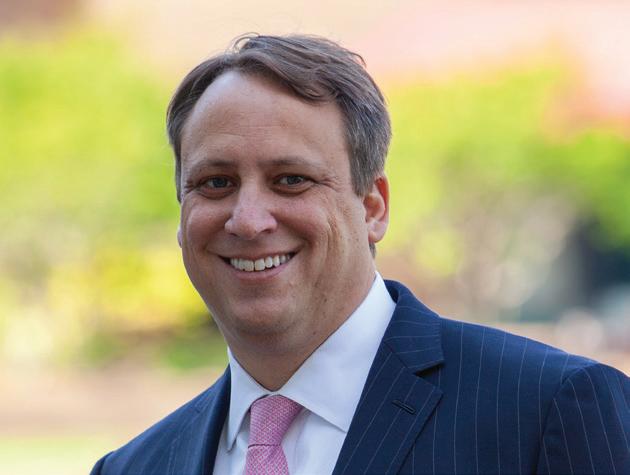
Linda B. Sayed
Block Crouch Keeter Behm & Sayed, Wilmington
Ryan Binderup Schultz
Lea/Schultz Law Firm, Wilmington
David K. Self
David Self Law, Cornelius
Abigail Comfort Seymour Camino Law, Greensboro
Jim Siemens
Siemens Family Law Group, Asheville
Grant Sigmon Sigmon Klein, Greensboro
Susan S. Simos
Craige Jenkins Liipfert & Walker, Winston-Salem
Tonya Graser Smith Grasersmith, Charlotte
Megan E. Spidell
Spidell Family Law, Greensboro
Robin J. Stinson
Bell Davis Pitt, Winston-Salem
Courtney Hamer Smith Tin Fulton Walker & Owen, Charlotte
Rose M. Stout
Smith Debnam Narron, Raleigh
Alice Stubbs Tharrington Smith, Raleigh
Nicole Taylor
Gailor Hunt Davis Taylor & Gibbs, Raleigh
Carrie Tortora Tortora Family Law, Raleigh
John Paul Tsahakis
James McElroy Diehl, Charlotte








Fay Grafton Nuñez
Hometown:Havana
Undergrad: University of Central Florida

Law school: North Carolina Central School of Law, 2014
Practiced Law: Nine years
Family: Wife, Andrea, and children Alex and Alfie.



FIRST JOB: A cashier at Guess at the Dadeland Mall in Miami. It was a great first job and I learned so much about customer service.
FAVORITE NORTH CAROLINA PLACE: Horace-Williams House in Chapel Hill. I got married here, and love this place.
MISSION ACCOMPLISHED: Convinced my sister to move to North Carolina.
STILL ON BUCKET LIST: Still working on my parents.
STRESS RELIEVER: Spending time with my wife and children. Having and making time for quality time with them to me is very important, especially as the kids get older.
WHY I BECAME A LAWYER: To effect change.
YOUR EDGE: Having wonderful mentors and colleagues. This profession can be really isolating at times, and having a network to reach out to is crucial to your success as an attorney.

ALTERNATIVE CAREER CHOICE: Planning parties, which I love to do.
2025 MILESTONES: More family trips and exploring new places.
FAVORITE PASSIONS: Traveling and my family
LAW SCHOOL IN 2 OR 3 YEARS: Three years. I can’t imagine doing it in two.
ABOUT FAY GRAFTON NUÑEZ
FOUNDED: 2006
OFFICES: Raleigh and Asheville
MANAGING PARTNER: William Fay
HOW MANY ATTORNEYS, STAFF: Four attorneys and 14 staff members.
KEY SPECIALTIES: Immigration and criminal law
Shannan Barclay Tuorto Tuorto Family Law, Asheville
Meghan A. Van Vynckt Cordes Law, Charlotte
Theresa Eileen Viera Modern Legal, Charlotte
Danielle Jessica Walle Marcellino & Tyson, Charlotte
Angela Marie Watkins Leitner Bragg & Griffin Law, Monroe
Elise Morgan Whitley Kurtz Whitley Guy Sanders & Rainey, Winston-Salem
Lindsay Woodard Willis Rosen Law Firm, Raleigh
Rebecca Wofford
Wofford Burt, Charlotte
Tiasha L. Wray Wray Law Firm, Charlotte
Arlene M. Zipp
Roberson Haworth & Reese, High Point
Fay Grafton Nuñez, Raleigh
Jorgelina E. Araneda
Araneda Law Firm, Raleigh
Shauna A. Arroyo Arroyo Law, Raleigh
Cynthia A. Aziz Aziz Law Firm, Charlotte
Penni P. Bradshaw
Constangy Brooks Smith Prophete, Winston-Salem
Rosa Maria Corriveau
Ogletree Deakins Nash Smoak & Stewart, Raleigh
Jennifer Cory Womble Bond Dickinson, Charlotte
Amanda Carrano Franklin Moore & Van Allen, Charlotte
Nam Douglass Garfinkel Immigration Law Firm, Charlotte
Alexander John Eiffe
A.G. Linett & Associates, Greensboro
Benjamin Blaise Frear Frear Law, Charlotte
Steven H. Garfinkel Garfinkel Immigration Law Firm, Charlotte
David John Garrett Maynard Nexsen, Raleigh
Lindsey Taylor Goehring
Charlotte Immigration Law Firm, Charlotte
Vanessa Ann Gonzalez Law Office Of Vanessa A. Gonzalez, Wilmington
Hannah Faith Little Garfinkel Immigration Law Firm, Charlotte
Carlos Andres Lopez The Lopez Law Firm, Charlotte
Jeremy L. McKinney McKinney Immigration Law, Greensboro
George N. Miller Dozier Miller Law Group, Charlotte
Colleen Forcina Molner Garfinkel Immigration Law Firm, Charlotte
Carlos Alexander Osegueda Jr. A.G. Linett & Associates, Greensboro
Helen Parsonage Elliot Morgan Parsonage, Winston-Salem
John L. Pinnix Allen Pinnix, Raleigh
Nicola Ai Ling Prall Jackson Lewis, Raleigh
Ann Robertson
Robertson Immigration Law Firm, Raleigh
Stephen Hugh Smalley
Ogletree Deakins Nash Smoak & Stewart, Raleigh
Helen Laura Tarokic Helen Tarokic Law, Wilmington
Douglas Bradley Thie Clawson and Staubes, Charlotte
Carla Vestal
Vestal Immigration Law, Davidson
DAVID W. SAR
Brooks Pierce, Greensboro
Alton Luther Absher III Kilpatrick Townsend & Stockton, Winston-Salem
Ani Agrawal NK Patent Law, Raleigh
Stephen Smith Ashley Jr. Ashley Law Firm, Charlotte
William Barker Cannon Parker Poe, Raleigh







Hometown:Roanoke, Virginia, originally, but now Greensboro
Undergrad: Duke University

Law school: Yale Law School, 1996
Practiced Law: 28 years
Family: Two daughters, one in grad school and one in her senior undergrad year.



FIRST JOB: Video game arcade attendant. I collected quarters from the games, made change, did limited repairs, tried to stave off fights and played a lot of free games when off-duty, right? Gen Alpha has no idea what this job was or why it was the best summer gig.
WORKING SMARTER: Showing up way, way early. Now I’m just early.
FAVORITE NORTH CAROLINA PLACE: Courts – both judicial and tennis.
MISSION ACCOMPLISHED: Summitted Mount Kilimanjaro
STILL ON BUCKET LIST: Seeing the Northern Lights in upper Sweden
STRESS RELIEVER: Happy video games
WHY I BECAME A LAWYER: To help people with their problems.
ALTERNATIVE CAREER CHOICE: Astronaut
YOUR EDGE: Dedication
FAVORITE PASSIONS: Tennis and audiobooks

2025 MILESTONES: Two kids out of undergrad, learning Russian and visiting the Pyramids
LAW SCHOOL IN 2 OR 3 YEARS: Three. More time is beneficial to build a strong foundation in legal reasoning and advocacy.
ABOUT BROOKS PIERCE
FOUNDED: 1897
OFFICES: Greensboro, Raleigh, Wilmington
MANAGING PARTNER: James Adams II (effective Feb. 1) HOW MANY ATTORNEYS, STAFF: About 118 attorneys, 75 staff members.
KEY SPECIALTIES: Complex litigation; media, entertainment and communications; corporate and securities; international law; technology and intellectual property; telecommunications; sustainability and environmental; labor and employment; banking; hospitality; construction, surety, land use and development; health care; state and federal governmental relations; tax; wealth management; and white-collar defense matters.
Angela Powers Doughty Ward and Smith, New Bern
Kathryn McDaniel Eyster Tepper Eyster, Raleigh
Eva Gullick Frongello Parker Poe, Raleigh
Darrell A. Fruth Smith Anderson, Raleigh
Steven D. Gardner
Kilpatrick Townsend & Stockton, Winston-Salem
Michele M. Glessner Moore & Van Allen, Charlotte
John Christopher Jackson Morningstar Law Group, Raleigh
Ashley Johnson
Dogwood Patent And Trademark Law, Raleigh
John Timothy Kivus Morningstar Law Group, Raleigh
Shawna Cannon Lemon Stanek Lemon, Raleigh
James L. Lester MacCord Mason, Greensboro
Kevin R. Lynn
Womble Bond Dickinson, Raleigh
Douglas William Meier
NK Patent Law, Raleigh
Justin R. Nifong NK Patent Law, Raleigh
Kelli Ovies Womble Bond Dickinson, Raleigh
Daniel S. Porper Wyrick Robbins, Raleigh
William Kevin Ransom Moore & Van Allen, Charlotte
Jeffrey J. Schwartz Schwartz Law Firm, Charlotte
Steven N. Terranova Withrow Terranova, Apex
Christina Davidson Trimmer Shumaker Loop & Kendrick, Charlotte
Jennifer Van Doren Morningstar Law Group, Raleigh
Henry B. Ward III Bradley, Charlotte
Emmett Weindruch Holland & Knight, Charlotte
Devon E. White Wyrick Robbins, Raleigh
Benjamin Withrow Withrow Terranova, Apex
J. SCOTT FLOWERS
Hutchens Law Firm, Fayetteville
Noah Breen Abrams Abrams & Abrams, Raleigh
Ryan James Adams Adams Howell, Raleigh
David Neal Allen Allen Chesson, Charlotte
Philip S. Anderson Van Winkle Law Firm, Hendersonville
Chad Alan Archer Blanco Tackabery Attorneys At Law, Winston-Salem
Heather Tonelli Baker Skidmore Law Group, Raleigh
Dauna L. Bartley
The Brocker Law Firm, Cary
Jonathan A. Berkelhammer Ellis & Winters, Greensboro
Robert B. Blackerby
Harris Creech Ward & Blackerby, New Bern
Ashley Kamphaus Brathwaite Ellis & Winters, Raleigh

Matthew William Buckmiller
Buckmiller Boyette Frost, Raleigh
Anthony T. Capitano
Bishop Dulaney Joyner & Abner, Charlotte
John H. Capitano
Kirk Palmer & Thigpen, Charlotte
Bo Brandon Caudill Villmer Caudill, Charlotte
James P. Cooney III Womble Bond Dickinson, Charlotte
Steven Corriveau Martin & Jones, Raleigh
Eric M. David Brooks Pierce, Raleigh
Alexandra Davidson Moore & Van Allen, Charlotte
Kearns Davis Brooks Pierce, Greensboro
Michael D. DeFrank Wyrick Robbins, Raleigh
Fred William DeVore IV Devore Acton & Stafford, Charlotte
Mark Doby Wallace & Graham, Salisbury
Alan W. Duncan
Mullins Duncan Harrell Russell, Greensboro
Robinson & Lawing, LLP provides a broad range of legal services to clients throughout North Carolina. The firm consists of exceptional attorneys and a dedicated professional staff who are steadfastly committed to providing quality legal services to clients while maintaining the highest professional standards. Committed to the tradition of excellence.
Bryan Thompson, a partner with Robinson & Lawing, LLP in Winston-Salem specializes in Elder Law, Wills and Estate Planning, Trusts and Estates, Guardianship, Corporate Law, Collections, Taxation, and Real Estate. Thompson has been a practicing attorney since 1999.










Hutchens Law Firm
Hometown:Warsaw
Undergrad: East Carolina University

Law school: Campbell School of Law, 2003
Practiced Law: 21 years
Family: Wife, Robin, and our daughters. Jana is a 1-L at Campbell Law; Shayne, a high school senior; Carlie, third grade.



FIRST JOB: Working at a lumberyard in Rose Hill for three summers, where I learned a lot of important life lessons.
WORKING SMARTER: I was lucky enough to have a “caboose baby” later in life and it made me realize how much time I had missed with my first two daughters through work.
FAVORITE NORTH CAROLINA PLACE: Topsail Island. Duplin County is a close second.
MISSION ACCOMPLISHED: I can’t think of anything that I would say I am ready to check off the list and be done with it.
STILL ON BUCKET LIST: So many things I want to see and do, that I can’t narrow them down to a list.
STRESS RELIEVER: Spending time with my family.
WHY I BECAME A LAWYER: I was fortunate growing up in Warsaw to know some fine lawyers like Gerald Ludlum, Gene Thompson and Reggie Kenan. Watching them inspired me. That and Atticus Finch.
ALTERNATIVE CAREER CHOICE: General contractor

YOUR EDGE: The people I work with. Chief among them are my mentor, Terry Hutchens, and long-time paralegal, Paula Register.
2025 MILESTONES: I will be a co-managing partner of my firm in 2025 and I hope to continue to guide our ship in the right direction.
FAVORITE PASSIONS: Hunting (anything in season) and travel (near and far).
LAW SCHOOL IN 2 OR 3 YEARS: Three years. There is a seasoning/maturing process in law school that shouldn’t be cut short.
ABOUT HUTCHENS LAW FIRM
FOUNDED: 1980
OFFICES: Charlotte, Fayetteville, Leland and Southern Pines
MANAGING PARTNER: H. Terry Hutchens
HOW MANY ATTORNEYS, STAFF: 35 attorneys, 159 staff
KEY SPECIALTIES: Business law, litigation, real estate, creditor’s rights
Christy Cochran Dunn
Young Moore And Henderson, Raleigh
Joshua B. Durham Bell Davis Pitt, Charlotte
Andrew Larry Fitzgerald
Fitzgerald Litigation, Winston-Salem
Murphy Horne Fletcher McGuire Wood & Bissette, Asheville
Jeremy Stuart Foster Clawson And Staubes, Charlotte
Robert W. Fuller III Alignment Legal, Huntersville
Charles George Wyrick Robbins, Raleigh
Reginald B. Gillespie Jr. Wilson Ratledge, Raleigh
Christopher T. Graebe Morningstar Law Group, Raleigh
Jeffrey C. Grady J. Grady Law, Charlotte
L. Cooper Harrell
Mullins Duncan Harrell Russell, Greensboro
Kirkland Hardymon, Rayburn Cooper & Durham, Charlotte
James Hash
Everett Gaskins Hancock Tuttle Hash, Raleigh
Scott Hazlegrove Wyrick Robbins, Raleigh
John Alexander Heroy
James McElroy Diehl, Charlotte
Karen Marie Hinkley
Davis Hartman Wright Attorneys, New Bern
Adam Samuel Hocutt Dozier Miller Law Group, Charlotte
Howard Clay Hodges Jr. Harris Sarratt Hodges, Raleigh
Michael James Hoefling Johnston Allison Hord, Charlotte
Matthew M. Holtgrewe Maynard Nexsen, Charlotte
John W. Holton
Miller Monroe Plyler, Raleigh
Ann Patton Hornthal Roberts & Stevens, Asheville
Robert N. Hunter Jr. Higgins Benjamin, Greensboro
Michael Ingersoll Womble Bond Dickinson, Charlotte
Melody Jewell Jolly Cranfill Sumner, Wilmington
Amanda Patricia Just Ragsdale Liggett, Raleigh
Patrick Michael Kane
Fox Rothschild, Greensboro
Charles Bailey King Jr. Bradley, Charlotte
Kimberly Jill Kirk
Johnston Allison Hord, Charlotte
Ben E. Klein
Sigmon Klein, Greensboro
Heryka Rodriguez Knoespel McGuireWoods, Charlotte
Kenneth T. Lautenschlager
Johnston Allison Hord, Charlotte
Michael Aaron Lay
Hamilton Stephens Steele + Martin, Charlotte
Sara R. Lincoln
Lincoln Derr, Charlotte
Trey Lindley, Lindley Law, Charlotte
Adam Gregory Linett
A.G. Linett & Associates, Greensboro
Jeffrey Anderson Long
James deNobriga Long, Charlotte
Harrison A. Lord
Lord & Lindley, Charlotte
Lesley Skye MacLeod Ragsdale Liggett, Raleigh
Jeremy Scott Maddox
Law Offices Of James Scott Farrin, Charlotte
Edward Hallett Maginnis Maginnis Law, Raleigh
Dennis Lee Martin Jr.
Roberts & Stevens, Asheville
Robert R. Marcus Bradley, Charlotte
John D. Martin Cranfill Sumner, Raleigh
Elizabeth A. Martineau Martineau King, Charlotte
Moulton Braxton Massey IV Hardee Massey & Blodgett, Greenville
John M. McCabe
Law Offices Of John M. McCabe, Cary
Thomas Richmond McPherson III McGuireWoods, Charlotte
Jason A. Miller
Miller Monroe Plyler, Raleigh
Michael Mitchell
Smith Anderson Blount Dorsett Mitchell & Jernigan, Raleigh
Jeffrey R. Monroe
Miller Monroe Plyler, Raleigh







Allison Mullins
Turning Point Litigation, Greensboro
Sammy M. Naji
Triangle Legal, Raleigh
Brandon S. Neuman
Nelson Mullins Riley & Scarborough, Raleigh
Lauren O. Newton
Tin Fulton Walker & Owen, Charlotte
Jeffrey E. Oleynik
Brooks Pierce, Greensboro
David J. Overton Ricci Law Firm, Raleigh
Michael J. Parrish
Ward and Smith, New Bern
K. Alan Parry Parry Law, Chapel Hill
Corey Vaughn Parton Parton Law, Charlotte
Kathleen Elizabeth Perkins
Hunton Andrews Kurth, Charlotte
Jimmie W. Phillips Jr. Brooks Pierce, Greensboro
Amy E. Richardson
Harris Wiltshire & Grannis, Raleigh
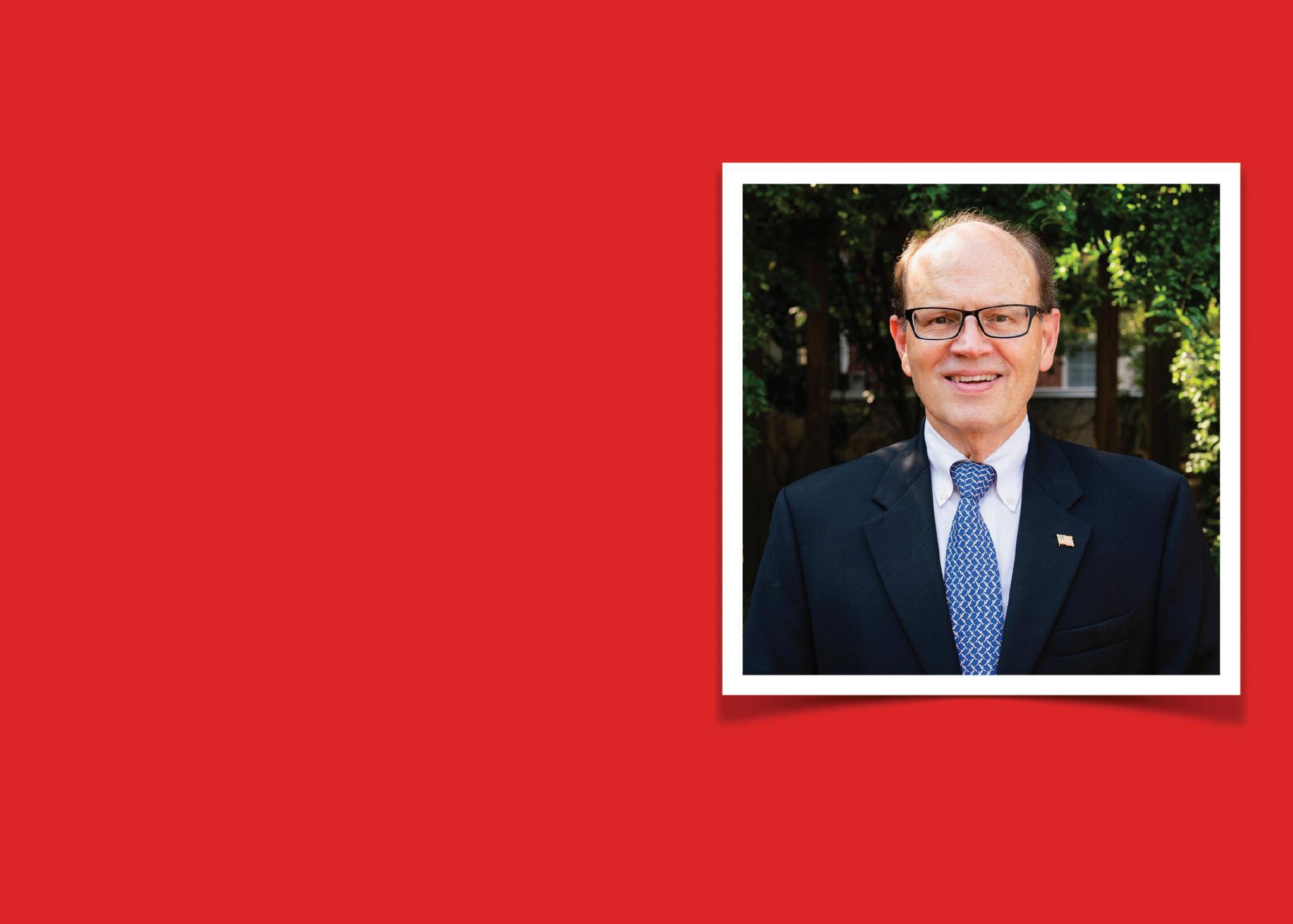






ISAACSON SHERIDAN
Hometown:Greensboro
Undergrad: UNC Chapel Hill

Law school: Wake Forest University School of Law, 1982
Practiced Law: 42 years
Family: Wife, Jill R. Wilson, daughters, Sarah Castellano and Allison Isaacson; one grandchild on the way.



FIRST JOB: Dishwasher at Stamey’s BBQ at age 14. Promoted to hushpuppy maker that same summer.
WORKING SMARTER: Changed from handing out paper booklets at every rezoning hearing to using PowerPoint for presentations at most public hearings.
FAVORITE NORTH CAROLINA PLACE: For family visits: Bald Head Island; For golf: Banner Elk
MISSION ACCOMPLISHED: Playing the Old Course at St. Andrews with my Dad for my 50th birthday.
STILL ON BUCKET LIST: Play Augusta National Golf Club
STRESS RELIEVER: Play golf with friends.
WHY I BECAME A LAWYER: I interviewed James Fallows, President Jimmy Carter’s speechwriter, at the Oval Office in 1978 about speechwriting as a major at UNC. He suggested I attend law school to learn more about our Constitution and governance, to prepare for that or any career, and to learn how to think about issues more logically. I met my wife in law school, but she said she would not marry me until I passed the bar exam, so I had a little extra pressure! I joined my dad’s firm right out of law school.

ALTERNATIVE CAREER CHOICE: Speechwriter for president of U.S.
YOUR EDGE: Working with smart, dedicated attorneys and paralegals.
2025 MILESTONES: Take family to Europe and attend the Ryder Cup Tournament.
FAVORITE PASSIONS: Outside of family: Community involvement and golf.
LAW SCHOOL IN 2 OR 3 YEARS: Three years. Need time to absorb and understand our legal system and the way nearly every area of law affects our clients; need ample time for practical experience.
ABOUT ISAACSON SHERIDAN FOUNDED: 1980
OFFICES: Greensboro
MANAGING PARTNER: Tessa Leftwich
HOW MANY ATTORNEYS, STAFF: Nine attorneys, 10 staff members
KEY SPECIALTIES: Real estate transactions and development, including land use law; corporate and general business; commercial litigation.
Matthew Scott Roberson McGuire Wood Bissette, Asheville
Morgan Hunter Rogers Parker Poe, Charlotte
Erik M. Rosenwood Rosenwood Rose & Litwak, Charlotte
Alan M. Ruley Bell Davis Pitt, Winston-Salem
Megan Sadler Venn Law Group, Charlotte
Jay C. Salsman
Harris Creech Ward & Blackerby, New Bern
William Kirk Sanders
Hendrick Bryant Nerhood Sanders Otis, Winston-Salem
Joseph Anthony Schouten Ward and Smith, Raleigh
W. Bradford Searson Barbour Searson Jones Cash, Asheville
Thomas Hamilton Segars, Ellis & Winters, Raleigh
Samuel A. Slater Wyrick Robbins, Raleigh
Allen Smith
Hedrick Gardner Kincheloe Garofalo, Charlotte
Eric Spengler Spengler & Agans, Charlotte
Luther D. Starling Jr. Daughtry Woodard Lawrence & Starling, Smithfield
James B. Stephenson II Stephenson Law, Cary
Jeffery Stoddard, McAngus Goudelock & Courie, Wilmington
Walter L. Tippett Jr. Williams Mullen, Raleigh
Christopher Donald Tomlinson Moore & Van Allen, Charlotte
Allen Nelson Trask III Ward and Smith, Wilmington
Anna Claire Turpin
Henson Fuerst, Raleigh
Jason Nolan Tuttle
Everett Gaskins Hancock Tuttle Hash, Raleigh
Jennifer K. Van Zant Brooks Pierce, Greensboro
Jessica Blair Vickers Manning Fulton & Skinner, Raleigh
Stephen Brian Walker
Garrett Walker Aycoth & Olson Attorneys At Law Greensboro
F. Marshall Wall Cranfill Sumner, Raleigh
Zachary D. Walton
Martineau King, Charlotte
Judson A. Welborn
Manning Fulton & Skinner, Raleigh
Dixie T. Wells
Ellis & Winters, Greensboro
Martin L. White
Johnston Allison Hord, Charlotte
Kevin G. Williams
Bell Davis Pitt, Winston-Salem
David C. Wright III
Robinson Bradshaw & Hinson, Charlotte
MARC L. ISAACSON
Isaacson Sheridan, Greensboro
Derek J. Allen
Allen Stahl + Kilbourne, Asheville
Charles N. Anderson Jr. Ellis & Winters, Raleigh
Charles V. Archie Wyrick Robbins, Raleigh
Mary Burgett Ashley
Ashley Law Firm, Charlotte
Anthony J. Barwick
Brooks Pierce, Raleigh
Evan Michael Bass Moore & Van Allen, Charlotte
Susan R. Benoit Hutchens Law Firm Fayetteville
Jonathan M. Bogues
Michael Best & Friedrich, Raleigh
Scott Kenyon Burger
Allen Stahl + Kilbourne, Asheville
Margaret Shea Burnham Maynard Nexsen, Greensboro
Alison R. Cayton
Manning Fulton & Skinner, Raleigh
Barbara R. Christy Schell Bray, Greensboro
Louis Penn Clarke Longleaf Law Partners, Raleigh
Nathaniel H. Cook
Block Crouch Keeter Behm & Sayed, Wilmington
Joseph B. Dempster Jr. Poyner Spruill, Raleigh
James Scott Efird
St. Amand & Efird, Charlotte
Susan Y. Ellinger Ellinger & Carr, Raleigh
Don T. Evans Jr.
Clark Newton Evans, Wilmington
Randall Wayne Faircloth Regent Law, Charlotte
Andrew Steven Felt Akerman, Winston-Salem
Walter D. Fisher Jr. Troutman Pepper Hamilton Sanders, Charlotte
Jennifer Flynn Carter Law Group, Salisbury
Stephen Francis Horne III Horne and Horne, Greenville
Samuel B. Franck Ward and Smith, Wilmington
Robert M. Friesen Robbins May Rich, Pinehurst
Jonathan Peter Goldberg
Alexander Ricks, Charlotte
Michelle Gonzalez Ward and Smith, Raleigh
Tikkun A.S. Gottschalk Searson, Jones, Gottschalk & Cash, Asheville
Jennifer M. Hall Wyrick Robbins, Raleigh
James Bryant Haynes Brooks Pierce, Greensboro
Thomas Patrick Hockman Maynard Nexsen, Greensboro
Scott Morgan Holmes Murchison Taylor Gibson, Wilmington
Allison Dixon Howard Stallings Law Firm, Raleigh
Justin K. Humphries The Humphries Law Firm, Wilmington
Susan K. Irvin Irvin Law Group, Cornelius
Peter U. Kanipe McGuire Wood & Bissette, Asheville
John W. King Jr. John W. King, New Bern
William B. Kirk Jr. Kirk Palmer & Thigpen, Charlotte
William F. Kirk Regent Law, Charlotte
Benjamin R. Kuhn Ragsdale Liggett, Raleigh
Amy C. Lanning
Blanco Tackabery & Matamoros, Winston-Salem
Parker Cheatham Lee Person & Lee, Fayetteville
Robert George Lindauer Jr., Johnston Allison Hord, Charlotte
G. Grey Littlewood Littlewood Law, Raleigh
Nicole Sabourin Loeffler
Weatherspoon & Voltz, Raleigh
Timothy P. Logan, Parker Poe, Charlotte
Sarah Robinson Lucente
Kunkleman Lucente, Charlotte
Jeffery J. Malarney
Jeff Malarney, Kitty Hawk
LaDeidre Dianne Matthews Fox Rothschild, Charlotte
John M. May
Robbins May & Rich, Pinehurst
James C. McCaskill Longleaf Law Partners, Raleigh
Craig T. McCall
The McCall Law Firm, Raleigh
Whitney Seara McCrea Whitney S. McCrea, Durham
Gary T. McDermott McDermott Law, Waxhaw
Heather Dawn McDowell Ellinger & Carr, Raleigh
Daniel Adam Merlin Alexander Ricks, Charlotte
Erin Cowan Mosley Maynard Nexsen, Greensboro
David William Murray Murray Law Firm, Charlotte
Alexander R.W. Paschal Roberts & Stevens, Asheville
Brian Thomas Pearce Maynard Nexsen, Greensboro
Christina Freeman Pearsall Schell Bray, Greensboro
Jeanne A. Pearson
Johnston Allison Hord, Charlotte
James K. Pendergrass Pendergrass Law Firm, Raleigh
Stephen J. Perry Wyrick Robbins, Raleigh
Samuel S. Price Stephenson Law, Cary
Robert J. Ramseur Jr. Ragsdale Liggett, Raleigh
Jonathan Scott Raymer Black Slaughter & Black, Greensboro
Holden Reaves Reaves Law, Fayetteville
John F. Renger III Renger Reynolds, Charlotte
Shayla Christine Richberg Richberg Law, Durham
John R. Rose
Goosmann Rose Colvard Cramer, Asheville
Christopher T. Salyer Hutchens Law Firm, Fayetteville




Heidi E. Royal Law
Hometown:Memphis, Tennessee
Undergrad: Rhodes College (Memphis)

Law school: University of Georgia School of Law, 2004
Practiced Law: 20 years
Family: Dog Mom to 14-year-old Annie and lots of extended family in Tennessee.



FIRST JOB: My parents opened a franchise yogurt store when I was in middle school. I was in charge of payroll. My grandmother taught me how to calculate withholdings, which were recorded in an old school ledger, and to write the paychecks by hand.
WORKING SMARTER: I quit saying “Yes” to everything. There is not enough time to do everything, so I focus on the people and things that are most important in my life.
FAVORITE NORTH CAROLINA PLACE: Spa at the Grove Park Inn.
MISSION ACCOMPLISHED: An amazing trip to Patagonia.
STILL ON BUCKET LIST: Too many places that I want to visit to list!
STRESS RELIEVER: A massage or a nap.
WHY I BECAME A LAWYER: I always wanted to be a doctor, and I majored in biology in college. I later became interested in marine biology, but, as my father pointed out, I was not sure I could support myself studying coral reefs. I decided to go to law school because I thought it would give me many different career paths.

ALTERNATIVE CAREER CHOICE: Private investigator
YOUR EDGE: Excellent mentors, especially Christy Reid at Robinson Bradshaw, who passed away in 2014. I would not be where I am without Christy or my years at Robinson Bradshaw.
2025 MILESTONES: Hopefully a new puppy to keep Annie company. Eighth year of private practice with my own firm. I started by myself and now there are four.
FAVORITE PASSIONS: Travel and live music.
LAW SCHOOL IN 2 OR 3 YEARS: Three. You have the rest of your life to work as a lawyer.
ABOUT HEIDI E. ROYAL LAW
FOUNDED: 2017
OFFICE: Charlotte
MANAGING PARTNER: Self
HOW MANY ATTORNEYS, STAFF: Four attorneys, five staff
KEY SPECIALTIES: Trusts and estates
Scott Andrew Schaaf
Womble Bond Dickinson, Winston-Salem
Lawrence J. Shaheen Jr. Singh, Davidson
Douglas John Short
Manning Fulton & Skinner, Raleigh
Kyle Abraham Smalling Capital City Law Wake Forest
Chris Stevenson
Kirk Palmer & Thigpen, Charlotte
Thomas E. Terrell Jr. Fox Rothschild, Greensboro
Lindsay Parris Thompson Van Winkle Law Firm, Asheville
Anna Hartzog Tison Brooks Pierce, Raleigh
Katheline Tran McCall Law Firm, Raleigh
David Eric Wagner
K&L Gates, Raleigh
Cameron Todd Ware Johnston Allison Hord, Charlotte
Eric A. Vernon Wyrick Robbins, Raleigh
Nikhil Vyas Vyas Realty Law Raleigh
Robert Wall II Brady & Kosofsky, Charlotte
William H. Weatherspoon Jr. Weatherspoon & Voltz, Raleigh
Cameron Clark Winfrey Ward and Smith, Raleigh
Heidi Royal Law, Charlotte
Abby Lund Adams Kohut Adams, Wilmington
S. Kyle Agee
Johnston Allison Hord, Charlotte
David Eric Anderson
David E. Anderson, Wilmington
Jackie W. Bedard Bedard Law, Cary
Brian Carl Bernhardt Fox Rothschild, Charlotte
Chris N. Bobby
Manning Fulton & Skinner, Raleigh
Julie Marion Bradlow DarrowEverett, Charlotte
Gwendolyn C. Brooks Kennon Craver, Durham
Stephen Aaron Brown
Young Moore And Henderson, Raleigh
Joshua D. Bryant
Smith Anderson, Raleigh
Diane Blackburn Burks
Katten Muchin Rosenman, Charlotte
David Allen Burns
Wyrick Robbins, Raleigh
Stephen T. Byrd
Manning Fulton & Skinner, Raleigh
David R. Chambers
Chambers Ennis, Raleigh
Ansley Chapman Cella
Smith Anderson, Raleigh
John R. Cella Jr.
Ragsdale Liggett, Raleigh
Christian P. Cherry
Crisp Cherry McCraw, Charlotte
Lynn F. Chandler
Shumaker Loop & Kendrick, Charlotte
Sandra M. Clark
Manning Fulton & Skinner, Raleigh
Thomas H. Cook Jr. Wyrick Robbins, Raleigh
Thomas A. Cooper
Austin Cooper Legal, Charlotte
Stephanie Daniel
Kirk Palmer & Thigpen, Charlotte
Janice L. Davies
Davies Law, Charlotte
Cristine Rose Dixon
Craige Jenkins Liipfert & Walker, Winston-Salem
Doris Jordan Dixon Schell Bray, Chapel Hill
David T. DuFault
Sodoma Law, Charlotte
Charles Joseph DelPapa Wyrick Robbins, Raleigh
Jordan L. Faulkner
Young Morphis Bach & Taylor, Hickory
Daniel Brinson Finch Envisage Law, Raleigh
Elinor J. Foy Wyrick Robbins, Raleigh
Kara Gansmann Cranfill Sumner, Wilmington
Edward Weede Griggs Womble Bond Dickinson, Winston-Salem
Mary Robinson Hervig Roberts & Stevens, Asheville
Robyn Hicks-Guinn Hicks-Guinn Law, Charlotte
Mark J. Hale Jr.
Baddour, Parker, Hine & Hale, Goldsboro
John Randolph Hemphill Hemphill Gelder, Raleigh
Reed J. Hollander
Young Moore And Henderson, Raleigh
Timothy William Jones
Jones Branz Whitaker, Raleigh
Jill Lynn Peters Kaess
Lee Kaess, Wilmington
John G. Kelso
Van Winkle Law Firm, Asheville
Adam Gates Kerr
Kerr Law, Greensboro
Joseph A. Kimmet Wyrick Robbins, Raleigh
Amy S. Klass Fox Rothschild, Greensboro
Meghan Naomi Knight Lynch & Eatman, Raleigh
Margaret Troy Kocaj Kocaj Consulting, Charlotte
Jennifer LJ Koenig Schell Bray, Greensboro
Paula Alyse Kohut
Kohut Adams & Randall, Wilmington
Richard Alan Kort
McGuire Wood & Bissette, Asheville
Harris M. Livingstain McGuire Wood & Bissette, Asheville
Paul H. Livingston Jr. Schell Bray, Greensboro







Ma ing Fulton & Ski er
Hometown:Salt Lake City
Undergrad: BYU

Law school: J. Reuben Clark Law School - 2019
Practiced Law: 5 years
Family: Husband



FIRST JOB: Testing literacy software for bugs in high school.
WORKING SMARTER: I’ve learned the value of making phone calls rather than defaulting to email.
FAVORITE NORTH CAROLINA PLACE: Western North Carolina mountains
MISSION ACCOMPLISHED: See a Broadway show in New York City
STILL ON BUCKET LIST: Visit Italy
STRESS RELIEVER: Outdoor walk with an audiobook.
WHY I BECAME A LAWYER: To solve problems and help people build their businesses.
ALTERNATIVE CAREER CHOICE: Teacher
YOUR EDGE: Supportive family and friends.

2025 MILESTONES: 2025 milestones are growing the Raleigh chapter of the Women’s Franchise Network and hosting the 14th annual Manning Fulton Franchise Success Summit.
FAVORITE PASSIONS: History and musical theater.
LAW SCHOOL IN 2 OR 3 YEARS: Three years is acceptable if there were more opportunities for practical classes in the third year.
ABOUT MANNING FULTON & SKINNER
FOUNDED: 1955
OFFICES: Raleigh and Durham
MANAGING PARTNER: Judson Welborn
HOW MANY ATTORNEYS, STAFF: 40 attorneys, 35 staff members
KEY SPECIALTIES: Commercial real estate, complex and commercial litigation, condemnation and eminent domain, corporate law and mergers and acquisitions, employment law, franchise and distribution.
Robert D. Lyerly Jr. Maynard Nexsen, Charlotte
Lauren Campbell Maxie NC Planning, Cary
William Thomas McCuiston Jr. McCuiston Law Offices, Cary
Blaire McClanahan Law Offices Of Cheryl David, Greensboro
Mitchell Kemp Mosley Narron Wenzel, Raleigh
Lawrence Moye IV Womble Bond Dickinson, Raleigh
Caroline Corry Munroe Blanco Tackabery Attorneys At Law, Winston-Salem
Michael Christian Murray Murray Moyer, Raleigh
Andrew Lamberson Nesbitt Nesbitt Law, Charlotte
Richard P. Nordan Wallace Nordan, Raleigh
Holly Berry Harris Norvell Johnston Allison Hord, Charlotte
Tanya Nicole Oesterreich Oesterreich Law, Concord
Jason R. Page Law Office Of Jason R. Page, Wilson
Jonathan M. Parisi Spangler Estate Planning, Greensboro
Bailey Patrick Jr. K&L Gates, Charlotte
Erin Bray Patterson Erin Patterson, Charlotte
Gregory T. Peacock Ward and Smith, New Bern
Abigail Elizabeth Peoples Law Firm Of Abigail E. Peoples, Greensboro
Christian L. Perrin Perrin Legal, Charlotte
Allie Petrova Petrova Law, Greensboro
Jennifer Marshall Roden Craige & Fox, Wilmington
Maria Magdalena Satterfield Satterfield Legal, Charlotte
Joseph D. Shealy
Johnston Allison Hord, Charlotte
Lucy Siler
Johnston Allison Hord, Charlotte
Rebecca Lane Smitherman
Craige Jenkins Liipfert & Walker, Winston-Salem
Adam Brook Snyder Wyrick Robbins, Raleigh
Kimberly Quarles Swintosky Smith Anderson, Raleigh
Adam Patrick McInnis Tarleton Brooks Pierce, Greensboro
Bryan Thompson Surratt and Thompson, Winston-Salem
Sarah Sparboe Thornburg McGuire Wood & Bissette, Asheville
Bradley T. Van Hoy
Moore & Van Allen, Charlotte
Jeneva Alicia Vazquez
Bray & Long, Charlotte
Robert Hammock Wall Akerman, Winston-Salem
Carter Webb Van Winkle Law Firm, Asheville
Jonathan Charles Windham Essex Richards, Charlotte
Beth Ann Wood
Law Offices Of Beth A. Wood, Charlotte
Keith A. Wood Carruthers & Roth, Greensboro
Bradley Wooldridge Longleaf Law Partners, Raleigh
Paul Anthony Yokabitus Cary Estate Planning, Cary
Manning Fulton, Raleigh
Hailey Nichole Amico
The Sodoma Way, Charlotte
Brianne Van Apeldoorn Irons & Irons, Greenville
Patrick H. Archibald McCollum Law, Cary
Carly Grace Baker
Wake Family Law Group, Raleigh
Angela Christiana Baldwin
Manning Fulton & Skinner, Raleigh
Christina Jansen Banfield Harris
Creech Ward & Blackerby, New Bern
Sarah Ashley Barnett Maynard Nexsen, Charlotte
Gavin Adams Bell Flannery | Georgalis, Charlotte
Sophia V. Blair Wyrick Robbins, Raleigh
Ross Joseph Bromberger Rosenwood Rose & Litwak, Charlotte
Kara Marie Murphy Brunk Smith Anderson, Raleigh
Payton Collier Bullard Ward and Smith, Raleigh
Matthew C. Burke
Young Moore and Henderson, Raleigh
Andrew Parks Carter Maynard Nexsen, Greensboro
Ashley Barton Chandler Fox Rothschild, Greensboro
Kevin Cline
NC Republican Party, Raleigh
Carter B. Cole
Hannah Sheridan & Cochran, Raleigh
Chamberlain Elizabeth Collier
McAngus Goudelock & Courie, Raleigh
Tahlia D. Cypress
Ragsdale Liggett, Raleigh
Vince Eisinger
Cranfill Sumner, Raleigh
J. Ford Eubanks
UNC School of Law, Chapel Hill
James Brandon Freeman
Allen Stahl + Kilbourne, Asheville
Stephen Charles Gambill
Ragsdale Liggett, Raleigh
Grace Glover Gean
Wake Family Law Group, Raleigh
Matthew Eric Gerber
Johnston Allison & Hord, Charlotte
William S. Graebe Morningstar Law Group, Raleigh
Lawrence D. Graham
Manning Fulton & Skinner, Durham
Brian Donald Gulden Van Winkle Law Firm, Asheville
Karl Stephen Gwaltney
Maginnis Howard, Raleigh
Justin Tyler Hill Ward and Smith, Raleigh
Mallory G. Horne
Law Office of Mallory Horne, High Point
Kristen Marie Kirby McGuireWoods, Raleigh
X. Lightfoot Ward and Smith, Raleigh
Avery Locklear
Ward and Smith, Raleigh
Lauren Hinzey O’Malley
Triangle Smart Divorce, Cary
Anna Christina Majestro
Allen Chesson & Grimes, Charlotte
Clark S. Martin
Manning Law, Raleigh
Agustin M. Martinez Brooks Pierce, Greensboro
Kelsey Nicole Hendry Mayo Poyner Spruill, Charlotte
Melissa Li Hua McKinney Blanco Tackabery & Matamoros, Winston-Salem
Marianna Baggett McMurry Ward and Smith, Raleigh
Joseph Walton Milam III Rosenwood Rose & Litwak, Charlotte
Lauren Trask Millovitsch Creamer Millovitsch, Davidson
Worth Mills
Longleaf Law Partners, Raleigh
Jacob M. Morse
Milberg Coleman Bryson Phillips Grossman, Raleigh
Matthew P. Muntean
Manning Fulton & Skinner, Raleigh
Virginia S. Mutter StephensonLaw, Cary
Alexander Nibert, Johnston Allison Hord, Charlotte
Jane Francis Nowell Ward and Smith, Greenville
Tyler Dean Nullmeyer
Mullins Duncan Harrell Russell, Greensboro
Ashley B. Oldfield
Rayburn Cooper & Durham, Charlotte
Nathaniel J. Pencook
Nelson Mullins Riley & Scarborough, Raleigh
Kyle Adam Pierce Moore Law Group, Graham
Jasmine Michelle Pitt Akerman, Winston-Salem
Alaina Taylor Prevatte Rech Law, Charlotte
Jackson Connelly Pridgen
Johnston Allison & Hord, Charlotte
Preetha Suresh Rini
Robinson Bradshaw & Hinson, Raleigh
Sarah Mokhtar Rozek Fox Rothschild, Greensboro
Jamie Elizabeth Rudd
Lewis Brisbois Bisgaard Smith, Raleigh
S. Collins Saint Brooks Pierce, Greensboro
Joseph Robert Shealy Katten Muchin Rosenman, Charlotte
Shaefer Shepard Jetton & Meredith Law, Charlotte
Troy Shelton Dowling, Raleigh
Olivia Smith
Wallace & Graham, Salisbury
Kendra Nicole Stark
Gordon Rees Scully Mansukhani, Raleigh
Dale Virginia Stephenson
Ward Family Law Group, Cary
Sheldon McCurry Stokes
Johnston Allison Hord, Charlotte
Kevin Giese Sweat
Lord & Lindley, Charlotte
Ashley H. Terrazas Parker Poe, Raleigh
Brian Zachary Taylor Jr. Manning Fulton & Skinner, Raleigh
Philip Ryan Thomas, N.C. Republican Party, Raleigh
Lindsey Umin
David Self Law And Mediation, Cornelius
Brianne Van Apeldoorn Irons & Irons, Greenville
Alexa Marie Voss Godley, Glazer & Funk, Cornelius
Caitlin Hale Walton
Essex Richards, Charlotte
Reagan Elizabeth Warren
Hayes Williams Turner & Daughtry, Dunn
Sarah Warren
Trinity Partners, Morrisville
Brooke E. Webber
Howard Stallings Law Firm, Raleigh


































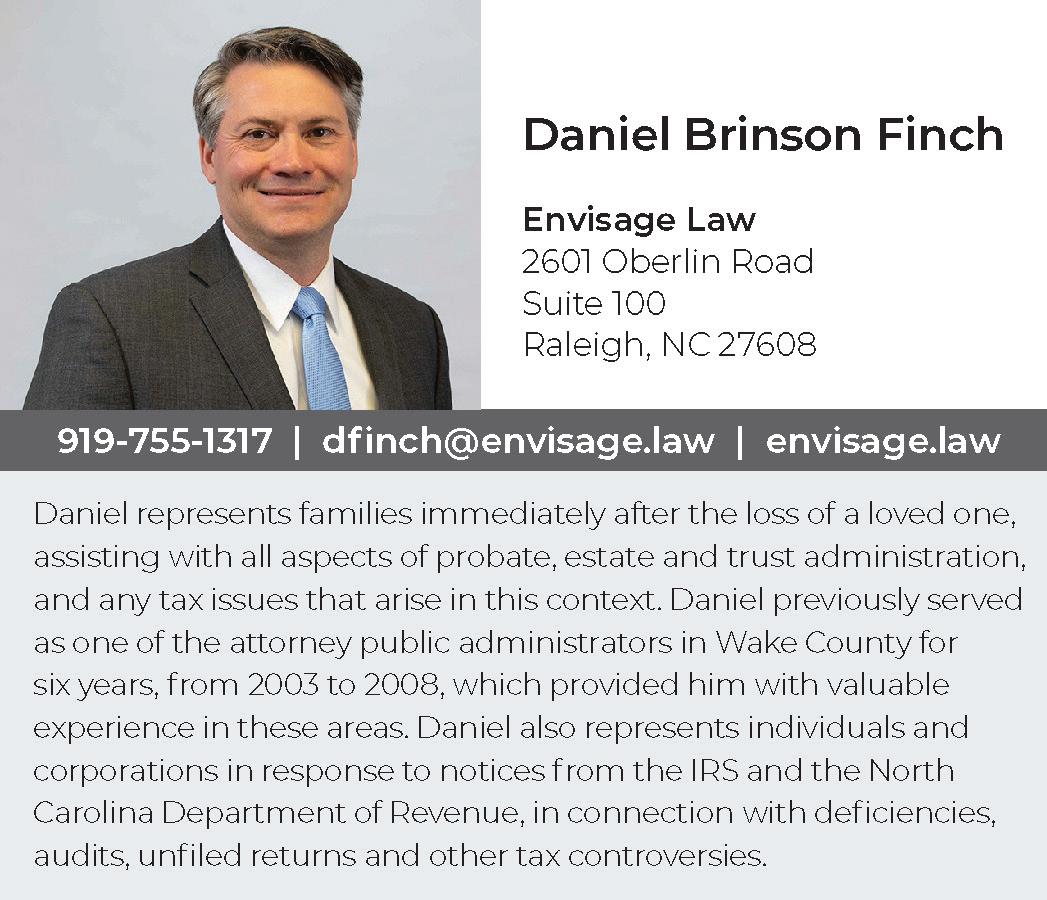












Matthew W. Sawchak, Ellis & Winters, Cary (2002, 2003); Rodrick J. Enns, Enns & Archer, Winston-Salem (2004); Larry B. Sitton, Smith Moore, Greensboro (2005); Everett J. Bowman, Robinson, Bradshaw & Hinson, Charlotte (2006); Douglas Wayne Kenyon, Hunton & Williams, Raleigh (2007); Mark W. Merritt, Robinson, Bradshaw & Hinson, Charlotte (2008); Mark J. Horoschak, Womble Carlyle Sandridge & Rice, Charlotte (2009); Jennifer K. Van Zant, Brooks, Pierce, McLendon, Humphrey & Leonard, Greensboro (2010); Catharine B. Arrowood, Parker Poe Adams & Bernstein, Raleigh (2011); Jonathan Heyl, Smith Moore Leatherwood, Charlotte (2012); Noel L. Allen, Pinnix & Nichols, Raleigh (2013); John F. Graybeal, Parker Poe Adams & Bernstein, Raleigh (2014); Press Millen, Womble Carlyle Sandridge & Rice, Raleigh (2015); W. Andrew “Andy” Copenhaver, Womble Carlyle Sandridge & Rice, Winston-Salem (2016); Stephen Feldman, Ellis & Winters, Raleigh (2017); Brad Evans, Ward and Smith, Greenville (2018); Henry “Hal” L. Kitchin Jr., McGuire Woods, Wilmington (2019); Brian Hayles, Bradley Arant Boult Cummings, Charlotte (2020); Alan Duncan, Turning Point Litigation, Greensboro (2021); Dhamian Blue, Blue, Raleigh (2022); Denise M. Gunter, Nelson Mullins Riley & Scarborough, WinstonSalem (2023); John A. Price, Calhoun, Bhella & Sechrest, Durham (2024); Cassandra Creekman, Wyrick Robbins, Raleigh (2025)
APPELLATE
Matthew Nis Leerberg, Smith Moore Leatherwood, Raleigh (2018); Toby Hampson, Wyrick Robbins / N.C. Court of Appeals, Raleigh (2019); Drew Erteschik, Poyner Spruill, Raleigh (2020); Beth Brooks Scherer, Fox Rothschild, Raleigh (2021); MichelleD. Connell, Fox Rothschild, Raleigh (2022); Angela Farag Craddock, Young Moore and Henderson, Raleigh (2023); Troy D. Shelton, Fox Rothschild, Raleigh (2024); Matthew Sawchak, Robinson Bradshaw, Raleigh (2025).
J. Michael Booe, Kennedy Covington, Charlotte (2002, 2003); Gregory B. Crampton, Nicholls & Crampton, Raleigh (2004); Richard M. Hutson II, Hutson Hughes & Powell, Durham (2005); C. Richard Rayburn Jr., Rayburn Cooper & Durham, Charlotte (2006); Terri L. Gardner, Nelson Mullins Riley & Scarborough, Raleigh (2007); John A. Northen, Northen Blue, Chapel Hill, (2008); Holmes P. Harden, Williams Mullen, Raleigh (2009); Christine Myatt, Nexsen Pruet, Greensboro (2010); Gerald A. “Jeb” Jeutter Jr., Gerald A. “Jeb” Jeutter Jr. Attorney at Law, Raleigh (2011); Kenneth M. Greene, Carruthers & Roth, Greensboro (2012); Trawick H. “Buzzy” Stubbs Jr., Stubbs & Perdue, New Bern (2013); Benjamin Kahn, Nexsen Pruet, Greensboro (2014); James S. “Charlie” Livermon, Poyner Spruill, Rocky Mount (2015); Richard S. Wright, Moon Wright and Houston, Charlotte (2016); Heather W. Culp, Essex Richards, Charlotte (2017); William P. Janvier, Janvier Law Firm, Raleigh (2018); Richard D. Sparkman, Richard D. Sparkman & Associates, Angier (2019); George Sanderson, e Sanderson Law Firm, Raleigh (2020); John “Woody” C. Woodman, Essex Richards, Charlotte (2021); Rebecca Finch Redwine, Hendren Redwine & Malone, Raleigh; (2022); Matt Tomsic, Rayburn Cooper & Durham, Charlotte (2023); Je rey E. Oleynik, Brooks Pierce, Greensboro (2024); Jason Hendren Hendren Redwine & Malone, Raleigh (2025).
BUSINESS
Russell M. Robinson II, Robinson, Bradshaw & Hinson, Charlotte (2002, 2003); Doris R. Bray, Schell Bray, Greensboro (2004); J. Nor eet Pruden III, Kennedy Covington, Charlotte (2005); William M. Flynn, Hunton & Williams, Raleigh (2006); Robin L. Hinson, Robinson, Bradshaw & Hinson, Charlotte (2007); Peter C. Buck, Robinson, Bradshaw & Hinson, Charlotte (2008); Gerald F. Roach, Smith, Anderson, Blount, Dorsett, Mitchell & Jernigan, Raleigh (2009); Mark Davidson, Brooks, Pierce, McLendon, Humphrey & Leonard, Greensboro (2010); Stephen M. Lynch, Robinson, Bradshaw & Hinson, Charlotte (2011); Amalie L. Tu n, Whitmeyer Tu n, Raleigh (2012); Grayson S. Hale, Morningstar Law Group, Morrisville (2013); David D. Beatty, Myers Bigel Sibley & Sajovec, Raleigh (2014); Charles S. Baldwin IV, Brooks, Pierce, McLendon, Humphrey & Leonard, Wilmington (2015); James R. Forrest, Forrest Firm, Durham (2016); Gregory S. Connor, e Connor Law Firm, Raleigh (2017); John Babcock, Waldrep Wall Babcock & Bailey, Winston-Salem (2018); M. Keith Kapp, Williams Mullen,
Raleigh (2019); Matthew Marcellino, Marcellino & Tyson, Charlotte (2020); George Stephen Diab, Murchison, Taylor & Gibson, Wilmington (2021); DanielStephen Trimmer, Skufca Law, Charlotte (2022); John M. Cross Jr., Brooks Pierce, Greensboro (2023); Heather Culp, Essex, Richards, Charlotte (2024); Milton “Heath” Gilbert Jr. Baucom, Claytor, Benton, Morgan & Wood, Charlotte (2025).
James A. Roberts III, Lewis & Roberts, Raleigh (2004); Je rey J. Davis, Moore & Van Allen, Charlotte (2005); John L. Shaw, Poyner Spruill, Raleigh (2006); Dudley Humphrey, Kilpatrick Stockton, Winston-Salem (2007); James S. Schenck IV, Conner Gwyn Schenck, Raleigh (2008); Michael Wilson, Johnston Allison Hord, Charlotte (2009); John B. “Jack” Taylor, Nexsen Pruet, Charlotte (2010); Peter J. Marino, Smith, Anderson, Blount, Dorsett, Mitchell & Jernigan, Raleigh (2011); William H. Gammon, Nelson Mullins Riley & Scarborough, Raleigh (2012); Richard D. Conner, Conner Gwyn Schenck, Greensboro (2013); Joseph H. Nanney Jr., Meynardie & Nanney, Raleigh, (2014); Bob Meynardie, Meynardie & Nanney, Raleigh (2015); Harper Heckman, Maynard Nexsen, Greensboro (2016); Nan E. Hannah, Hannah Sheridan Loughridge & Cochran, Raleigh (2017); James Johnson, Smith Terry & Johnson, Asheville (2018); Tracy James, Hamilton Stephens Steele & Martin, Charlotte (2019); Jason James, Bell, Davis & Pitt, Charlotte (2020); Bentford “Ben” Martin, Hamilton Stephens Steele & Martin, Charlotte (2021); Erik Rosenwood, Rosenwood, Rose & Litwak, Charlotte (2022); Arty Bolick II, Brooks Pierce, Raleigh (2023); Greg C. Ahlum, Johnston Allison Hord, Charlotte (2024); Neale T. Johnson, Fox Rothschild, Greensboro (2025)
CORPORATE COUNSEL
James E. Creekman, First Citizens Bank & Trust Co., Raleigh (2003); Douglas R. Edwards, Wachovia, Charlotte (2005); Stephen K. Coss, Sonic Automotive, Charlotte (2006); Keith Smith, Carolinas HealthCare System, Charlotte (2007); John Taggart, Genworth Financial, Raleigh (2008); B. Judd Hartman, Pharmaceutical Product Development, Wilmington (2009); Gaither M. Keener, Lowe’s, Mooresville (2010); Meredith B. Stone, NACCO Materials Handling Group, Greenville (2011); Lisa D. Inman, Waste Industries USA, Raleigh (2012) Robert Wicker, General Parts International, Raleigh (2013); Michael A. Springs, Bank of America, Charlotte (2014); Santiago Estrada, Quintiles Transnational Holdings, Durham (2015); Je rey M. Davis, Lincoln Financial Group, Greensboro (2016); Gerald L. Walden Jr., e Fresh Market, Greensboro (2017); Andrew Spainhour,
Replacements Ltd., Greensboro (2018); Chris Matton, Bandwidth, Raleigh (2019); Jennifer Venable, Capitol Broadcasting, Raleigh (2020); Greg Murphy, Nucor, Charlotte (2024); Christopher Buchholtz, RTI International, Durham (2025)
Russell M. Robinson II, Robinson, Bradshaw & Hinson, Charlotte (2002); David L. Ward Jr., Ward and Smith, New Bern (2004); John M. Cross Jr., Brooks Pierce, Greensboro (2021); Jonathan Jenkins, Jenkins Haynes, Greensboro (2022); Rob Rust IV, Moore & Van Allen, Charlotte (2023); John David Love, Michael Best & Friedrich, Raleigh (2024); Anne Elizabeth Croteau, McGuireWoods, Raleigh (2025)
Wade M. Smith, arrington Smith, Raleigh (2004); James F. Wyatt III, Wyatt & Blake, Charlotte (2005); David Freedman, White and Crumpler, Winston-Salem (2006); Joseph B. Cheshire V, Cheshire, Parker, Schneider, Bryan & Vitale, Raleigh (2007); James P. Cooney III, Womble Carlyle Sandridge & Rice, Charlotte (2008); Stephen T. Smith, McMillan, Smith & Plyler, Raleigh (2009); T. Patrick Matus II, Essex Richards, Charlotte (2010); David S. Rudolf, Rudolf, Widenhouse & Fialko, Charlotte (2011); Locke T. Cli ord, Cli ord Clendenin & O’Hale, Greensboro (2012); Peter C. Anderson, Beveridge & Diamond, Charlotte (2013); Michael J. Greene, Goodman, Carr, Laughrun, Levine & Greene, Charlotte (2014); Robert K. Corbett III, Law O ces of Harold Cogdell Jr., Charlotte (2015); Ryan T. Smith, RTS Law Group, Charlotte (2016); George V. Laughrun II, Goodman, Carr, Laughrun, Levine & Greene, Charlotte (2017); Les Robinson, Robinson Law Firm, Greenville (2018); Wes J. Camden, Ward and Smith, Raleigh (2019); Kearns Davis, Brooks Pierce, Greensboro (2020); Cristopher L. Oring, Oring Law, Wilmington (2021); Elliot Abrams, Cheshire Parker Schneider, Raleigh (2022); Rob Heroy, Goodman Carr Laughrun Levine & Greene, Charlotte (2023); Caitlin Poe, Williams Mullen, Raleigh (2024); Russell Babb, arrington Smith, Raleigh (2025)
Philip M. Van Hoy, Van Hoy, Reutlinger, Adams & Dunn, Charlotte (2002); George J. Oliver, Smith Moore, Raleigh (2003); Penni Pearson Bradshaw, Constangy, Brooks & Smith, Winston-Salem (2004); Jonathan R. Harkavy, Patterson Harkavy, Greensboro (2005); Patricia L. Holland, Jackson Lewis, Cary (2006); Louis L. Lesesne Jr., Essex Richards, Charlotte (2007); Robert M. Elliot, Elliot Pishko Morgan, Winston-Salem (2008); Sarah J. Kromer, Sara J. Kromer,
Charlotte (2009); Susan Brown Grady, SPX, Charlotte (2010); Lisa Grafstein, Disability Rights North Carolina, Raleigh (2011); N. Renee Hughes, Essex Richards, Charlotte (2012); W. Randall Loftis Jr., Constangy, Brooks & Smith, Winston-Salem (2013); Amie F. Carmack, Morningstar Law Group, Morrisville (2014); Nicole Gardner, Gardner Skelton, Charlotte (2015); Mike Okun, Patterson Harkavy, Chapel Hill (2016); Bryan L. Tyson, Marcellino & Tyson, Charlotte (2017); Susie Gibbons, Poyner Spruill, Raleigh (2018); Denise Smith Cline, Law Offices of Denise Smith Cline, Raleigh (2019); Kyle R. Still, Wyrick Robbins, Raleigh (2020); David C. Lindsay, K&L Gates, Charlotte (2021); Meredith Jeffries, Alexander Ricks, Charlotte (2022); Patti W. Ramseur, Ramseur Maultsby, Greensboro (2023); Alex Maultsby, Ramseur Maultsby, Greensboro (2024); William A. Oden III, Ward and Smith, Wilmington (2025)
Charles D. Case, Hunton & Williams, Raleigh (2002; 2003); H. Glenn Dunn, Poyner Spruill, Raleigh (2004); George W. House, Brooks Pierce, Greensboro (2005); William D. Dannelly, Hunton & Williams, Raleigh (2006); Benne C. Hutson, Helms Mulliss & Wicker, Charlotte (2007); Amos C. Dawson III, Williams Mullen, Raleigh (2008); Richard C. Gaskins Jr., Catawba Riverkeeper Foundation, Charlotte (2009); Stephen W. Earp, Smith Moore Leatherwood, Greensboro (2010); Ramona Cunningham O’Bryant, Smith Moore Leatherwood, Greensboro (2011); William Clarke, Roberts & Stevens, Asheville (2012); Grady L. Shields, Wyrick Robbins, Raleigh (2013); Craig A. Bromby, Hunton & Williams, Raleigh (2014); Garry S. Rice, Duke Energy, Charlotte (2015); Sean M. Sullivan, Troutman Sanders, Raleigh (2016); Carol Jones Van Buren, Van Buren Law, Charlotte (2017); Steve Berlin, Kilpatrick Townsend & Stockton, Winston-Salem (2018); Keith Johnson, Poyner Spruill, Raleigh (2019); Amy Wang, Ward and Smith, New Bern (2020); Susan H. Cooper, Womble Bond Dickinson, Charlotte (2021); Mary Katherine Stukes, Moore & Van Allen, Charlotte (2022); Amy Rickers, Johnston Allison Hord, Charlotte (2023); Natalie D. Potter, Essex Richards, Charlotte (2024); F. Bryan Brice Jr., Law Offices of F. Bryan Brice Jr., Raleigh (2025)
John H. Parker, Cheshire, Parker, Schneider, Bryan & Vitale, Raleigh (2007); Carlyn Poole (retired), Tharrington Smith, Raleigh (2008); Richard D. Stephens, Dozier, Miller, Pollard & Murphy, Charlotte (2009); Lana S. Warlick, Law Office of Lana S. Warlick, Jacksonville (2010); Michael F. Schilawski, Wake Family Law Group, Raleigh (2011); D. Caldwell
Barefoot Jr., Barefoot Family Law, Raleigh (2012); Stan Brown, Hamilton Stephens Steele + Martin, Charlotte (2013); Lori M. Vitale, Vitale Family Law, Raleigh (2014); Kimberly Bryan, Cheshire Parker Schneider & Bryan, Raleigh (2015); Rob Blair, Essex Richards, Charlotte (2016); Afi S. Johnson-Parris, Ward Black Law, Greensboro (2017); Chris Eatmon, Eatmon Law Firm, Wake Forest (2018); Kristin M. Hampson, Hampson Family Law, Raleigh (2019); Mariana Godwin, Barefoot Family Law, Raleigh (2020); Cary Close, Close Smith Family Law, Raleigh (2021); Richard Gantt, Gantt Family Law, Raleigh (2022); Ketan P. Soni, Soni Brendle, Charlotte (2023); Heidi C. Bloom, Wyrick Robbins, Raleigh (2024); Janet Haney Amburgey, GHMA Law, Asheville (2025)
IMMIGRATION
Laura Edgerton, Edgerton Immigration Law, Raleigh (2018); Gerard M. “Gerry” Chapman, Chapman Law Firm, Greensboro (2019); Murali Bashyam, Bashyam Shah, Raleigh (2020); Gigi Gardner, Gardner Gordon, Charlotte, Raleigh (2021); Devon Senges, Dummit Fradin Attorneys at Law, Greensboro (2022); Benjamin A. Snyder, Chiesa Shahinian & Giantomasi, Charlotte (2023); Laura Deddish Burton, Fox Rothschild, Greensboro(2024); Ana S. Nuñez, Fay Grafton Nuñez, Raleigh (2025)
INTELLECTUAL
Mitchell S. Bigel, Myers Bigel Sibley & Sajovec, Raleigh (2002; 2003); Kenneth D. Sibley, Myers Bigel Sibley & Sajovec, Raleigh (2004); Wesley Thaddeus Adams III, Adams Evans, Charlotte (2005); J. Scott Evans, Yahoo!, Charlotte (2006); Philip Summa, Summa, Allan & Additon, Charlotte (2007); Susan Freya Olive, Olive & Olive, Durham (2008); David M. Carter, Carter & Schnedler, Asheville (2009); David M. Krasnow, Smith Moore Leatherwood, Raleigh (2010); William J. Mason, MacCord Mason, Wilmington (2011); E. Eric Mills, Ward and Smith, New Bern (2012); Anthony Biller, Coats & Bennett, Cary (2013); Larry L. Coats, Coats & Bennett, Cary (2014); Sarah E. Nagae, Triangle Trademarks, Raleigh (2015); Maury M. Tepper III, Tepper & Eyster, Raleigh (2016); John C. Nipp, Additon, Higgins & Pendleton, Charlotte (2017); Matthew Ladenheim, Trego, Hines & Ladenheim, Charlotte (2018); Julie H. Richardson, Myers Bigel, Raleigh (2019); Russ Racine, Cranfill Sumner, Charlotte (2020); Rick McDermott, McDermott IP Law, Charlotte (2021); Rebecca Crandall, McGuire Wood & Bissette, Asheville (2022); Kimberly Bullock Gatling, Fox Rothschild, Greensboro (2023); John R. Owen, Coats & Bennett, Cary (2024); David Sar, Brooks Pierce, Greensboro (2025)
James T. Williams Jr., Brooks Pierce, Greensboro (2002; 2003); Clarence W. Walker, Kennedy Covington Lobdell & Hickman, Charlotte (2004); Gary S. Parsons, Brooks Pierce, Raleigh (2005); William K. Davis, Bell, Davis & Pitt, Winston- Salem (2006); Dan J. McLamb, Yates, McLamb & Weyher, Raleigh (2007); Robert D. Walker, Walker, Allen, Grice, Ammons & Foy, Goldsboro (2008); J. Donald Cowan Jr., Ellis & Winters, Greensboro (2009); G. Gray Wilson, Wilson, Helms and Cartledge, Winston-Salem (2010); James H. Kelly Jr., Kilpatrick Townsend & Stockton, Winston-Salem (2011); Daniel L. Brawley, Williams Mullen, Wilmington (2012); Lee M. Whitman, Wyrick Robbins, Raleigh (2013); Michael J. Byrne, Byrne Law, Raleigh (2014); Jonathan D. Sasser, Ellis & Winters, Raleigh (2015); Jean Sutton Martin, Law Office of Jean Sutton Martin, Wilmington (2016); Greg Merritt, Harris, Creech, Ward & Blackerby, New Bern (2017); Ward Davis, Bell, Davis & Pitt, Charlotte (2018); Elizabeth Scott, Williams Mullen, Raleigh (2019); Clay A. Campbell, Marcellino & Tyson, Charlotte (2020); Kristen L. Beightol, Edwards Kirby, Raleigh (2021); Fred W. DeVore III, DeVore, Acton & Stafford, Charlotte (2022); Ross Fulton, Rayburn Cooper & Durham, Charlotte (2023); W. Scott Jones, Searson, Jones, Gottschalk & Cash, Asheville (2024); J. Scott Flowers, Hutchens Law Firm, Fayetteville (2025)
Alfred Adams, Womble Carlyle Sandridge & Rice, Winston-Salem (2004); Barry D. Mann, Manning, Fulton & Skinner, Raleigh (2005); Brent A. Torstrick, Robinson, Bradshaw & Hinson, Charlotte (2006); Samuel T. Oliver Jr., Manning, Fulton & Skinner, Raleigh (2007); Charles Gordon Brown, Brown & Bunch, Chapel Hill (2008); C. Steven Mason, Smith, Anderson, Blount, Dorsett, Mitchell & Jernigan, Raleigh (2009); Timothy G. Sellers, Sellers, Hinshaw, Ayers, Dortch & Lyons, Charlotte (2010); Frank M. Bell Jr., Bell, Davis & Pitt, Winston-Salem (2011); George W. Sistrunk III, Hamilton Stephens Steele & Martin Charlotte (2012); Robert Charles Lawson, Williams Mullen, Raleigh (2013); Michael G. Winters, Ellis & Winters, Raleigh (2014); Holly H. Alderman, Schell Bray, Chapel Hill (2015); Brian W. Byrd, Smith Moore Leatherwood, Greensboro (2016); Anna P. McLamb, Wyrick Robbins, Raleigh (2017); Beth Voltz, Weatherspoon & Voltz, Raleigh (2018); Annika M. Brock, The Brock Law Firm, Asheville (2019); Allen York, Smith Anderson, Raleigh (2020); Diana R. Palecek, Fox Rothschild, Charlotte (2021); Philip Hackley,
Wyrick Robbins, Raleigh (2022); Joanne Badr, Ward and Smith, Asheville (2023); Julian Robb, Blanco, Tackabery & Matamoros, Winston-Salem (2024); Marc Isaacson, Isaacson Sheridan, Greensboro (2025)
TAX & ESTATE PLANNING
Robert C. Vaughn Jr., Vaughn Perkinson Ehlinger Moxley & Stogner, Winston-Salem (2002; 2003); W. Curtis Elliott Jr., Culp Elliott & Carpenter, Charlotte (2004); Ray S. Farris, Johnston Allison Hord, Charlotte (2005); Elizabeth L. Quick, Womble Carlyle Sandridge & Rice, Winston-Salem (2006); James W. Narron, Narron, O’Hale & Whittington, Smithfield (2007); E. William Kratt, Herring Mills & Kratt, Raleigh (2008); Christy Eve Reid (died May 8, 2014), Robinson, Bradshaw & Hinson, Charlotte (2009); Michael H. Godwin, Schell Bray Aycock Abel & Livingston, Greensboro (2010); Maria M. Lynch, Lynch & Eatman LLP, Raleigh (2011); Graham D. Holding Jr., Robinson, Bradshaw & Hinson, Charlotte (2012); Andrew H. Veach, Edwards Craver Veach, Winston- Salem (2013); Robert H. Haggard, Van Winkle Lam, Asheville (2014); Michael A. Colombo, Colombo, Kitchin, Dunn, Ball & Porter, Greenville (2015); Jason Walls, The Walls Law Firm, Apex (2016); Debra L. Foster, Foster Royal, Charlotte (2017); Elizabeth “Liz” K. Arias, Womble Bond Dickinson, Raleigh (2018); Jean Gordon Carter, McGuireWoods, Raleigh (2019); Rudy Ogburn, Young Moore and Henderson, Raleigh (2020); Jessica Mering Hardin, Robinson Bradshaw, Charlotte (2021); Brooks Jaffa, Cranford, Buckley Schultze, Tomchin, Allen & Buie, Charlotte (2022); Michael Cory Howes, Strauss Attorney, Raleigh (2023); Amy H. Kincaid, Schell Bray, Greensboro (2024); Heidi Royal, Heidi E. Royal Law, Charlotte (2025)
J. Christian Stevenson, Kirk Palmer & Thigpe, Charlotte (2012); George Mason Oliver, Oliver Friesen Cheek, New Bern (2013); Michael F. Easley Jr., McGuireWoods, Raleigh (2014); Alvaro R. De La Calle, Calle Law, Greensboro (2015); Aaron Lay, Hamilton Stephens Steele + Martin, Charlotte (2016); Elie Foy, Wyrick Robbins, Raleigh (2017); Matthew T. Marcellino, Marcellino & Tyson, Charlotte (2018); Nancy S. Litwak, Rosenwood, Rose & Litwak, Charlotte (2019); Antonia A. “Toni” Peck, Nelson Mullin, Raleigh (2020); Holden B. Clark, Holden B. Clark, Attorney at Law, Gastonia (2021); Carl Burchette, Rosenwood, Rose & Litwak, Charlotte (2022); Keith Boyette, Director of State Government Relations, North Carolina Healthcare Association, Raleigh (2023); Katarina “Katie” Wong, Brooks Pierce, Raleigh(2024); Carlie Smith, Manning Fulton & Skinner, Raleigh (2025)■


As president of Pfeiffer University, it is my pleasure to welcome the readers of Business North Carolina to Stanly County – known for our beautiful Uwharrie Mountains, Morrow Mountain State Park, and hardworking, caring people who are a cornerstone of North Carolina’s piedmont.
Founded in 1885, Pfeiffer University is blessed to be anchored in Stanly County – with campuses in the northern village of Misenheimer and in the county seat of Albemarle. Business leaders, physician assistants, occupational therapists, nurses, teachers, local restaurant owners, realtors, lumber company executives, and bankers all call Pfeiffer “alma mater.” So does North Carolina’s Secretary of Commerce, multiple bishops of the United Methodist Church, and many leaders throughout our state.
Why has a small university had such a large impact? I believe the roots run back to two words: small towns. At Pfeiffer, innovative professors and students live alongside each other both inside and outside of the classroom. They come to understand each other – and no matter what they major in, they come to understand the motto of Pfeiffer’s founder, missionary Emily Prudden: Others before self. What could be more needed in today’s world?
Pfeiffer’s employees, who deeply impact students by day, have the pleasure to live and raise our children in a rare community: on Monday evenings our local leaders gather, working to recruit new industries – and new jobs. Our local bank champions small business owners and risk-taking entrepreneurs. Citing a dedicated local workforce, Charlotte Pipe and Foundry decided to build its newest plant here in 2023-2024. Similarly, last year, after seeing the beauty of the rolling foothills, visiting our strong community college, and meeting the hardworking people of our lakeside town of Badin, a submarine pipe manufacturer from New Jersey re-located here.
Unique, and unselfish, in Stanly County we believe our neighbor’s success is our success. We welcome you to come and visit. And stay if you like.
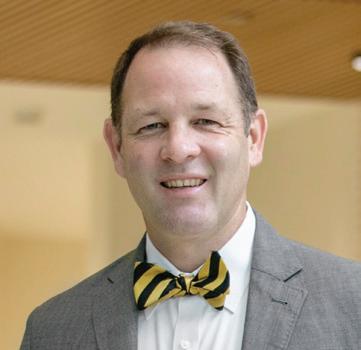
Sincerely,

Scott W. Bullard, Ph.D. President

Downtown Albemarle is undergoing changes, including more housing, educational opportunities and public space. They’re opening the door to more events such as last fall’s Stanly County Chamber of Commerce dinner.




Mostly rural Stanly County is only a hop, skip and jump from the state’s most-populous city. It’s investing in a future that supports growing businesses and expanding population while protecting its natural and cultural wonders.
Stanly County has had a couple busy years. Albemarle Paper Supply broke ground on a $3.5 million expansion — a 30,000-square-foot warehouse — in its namesake city in May. And Floridabased Quality Enclosures announced a $1.5 million factory expansion, which will add 36 jobs during the next five years, in Albemarle in June. They came on the heels of what Stanly County Director of Economic Development Elizabeth Underwood labels “the largest company announcement in Stanly County history” in 2019.
Charlotte Pipe and Foundry stepped outside the Queen City, where it started more than a century ago, to build what it calls one of the world’s biggest and most-modern foundries. “The move to Oakboro will spur growth of other businesses, including vendors who supply and support the plant, opening a new window of economic growth for Stanly County,” CEO Hooper Hardison said in 2023, when the foundry opened. “Even better, the region is already home to many of the company’s
associates, who will benefit from reduced commute times and increased amenities within their work environment.”
The foundry, a $460 million investment, employs about 530 people and is serviced with a rail spur. That connects it with Aberdeen Carolina & Western Railway, a short-line that joins with two Class 1 railroads, opening rail access to North Carolina’s ports and Midwest. Charlotte Pipe, along with Albemarle Paper Supply and Quality Enclosures, are only three examples of investment and construction that mark Stanly County’s transition to an education and technology hub with a diversified industrial base. That’s a big change from a history firmly rooted in agriculture and textiles.
Underwood, who took her position about six months ago, says regionalism makes Stanly County attractive to businesses. “We find value in being part of the Charlotte Regional Business Alliance’s 14 counties, and we really use that to our advantage,” she says. “Say a business wants to be in the Charlotte
area, but they aren’t a good fit, or they don’t want to be in Lake Norman and be in traffic for an hour. Why not take an hour to come here and have a beautiful drive? We have something really special here, with our small-town charm.”
The EDC promotes Stanly County with a straight-forward phrase: “Close to Charlotte. Even Closer to Perfect.” The county, whose 2023 population of 63,752 was a fraction of Charlotte’s 911,609, according to N.C. Office of State Budget and Management, is just up the road from the state’s mostpopulous city. “You can be anywhere and everywhere in an hour or so,” Underwood says. “We also have the lowest tax liability in the Charlotte-metro region. We have lower prices, and we have land. You can own several acres here, and the price is about the same as a townhome in Charlotte.”
Stanly County Manager Andy Lucas says maintaining a rural identity within the hustle and bustle of the Charlotte region is important to residents and local elected officials. “The


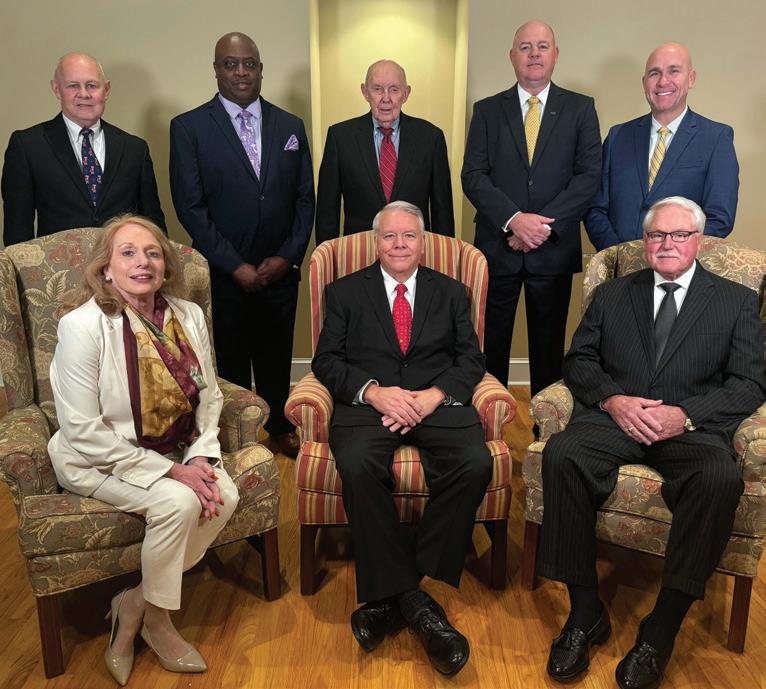
sense of community that living in a rural area brings is paramount,” he says. “Neighbors not only know one another; they are friends and often family. Our residents have access to multiple different housing options, including a rural landscape, suburban neighborhoods and lake living. Stanly County has one of, if not the lowest, costs of doing business in the Charlotte region when you consider median wage rates, land values, tax rates and local incentives. We have sites that offer efficient access to I-485, I-85 and I-77 and the Charlotte Douglas International Airport. Further, our rail infrastructure and access to intermodal and port facilities is significant. All of this coupled with the ability to attract over 1 million potential employees within a 30-minute drive time provides a solid business proposition for any business, industry seeking to locate in the Charlotte region.”
Stanly County is putting out the welcome mat. Michael Ferris, who retired as
Albemarle city manager in February after a nearly 30-year career in local government, says in order to control its economic future, the region must stay relevant. “You have a lot of buildings and adaptive re-uses, but the requirements for the manufacturing industries are a lot different now, with buildings needing stronger floors, higher walls, that kind of thing,” he says. “So, a lot of places may be missing out on opportunities. The city purchased the [Albemarle Business Center’s] 282-acres and began developing the park, and it’s something that will support the city’s future long term. You can control your destiny.”
Albemarle Business Center stands at the crossroads of U.S.52 and N.C. 24/27. It’s the latest hot-ticket item on the block, completing its first site about a year ago. “The utilities are in, the roads are in and it looks great,” Underwood says. “We’re 55 miles from Greensboro, so we’re really close to the Toyota battery plant, and we’d be a great location for domino products, manufacturing and suppliers. And since we’re an hour away, it wouldn’t be the same workforce.”
The ABC provides electric, water and wastewater services, so prospective companies can streamline their setup process, says Albemarle Mayor Ronnie Michael. “We offer one-stop shopping for prospective tenants,” he says. “For years, it’s been challenging to attract industry due to a lack of suitable properties. We recognized the need to address this issue to create greater economic opportunities for our residents. With the Albemarle Business Center, we now have space to attract industries offering careers not just jobs. The center can accommodate anything from a 20,000-square-foot facility to a million-square-foot facility, with parcels ranging from 5 to 121 acres.”
Lindsey Almond, Albemarle’s economic development director, says ABC’s approach is forward thinking. “This 282 acre modern industrial park offers robust infrastructure that appeals to industries such as advanced manufacturing, logistics, technology and professional services,” she says. “We aim to attract companies that share our vision of sustainable growth, job creation and community partnership.”
Stanly County offers industrial sites beyond ABC, including Badin Business Park, which has 50 acres of shovelready land and 535,000 square feet of buildings. Lucas says Riverstone Industrial Park in Stanfield, 55 acres of greenfield served with utilities and within an easy commute of Mecklenburg County’s Interstate 485 and Charlotte Douglass International Airport, has welcomed two tenants since 2020. They are expected to make $11.1 million in taxable investments and create 120 jobs. “Further, there has been additional interest in the remaining available land in Riverstone,” he says. “We have multiple active projects evaluating this park as a potential option.”
Stanly County had 649 farms on 109,164 acres — 43.1% of the county — according to U.S. Department of Agriculture’s 2022 Census of Agriculture, the latest available. Top crops and
Pfeiffer University, a mainstay in Stanly County, is educating healthcare professionals, teachers, business leaders and entrepreneurs who are making a difference across North Carolina.
Pfeiffer – a small university with a big impact.
To support Pfeiffer, and make our state stronger, go to pfeiffer.edu/give or scan the QR code. pfeiffer.edu




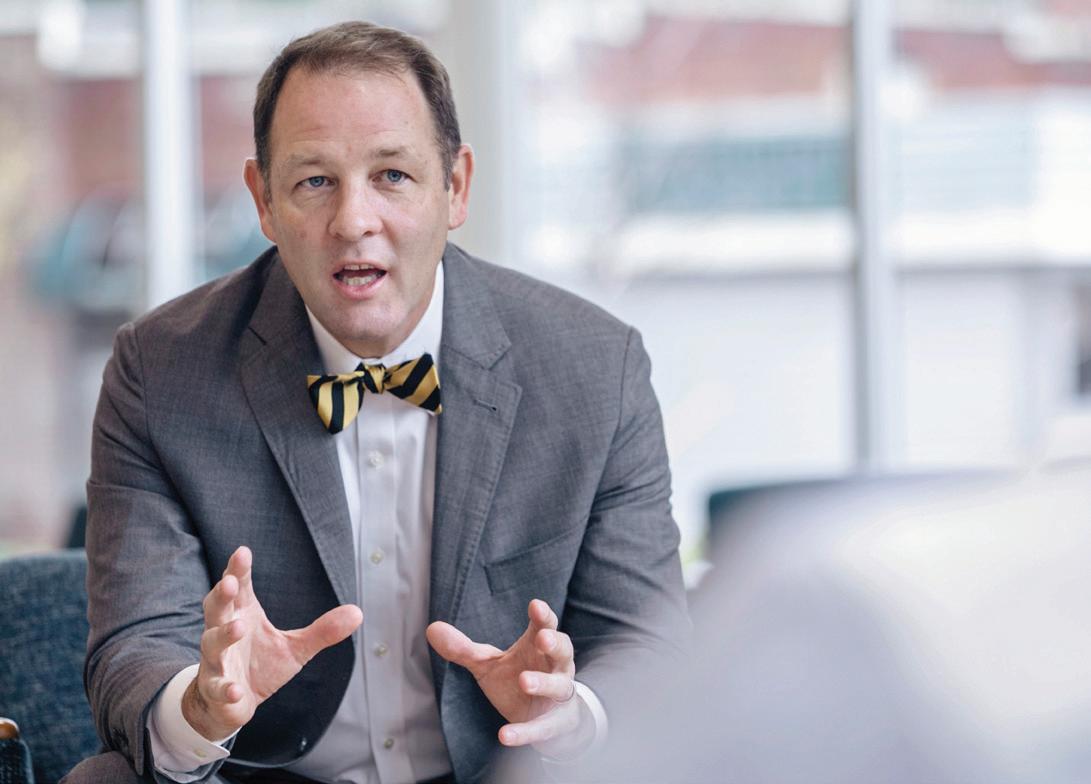


- President Scott Bullard “
Community makes all the difference, and Pfeiffer University is a great place to live, learn and grow.






livestock are soybeans and chickens, and agriculture makes a $91 million annual economic impact. “Both livestock and row crops are a significant part of our economy,” Lucas says. “The actual farming, feed and seed companies, farming equipment suppliers, cotton gin operations, milling operations, poultry and cattle production and sales, and much more, such as vineyards, honey bee hive management and agritourism, definitely impact our economy.”
Even with industry recruitment, population growth and other factors, there is a plan to contain clutter and congestion. Michael says the county is updating its Comprehensive Land Use Plan, which will guide land use and development for the next 20 years.“[It] outlines goals, policies and a vision for the community’s future, helping us manage growth in a way that aligns with residents’ needs,” he says.
“Additionally, we’re working on a
parks and recreation master plan to help us prioritize upgrades to existing parks, new facilities and expanded programs,” Michael says.
Lucas says the Land Use Plan, which was approved in November 2022, emphasizes rural land preservation. “The rural preservation area extends to most land outside of a municipal area,” he says. “This new rural preservation area requires a 3-acre minimum for new land subdivisions. The goal is to limit subdivision sprawl into rural areas that do not have the infrastructure to support the growth.”
Businesses and people are picking Stanly County for reasons other than economic. “In addition to affordability, we’re blessed to be surrounded by natural beauty,” Michael says. “Morrow Mountain State Park is minutes from downtown, the Uwharrie National Forest is nearby, and we have two beautiful lakes, Badin Lake and Lake

Tillery, right in our backyard. It’s an outdoor enthusiast’s paradise.” Add to that hiking trails, campgrounds and wineries. They’re summed up in a second slogan: “Water. Air. Land. Success.”
Stanly County’s attractions, which also include history museums and railroad museums in Albemarle, Badin, Locust, New London and Norwood, helped bring $108.2 million in visitor spending in 2023 — 4.2% more than the year prior — according to Visit North Carolina, the state’s tourism booster. That puts it 52nd among the state’s 100 counties.
“Our natural resources provide ample opportunities for outdoor recreation such as hunting, fishing, golf, boating, kayaking and so on,” Lucas says. “Yet, we are only a short drive from accessing the Charlotte Douglas International Airport and all the conveniences it offers. Additionally, our residents and businesses can access the Charlotte market for a plethora of entertainment, shopping and dining options.”
Stanly Community College in Albemarle serves almost 10,000 students annually in curriculum and continuing education courses and offers programs in business, computers, engineering, health and public service. Its apprenticeship program works with several local businesses in fields of automotive, child care, education and emergency services.
A similar journey is being made in Stanly County’s northwest corner, where Pfeiffer University’s main campus in Misenheimer offers 27 undergraduate programs; the most popular are business, education and nursing. Its four-year students participate in a mentorship — Pfeiffer Journey. “Seminars, retreats, faculty and peer mentors, and community connection are all a part of the program outline,” says Gary Veazey, the university’s interim director of marketing and communications.
“The Pfeiffer Journey culminates in senior year career preparation, ensuring graduates can confidently step into their professional lives.”



























Less than an hour drive from Charlotte, the state’s most-populous city, Stanly County offers its residents the perfect mix of quiet smalltown life and access to big city amenities. Residents can stroll Courthouse Plaza in downtown Albemarle, where Pfeiffer University opened its Center for Health Sciences. They also enjoy music at Food Truck Fridays in City Lake Park.











Uwharrie Brewing , Albemarle’s first brewery, opened in 2023. It has become a popular destination and meeting spot for residents.








In 2020, Pfeiffer opened its Center for Health Sciences on East Main Street in Albemarle, two blocks from from the community college’s Small Business Center. “The addition of Pfeiffer University [downtown] has spurred a revitalization known around here as the ‘Pfeiffer Effect,’” Michael says. “We’ve seen new places to eat, shop and live. For instance, the historic Albemarle Hotel, once vacant, has been fully renovated and now features over two dozen apartments, a restaurant and retail space. The former Lowder Hardware building has also been renovated and now provides new residential and retail spaces. Moving forward, we’d like to continue seeing underutilized storefronts and spaces repurposed.”
Ferris says talks with Pfeiffer about a downtown location began about 2015. “They knew it was in their best interest to invest in our downtown,” he says. “When people think about a city, they think about a downtown. It sets the tone
for the community. Every area of a town is important, every neighborhood and commercial area. With Pfeiffer, if other businesses are looking at Albemarle’s downtown, they can see the college’s presence and see that someone cared and supported that investment.”
Lindsey Almond says Albemarle has welcomed small businesses, cultural activities and community events during the past five years. “Albemarle is evolving into a vibrant live-work-play destination, with an energy that’s attracting college students, young families and professionals,” she says. “Our vision is a city where everyone feels a sense of belonging and opportunity, no matter their stage of life.”
The city of Albemarle is designated a North Carolina Main Street Community, accredited by Main Street America.
“The ‘Pfeiffer Effect’ continues to be a tremendous asset to our downtown,” says Joy Almond, who served as the city’s Main Street Manager until
mid-December, when she accepted a similar role with the state. “ The Pfeiffer Effect’ continues to be a tremendous asset to our downtown,” she says.“The graduate students at the Center for Health Sciences have different needs from a traditional college student, as the demographic is largely adults in their early 20s. I have gotten acquainted with several students here who have shared some of their experiences with me. A comment I have heard from more than one graduate student is that they feel more comfortable continuing their studies in a smaller city like Albemarle.”
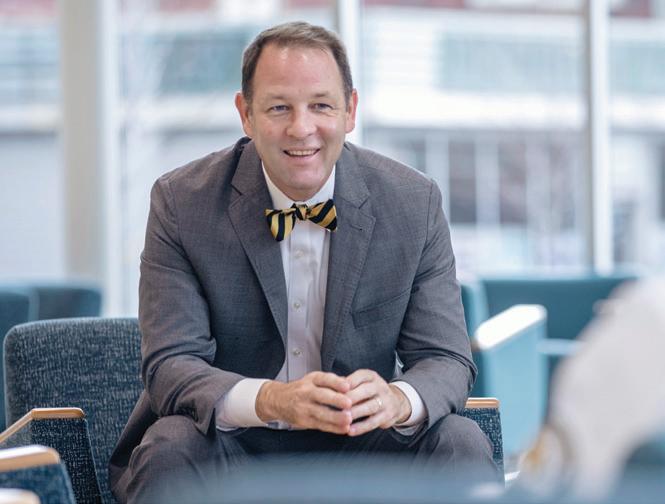
























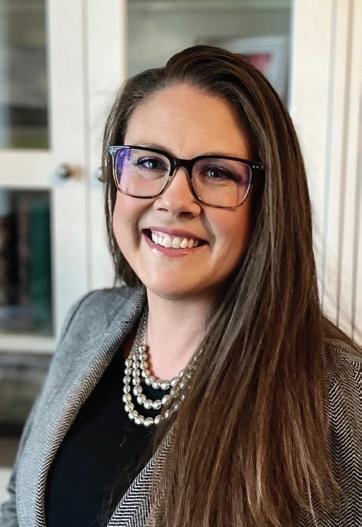
Albemarle’s Downtown Catalyst Grant Program began in 2022. “[It’s] a gamechanger for entrepreneurs and small businesses looking to call downtown Albemarle home,” Lindsey Almond says. “This program provides critical support to help businesses launch, expand and thrive in our historic downtown.”
Joy Almond says the grant money accomplishes several goals. “Grant supported improvements that encourage reuse of vacant or underutilized properties can improve the appearance
of existing buildings, improve seating and productivity, and support the longterm viability of downtown Albemarle,” she says. “Over time, the taxable valuation of the improved properties increases, which leads to the availability of additional funds available to continue the revitalization of downtown Albemarle. On another level, we saw the Downtown Catalyst Grant Program as a chance to help entrepreneurs take their businesses to the next level. The program is another tangible way for the city to demonstrate our strong support for the renewed vibrancy of downtown.”
Several businesses already have benefited from the Catalyst Grant program. It funded interior and exterior remodeling at 704 Photography, a patio renovation and seating expansion at Second Street Sundries and new equipment and expanded operations at Albemarle Sweet Shop.
The federal American Rescue Plan Act is funding a project in Albemarle.

“Courthouse Plaza is Albemarle’s newest public gathering space in a former alleyway, which stretches from West Main Street to King Avenue,” Joy Almond says. “[It] is part of a downtown streetscape masterplan, which has produced several upgrades to the downtown area, including new navigational signage, new banners on light poles, new outdoor furnishings and other beautifications. The project was completed in June of 2024; we celebrated the grand opening on June 15 with a ribbon cutting and an art walk featuring artists from the Stanly County Arts Guild. Courthouse Plaza was funded with ARPA money as well as contributions from ElectriCities and Albemarle Downtown Development Corporation.”
The Albemarle City Council approved about 4,000 housing units during the past few years. Michael says while they all might not be built, the potential is there if needed. “People see Albemarle as a destination because of the quality of life we offer,” he says. “Our city council and city staff have worked hard to maintain a low tax rate and affordable fees for services. Our electric rates are also low, because we’re a public power provider, meaning we’re not for profit and can put customers first without focusing on shareholders or investors.”
Location is key to Albemarle’s success, as it is countywide. “Being just 40 miles from Charlotte, our residents enjoy the best of both worlds — a peaceful community-focused lifestyle with easy access to the opportunities and amenities of a bustling metropolis,” Lindsey Almond says. “For those commuting to Charlotte or Mecklenburg County, the drive is manageable and allows them to return home to a serene and supportive environment. Our proximity to Charlotte enhances our appeal for businesses and families looking for a close-knit community near major urban centers.” ■
— Kathy Blake is a writer from eastern North Carolina.









































BY RAY GRONBERG



TDespite Toyota’s record investment, Randolph County slides in the state economic rankings.
he N.C. Commerce Department’s annual ratings of the economic status of the state’s counties involved 18 changes this year, causing some head-scratching not unlike the debate among college football fans over who should make up the 12-team College Football Playo .


State o cials use these rankings to shape economic incentive packages, with 20 counties in the best-o Tier 3 required to share part of any recruiting aid with their 40 worse-o counterparts in Tier 1. Another 40 are in Tier 2.
e rankings consider four factors: a county’s average unemployment rate, median household income, population growth percentage and adjusted tax base per capita.
Perhaps this year’s most surprising result was Randolph County’s slide from Tier 2 to Tier 1, suggesting it is among the state’s mostdistressed counties. e Piedmont county and its county seat, Asheboro, are best known as the home of the N.C. Zoo. But the county is also the site of the biggest corporate expansion in state history. Japanese automaker Toyota is investing about $14 billion in a massive complex to produce batteries for electric vehicles and hybrids, starting this year. Employment at the site 20 miles south of Greensboro is projected to eventually reach 5,100.
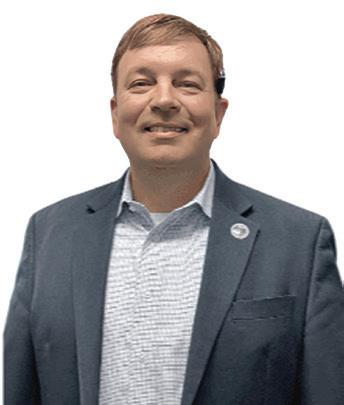
Such a high-pro le project isn’t typical of Tier 1 counties. But, commerce o cials attribute Randolph’s slide to a decline of 11 positions in its per-capita tax base and a 14-position decline in median household income, relative to other counties.
At $90,480 per person in the county of about 148,000 residents, Randolph’s tax base is the 10th-worst of North Carolina’s 100 counties. Edgecombe County in eastern North Carolina is at the bottom at $78,238 per person.
A factor in the tax base calculation is the timing of county valuations, however. Randolph is in the middle of a four-year revaluation cycle, with current values taking e ect in 2023. Toyota
started grading the factory site in early 2022, so there’s some lag. County Manager Zeb Holden’s recent budget requests show that the Randolph tax base increased 30% in 2023 to $16.6 billion, from $12.8 billion during the previous cycle. e scal 2024-25 request was the rst to credit Toyota with increasing Randolph’s tax base, which now stands at $17.2 billion. Toyota accounts for almost $1.1 billion, or about 5.8%. e factory generated an additional $1.6 million of revenue, helping balance Randolph’s budget at a level 11% higher than before, without a tax increase.
“A new era is about to begin for Randolph County,” Holden says in his budget message.
Tax base is also a big factor in Granville County, as the percapita number there is $129,003, ranking 50th in the state. at was an increase of 14 places. Still, Granville remained among the 20 counties in the most-distressed Tier 3 ranking.
Granville bene ts from spillover growth from the Triangle, mainly around Creedmoor and Butner, but also now impacting Oxford. A revaluation this year caused its tax base to rise nearly 60% to $8.7 billion. Its population was about 61,000 in 2020.
North Carolina’s most-distressed county is Scotland County, around Laurinburg on the border with South Carolina. It has bottom-10 rankings in three measures, and the state’s worst unemployment rate of 6.4% between November 2023 and October 2024.
Conversely, Currituck County topped the state list, aided by soaring beach property values in the coastal county that touches Virginia. It had top-10 rankings in three categories, and ranked 12th for median household income.
Nine counties moved up in the latest rankings. Cherokee, Chowan, Duplin, Gates, Haywood, Jones, Onslow and Pasquotank counties each moved from Tier 1 to Tier 2. Haywood joined Granville County in Tier 3, on the strength of its median household income. Its population is about 32,000.
Conversely, nine counties slid in the rankings. Along with Randolph, they were Alexander, Caldwell, Camden, Cleveland, Davie, McDowell, Montgomery and Surry. Camden and Davie counties dropped out of Tier 3, making way for Granville and Haywood. ■

